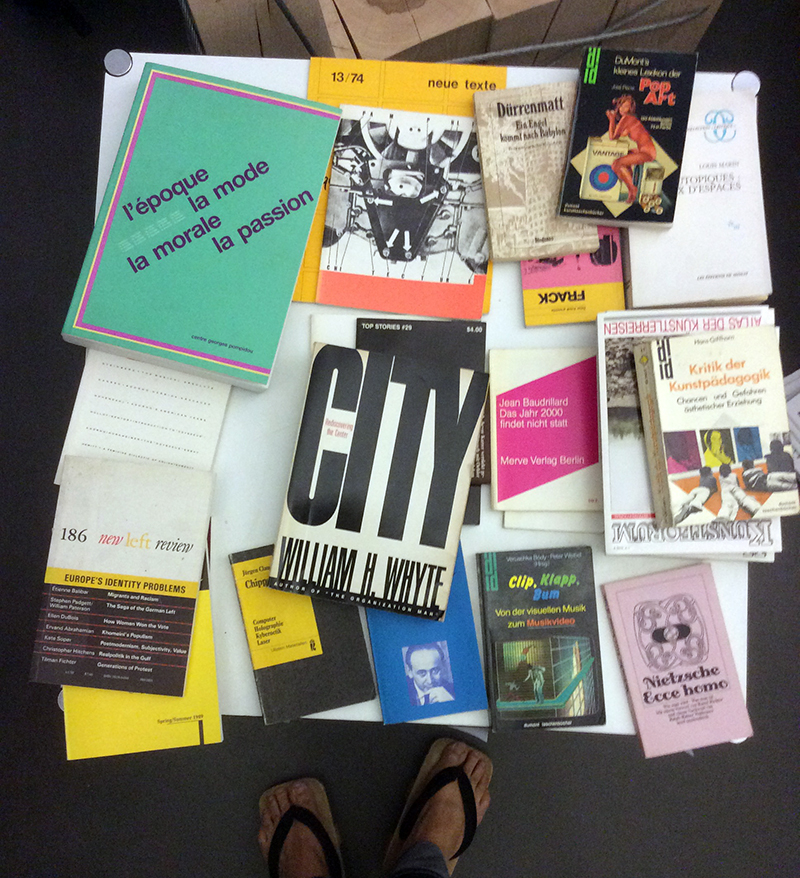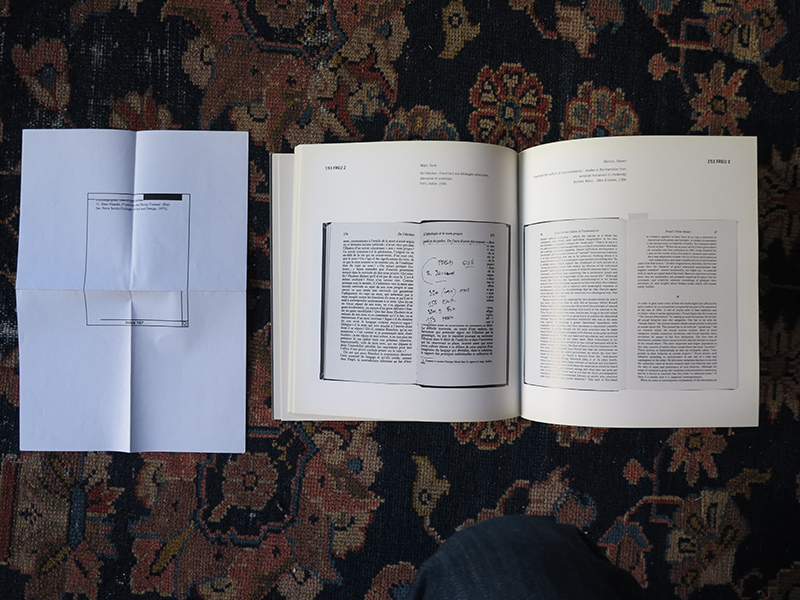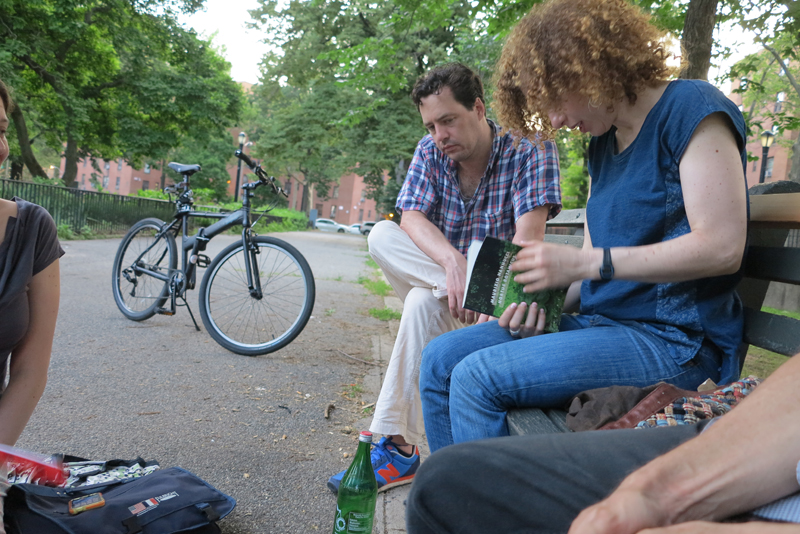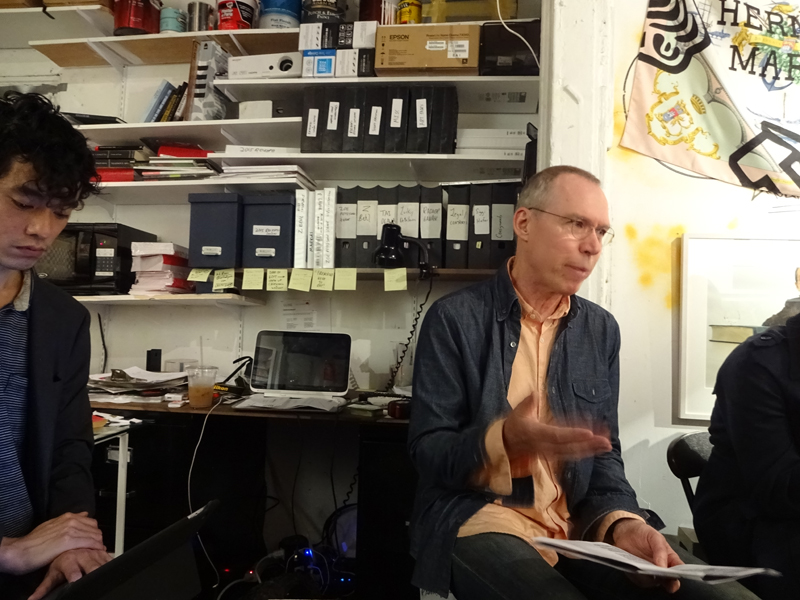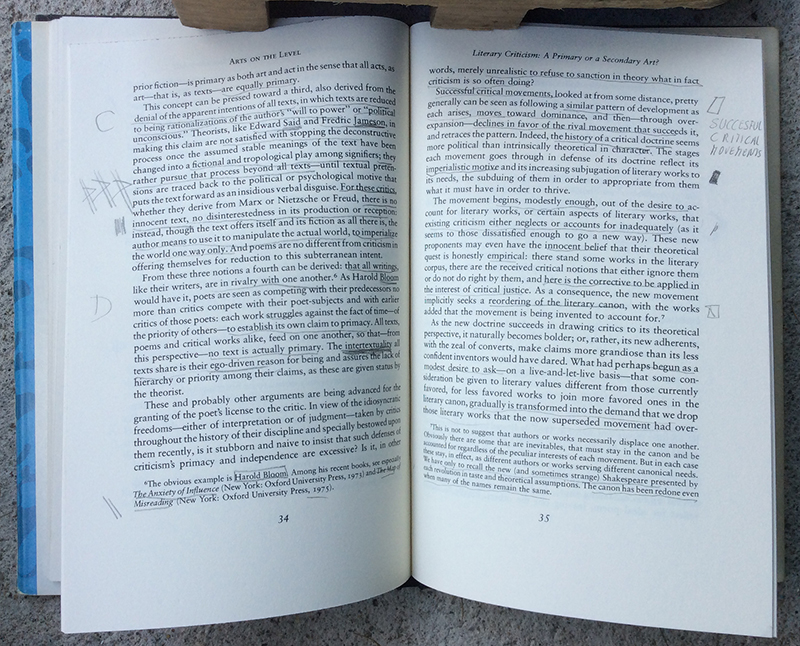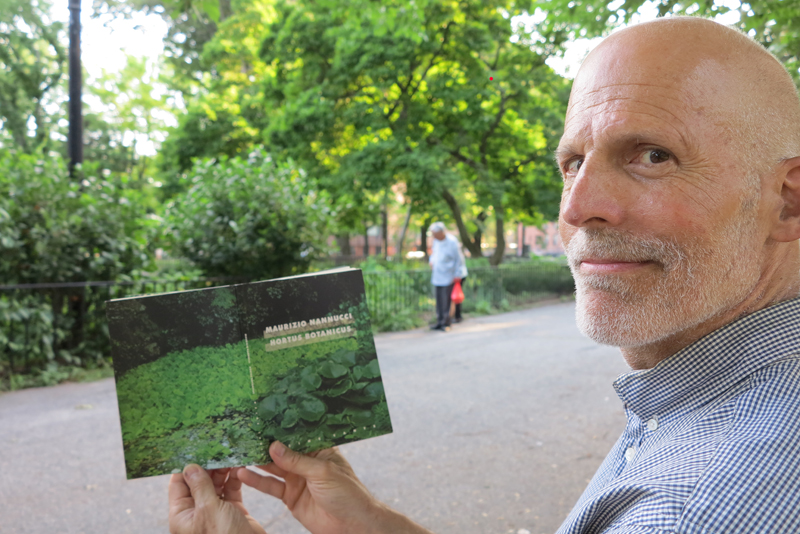press: HERE A LITTEL REVIEW IN ARTNEWSPAPER
on instagram #sellingmylibrary (click without having an acount)
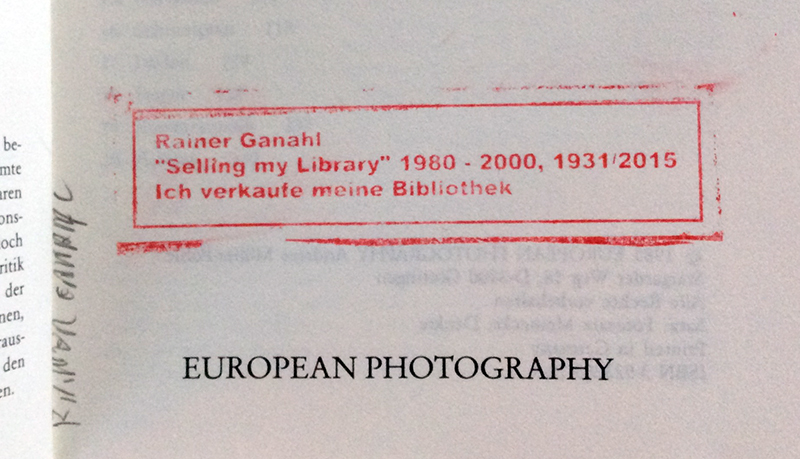
SELLING MY LIBRARY, 1980 - 2000, 1931/2015
__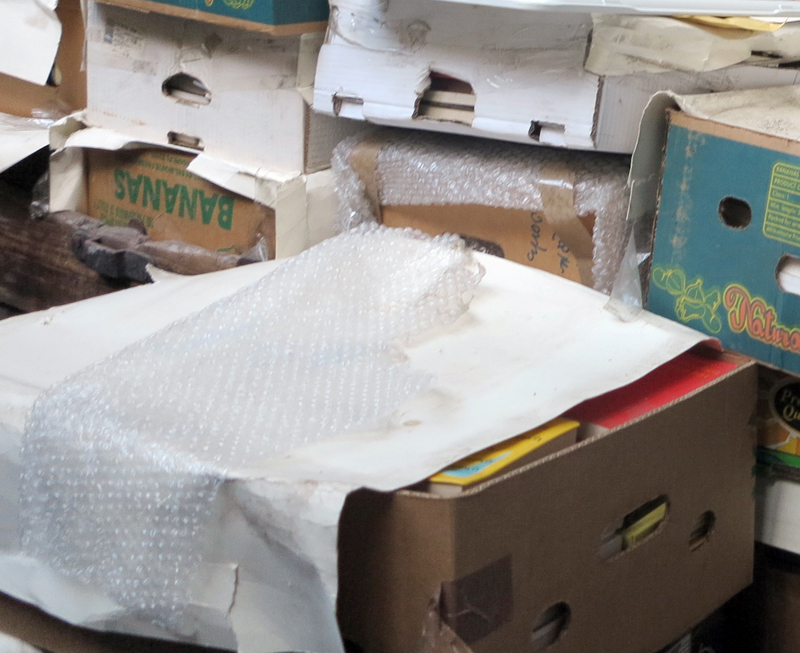
“Selling my library”
A talk about disappearing physically
I’m selling my library. Yes. I am.
Finally, I am getting rid of all my books. I decide to do so in form of a low cost art work with no price increase above the projected remaining value of my used books. Adding a stamp to the books that lists my name and the title of the dispersing piece hopefully increases the chance of a better home, a better afterlife for these old paper beings. Speaking of after life, the surprise encounter with my own former library raised immediately the question of my own demise since I just went through dissolving my father’s stuff after his passing.
This was my very first quit existentialist reaction that surprised me when confronted with these banana boxes of books and stuff that withstood time, bad storage conditions and all kind of relocations. As a child stamp collector, a photographer, a trained historian, a perpetual student of the history of ideas, an art collector of sorts, an artist in charge of storing his own art works, letting an early crucial part of library just go with which I spent most of my time, thinking and intellectual love and hopes as a very young and growing person is not an easy job. It breaks my heart but translating this liquidation into money and art sweetens this painful act of letting go. The fate for most of these books is now sealed and is called technically deaccession.
In 1990, when I moved to New York I had to leave most of my books in Vienna and eventually had to box them away for quite a long time. For about 15 years, I was able to sublet the apartment in a way that allowed me to leave an entire wall of books untouched so that I could visit it about once or twice a year for a very limited amount of time. Over the years, I sensed that something became very whimsical about my treatment of these books because there was a class of books I simply couldn’t touch properly. They all shared the fact that I spent an intense time deciphering them while at university where I read mostly in horizontal position. These mostly philosophical non-fictional texts published primarily by Suhrkamp Taschenbuch Wissenschaft were worked hard on. I didn’t even dare to take them with me to New York as I was afraid the entire library could collapse. They had no commercial or bibliophile value but represented the world to me, by then already a past world I couldn’t tinker with. I rather went out and bought a new copy for my new home in New York City.
During my first ten years in New York City, the flow of books was also reversed. On my visits to Vienna, I carried as many books from New York as I could which I read over the years and intuitively thought to facelift my Viennese wall that more and more became in absentia a lifeless abstract portrait of me, one - as time was passing - was less and less representing me. In New York City, where I often moved places with all my stuff fitting shopping trolley carts, the status of my books also changed. Even though I was spending months and months on individual books be it with texts by Jacque Lacan, Gayatri Spivak, Edward Said, Homi Bhaba, Stuart Hall, Frederic Jameson, Raymond Williams and Terry Eagleton etc. , I didn’t need to see the actually read books physically anymore. During my two years at the Whitney Independent Study Program, I predominantly was carrying photocopies of book fragments given to us. My orientation towards visual culture and my experience of living out of bags instigated a sense of rejection and even ridicule for books on walls. Now, here at home in NYC, books are in my closets, my dresser rooms, my shoe room, in my storage spaces and hidden away with only a row of fine art books next to my bed where nobody has access to.
When I finally lost my rent stabilized Viennese apartment storage of my books became also an economic problem. To my astonishment, my books posed a big problem since I felt attached and I had to break up the library which made accessing the books nearly impossible. In the meantime, technological changes, online distribution and sales options helped to render the loss of my books nearly irrelevant. Those stacks of books I brought to New York had also a kind of smell that kept them rather boxed away even here. Only a certain few jewels I purchased actually in New York from Printed Matter or from other by now disappeared art book sellers which I first schlepped to Vienna, I unpacked back here and let them harmonize with the air. The air quality of all these stacks of books contributes slightly to my nocturnal asthma and produces nightmares and other suffocating dreams on a regular basis. Only yesterday, I found myself expelled from a driftsand cauchemar at 4 am and early Vito Acconci, General Idea, Futurism, Bruce Nauman, Documenta 6, 7, 8, catalogues next to meters of publications I accumulated over the last decades attested my existence. I was still alive.
I don’t want to dispute the beauty and power of actual books over its on line versions. And even if I purchased the same book twice I missed the earlier version with my remarks, my underlining, and all the traces of handling and reading. I also left all kind of small inserts, including money, Polaroid photos, invoices, notes, to do lists, shopping scribbles and hand written letters to mention just a few of the surprises I have come across so far. In his famous article “Unpacking my library,” Walter Benjamin writes mainly about collecting of valuable books, books that do not necessarily require any reading. He speaks of books auctions, travels and discoveries of special rare books at rare booksellers balancing that experience against choosing from catalog listings. He explicitly skips his time as a student, the handling of non-valuable common books for use, thus exactly ignoring the type of affection I have developed for my mostly low value items.
My few things of value or rarity I have sorted out earlier and carried again back to New York, a process that started already in 1997 when I finally settled down in an East Harlem apartment where I have been living since. So, the books for sale in question are the books that have not made it back to NYC or ended up in another location in Europe of mine. But there are still surprises that are worth the purchase and be it just that many common publications of the time which are by now unknown and might or might not hold the test of time. The pricing is adequate, and made, so that the books move even though I keep also an eye on various on line sellers including Amazon to see what other people ask for it. Last but not least, the books for sale are stamped saying “Selling my library, 1980 – 2000, 1931/2015. In 1931, Benjamin published his article written as distraction while re-concentrating, re-ordering, reinstalling his library. My article here is meant to explain a kind of material / immaterial artwork in which I stamp the books of my library away. My books for sale constitute the total physical dissipation, parting, leaving, dispersing of my library by waving the publications off into mostly unknown hands where they hopefully can start a new life.
In quite some cases I do still remember where I bought the books or from which bookshop I snatched them some decades ago. Half through my studies of philosophy and history, when I still also took French literature and art history, I was close to an Austrian guy and dated a German girl who both were big on shoplifting. I also was very infatuated with a particular fancy line by the Situationists who I encountered in the early 1980s when I lived in Paris with a psychiatric doctor who worked in a famous psychiatric clinic where Felix Guattari did most of his research. This very elegant, much older, super intellectual Jewish French Algerian man who loved discussing theory and politics into early mornings was the most prolific book thief I have ever encountered. His economic trickery was not a question of money since he had a good income that only took him for a couple of days a week outside Paris for his clinic. It was more of an enigmatic problem, some cathexis with knowledge and books that rendered it very appealing. This all initiated me as well into that dancing art of refusal: “Le bon usage du choix commence avec le refus de payer / The good use of choice starts with the refusal to pay.”
My new vastly expended access to books at a time of no internet and almost no money was for me a major game changer and facilitated my education with a large spectrum of French, English and German books that could never have been available otherwise. There left barely any good bookshops unvisited around Europe since rapid, often overnight hitch hiking between cities and countries became my mode of flânerie. This beneficiary effect, as ethically unmoral as it was, served me then as a guilt free internal justification for something that cannot be universalized in a Kantian manner. I even went as far as to translate my non-monetary acquisition into an act of collective responsibility since I understood my individual learning and study efforts as collective work benefiting society and adding to the common good of all of us. It therefore also took me a couple of years, all sorts of really embarrassing encounters with authorities and the looming threat of a possible deportation from the USA should I not be able to renounce this stressful mode of resourcing and imagined, dreamed up collectivization. Luckily and under difficulties that looked to me comparable to those of people with substance abuse, I was able to break the poetic spell of this détournement of the banal seductiveness of commercial phrases. I totally quit this bad habit in 1990 and do not encourage it or propagate it today. My abstinence came as cold turkey and just in time for my relocation to New York, a place that in court, wouldn’t really differentiate much between a newspaper or a fur coat confronted with these characteristic violations of an exchange based acquisition.
Hence, letting the books go again as a low cost artwork without barely any added economic surplus value should also be a faible, a weak gesture of an abstract compensation for those books that were never paid for but nonetheless had helped me enormously. Finally, and also embarrassing, I want to point out, during those times, I felt entitled to this childlike taking of books I made disappear from bookshops throughout Europe by twisting Marxist arguments without really living up to their consequences since I glued to the books and did not pass them on. This is now to change with the releasing of my collected bibliophile accumulations, even thought I’d rather name myself a capitalist and invite people to take up my artistic proposition that comes at a minimum price of 10 Euros. This prize minimum functions here not only as an envisioned small compensation for a perceived loss on my part but also as a protection against additional city trash for those who don’t take me up on my offered auratic markings of these stamped books.
If the artistic aura of these books for sale works and releases its twitters, songs and games, the books will not only be rescued from trash, oblivion, and irrelevance but also from contemporary digitalization of all information, content and its dissemination throughout the world. And should this work, the immaterial power of these disappearing books as an art practice will hopefully reconnect complex genealogies throughout specific moments of personal and collective histories and even enlarge them as Benjamin points out in his talk about collecting. We should also not forget, it did matter to us non-paying customers when suddenly, in the mid 1980s, larger bookshops started securing their stock with electronic security strips and large cameras or camera dummies hanging over book corridors and corners, a fashion quickly adapted by nearly every bookshop which in itself speaks volumes of a changing information based consumer society. Hence, buying such a piece – and I purchased a few books from the library of Andy Warhol, when it was for sale – might stimulate a new collector with all kind of ideas and questions and bring him/her back to a computer to look for more. Buyers/collectors might unlock the stories, its context and its people involved. Thus, it could start or complement a collection of books or art and go with and against the digital flux of our time. This, we might name today the fânerie of things, a meandering of ideas, stories and connections dragging along the open and secret lives of books and things even after my disappearance.
I wish anybody in possession of such a volume a good time and wonder whether it will ever enter a secondary market. By then, I guess I will most likely have disappeared.
New York City, April 2015
----------
psps: The original title by Benjamin is called: "Ich packe meine Blbliothek aus - Eine Rede über das Sammeln " und is now printed in the volume DENKBILDER ( S. 388) . The english translation is "Unpacking my library. - A talk about Collecting" . It woudln t be me, if I d get the title right - hence there is this diviation in the stamp syaing only - Unpacking THE library ... skipping the my ... ... though it took me months to realized.. i am still deciding whether i am changing the stamp and change it to SELLING MY LIBRARY.
--------
PS1 April 2015:
Selling books was so so much fun. I not only lets me interact with many people. but it also lets me make photographs with my collectors and the money we exchange. I quickly realized that people not only bought books but got art works of me that were really affordable. Hence it made a lot of sense and was fun. I also realized that I was a better seller than anybody else who watehed the books and people wanted to purchase it from me. It was hard to let books i really liked and are somehow not so easy to find go but knowing that they are in hands of friends and people I like and who also know me partially made a lot of sense. The snapshot with the money in the hands, the instagrams on rainerganahl with the hashtags added what this really was about. A post-internet work that that really tags us.
I also decided that i want to read some of the books and article and hence revive the texts somehow forgotten. Some people also ordered some books on line, "reserving" them, llike Daniel Herleth, Rachel Corbett, Kai Matsumiya and others. It was also fun to selll it to people who really shouldn"t pay anything, to whom I am endebted for all their amazing support. But since itss this utterly low cost event asking the 10 Euros wasn't to hard and selling even to my student was fun. There is also such a pleasure to create these potraits of people in an act of purchase exchanging a book for money. I kind of felt as if the effort and love that was put in the making of thiese books was reactivated for the time being. Also I do imagine peoople now reading the books. Reading now becomes again a priority and I am contacting certain people for images of certain articles published in their copies. Thus I can not only link people I like wiht texts I like but also reactivate some of the very texts published.
When I started to sell these books I frankly did it for practical reasons, to get rid of these books, recuperate a bit of money and to not pay for extra storage anymore. Now, it has become this social network machine that lets me talk to people, tell them stories and sell the stuff with ambivalent value. For some it will work as just another book, but for otheres it works as an artwork since my books are stamped and carry often having my names in it. I realized that when some people bought books they couldn"t even read but knew me as artists for a long time. It got even better when they found old invoices with shipping addresses, photographs, letters, notes, news clippings, press releases and even small posters that made it into my books and stayed there for decades. I also realized that people appreciated my small drawings and underlinings. But it was also a big pleasure to share the excitement of a text and see people hesitate to spend the 10 or 20 euros in order to really get upset and regret it when somebody else took it minutes later and it was gone. The enitre dynamics of this small ad hoc dealing has been very exciting and I will play it out box by box.
Now, I really wanna continue this project as an art project for the time being and trying to present. I will also not disclose the content of the next fruit box fuill of new books before i sell most of the books of the previoius one in order to reduce the run and frustration that result when eveyrbody wants the same. Keeping the prices as low as on the internet makes this a democratic enterprice and still adds cash for daily life into my pockets - enough not to go to the ATM for pizza"s and restaurants. It is really in this case a hand to mouth piece. Last night in Berlin, when I had no money, and nobody took my american express card, I pulled out my mobile device and sold a book for the price of my white esparguses with samon. I also ran into writer Rachel Corett who traded with me four tablets of Belgian chocolate for a book by Rainer Maria Rilke.
If it continues like this, I would like to make a new book wiht a selection of portraits who bought my books and part of the content of the books to be made in the future.
PS: May 2015
The project is now becoming - to my own surprise and learning - some kind of a social networtk cacoon The actual documentation of the new owners with money in their hands is exciting and takes on a life in itself on instagram - #sellingthelibrary - as well as here below. I also have started to make READINGS with the books sold and the sellers.
Paramount Ranch, Los Angeles, 2016
mentioned in artforum
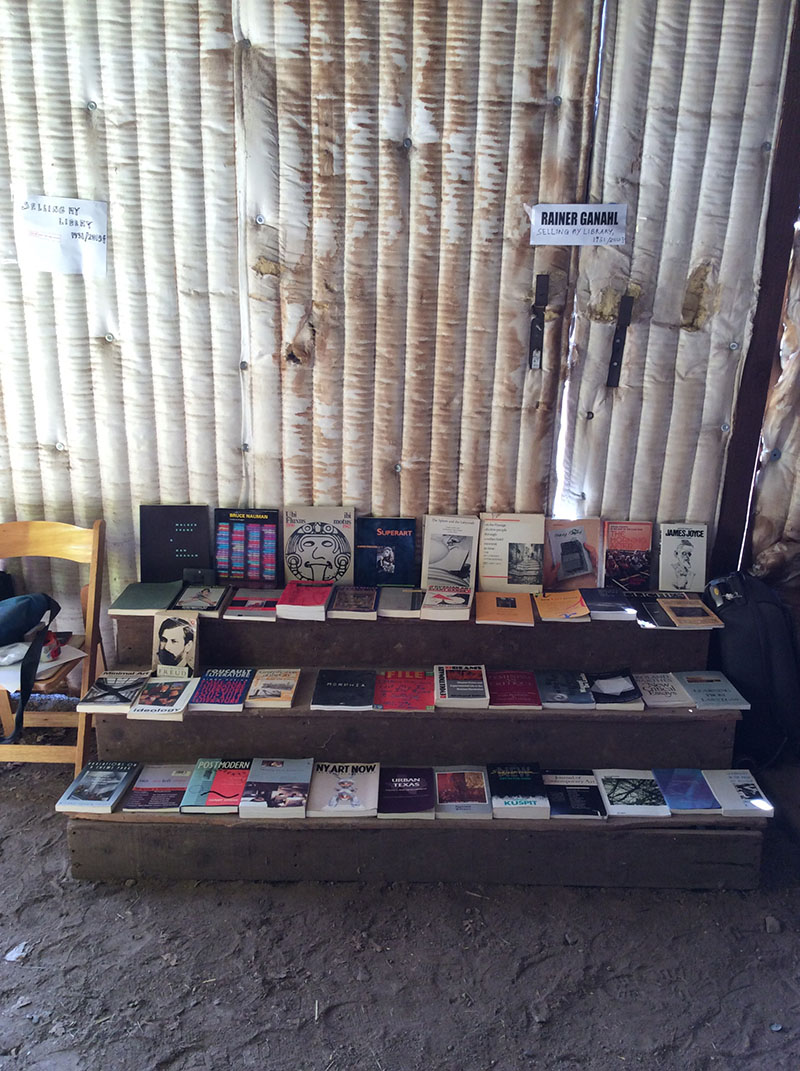
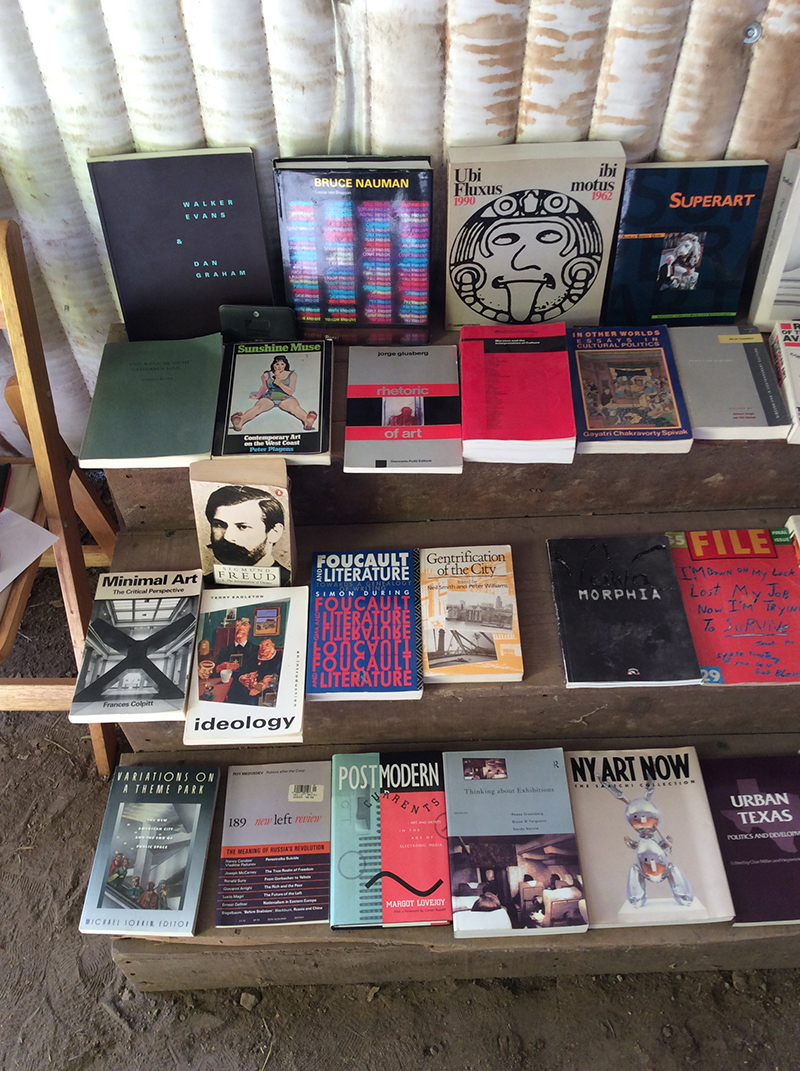
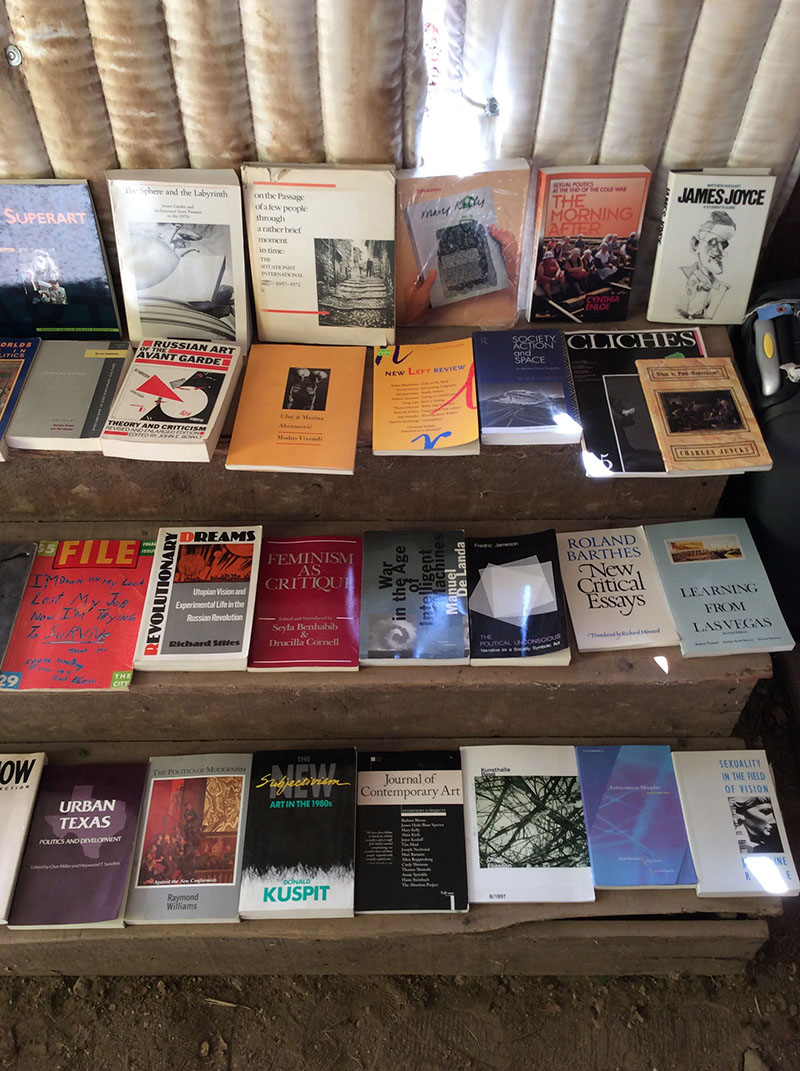
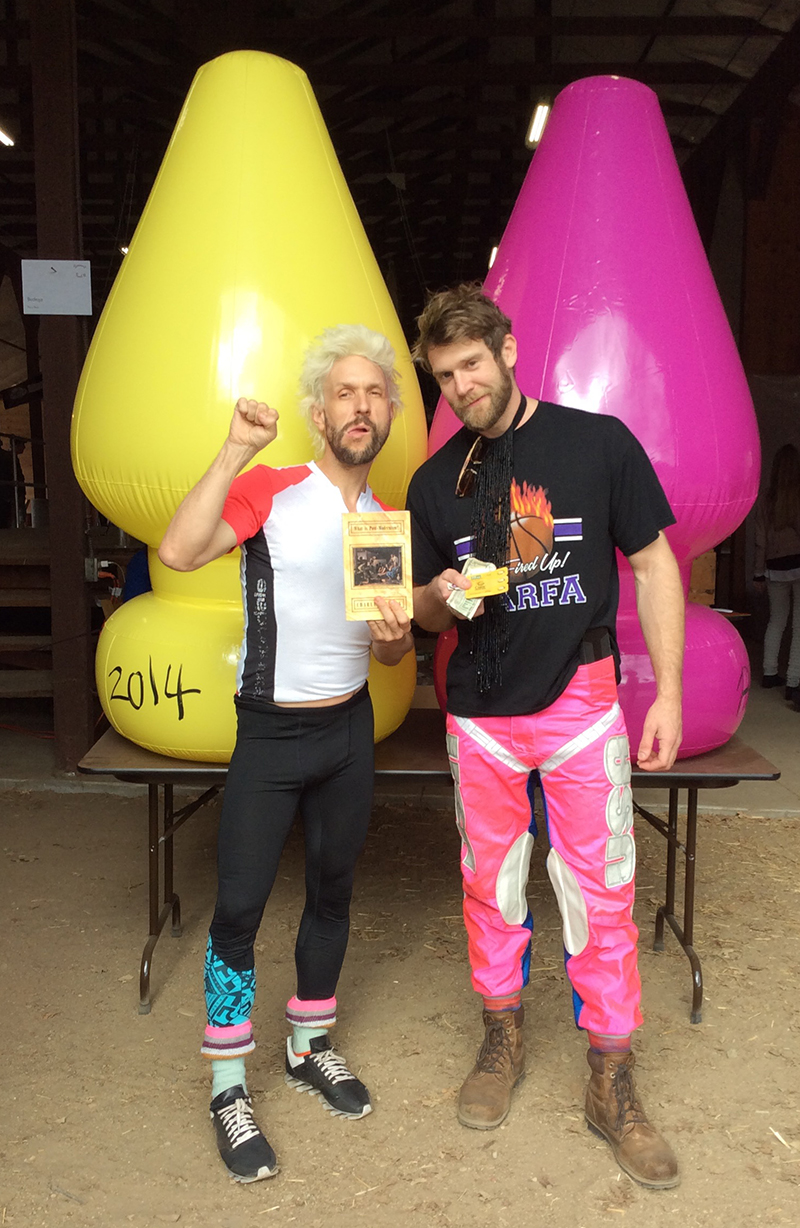
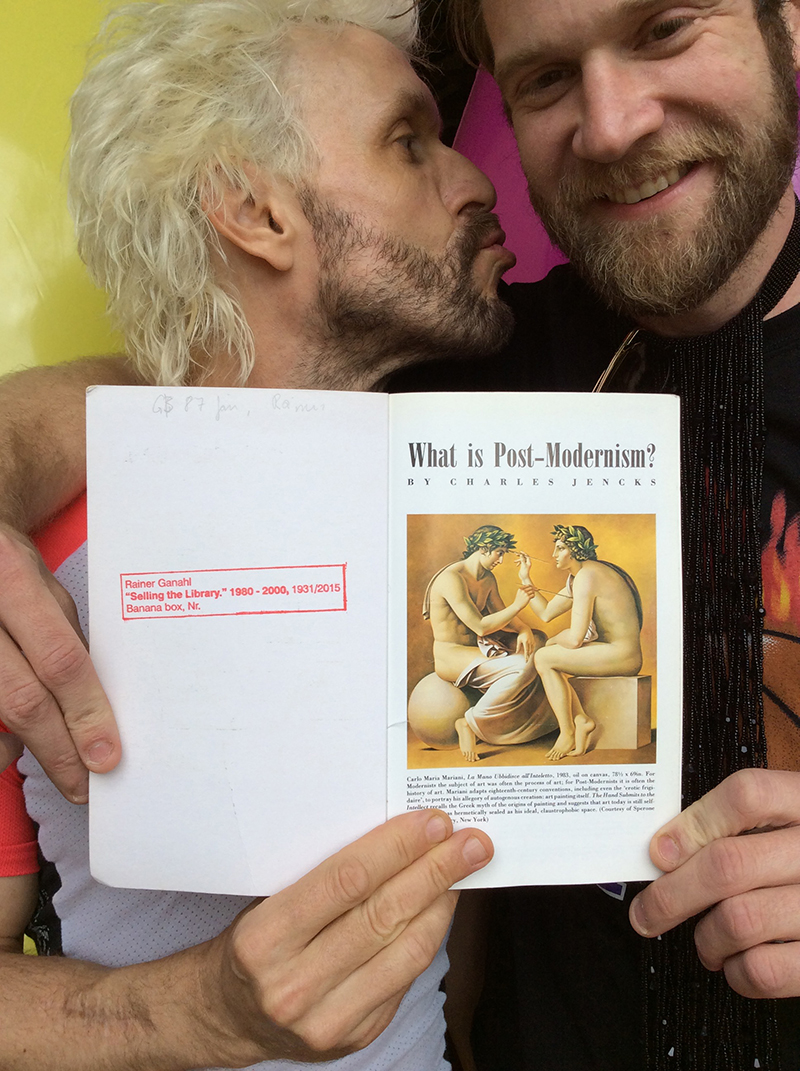
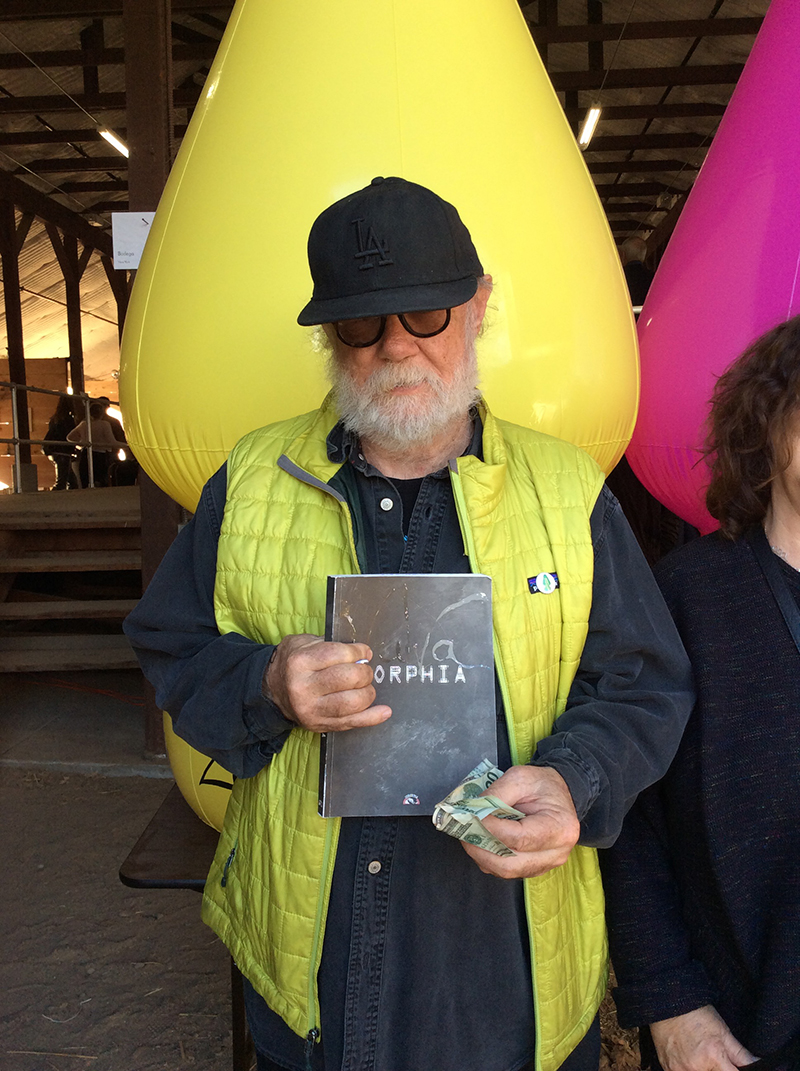
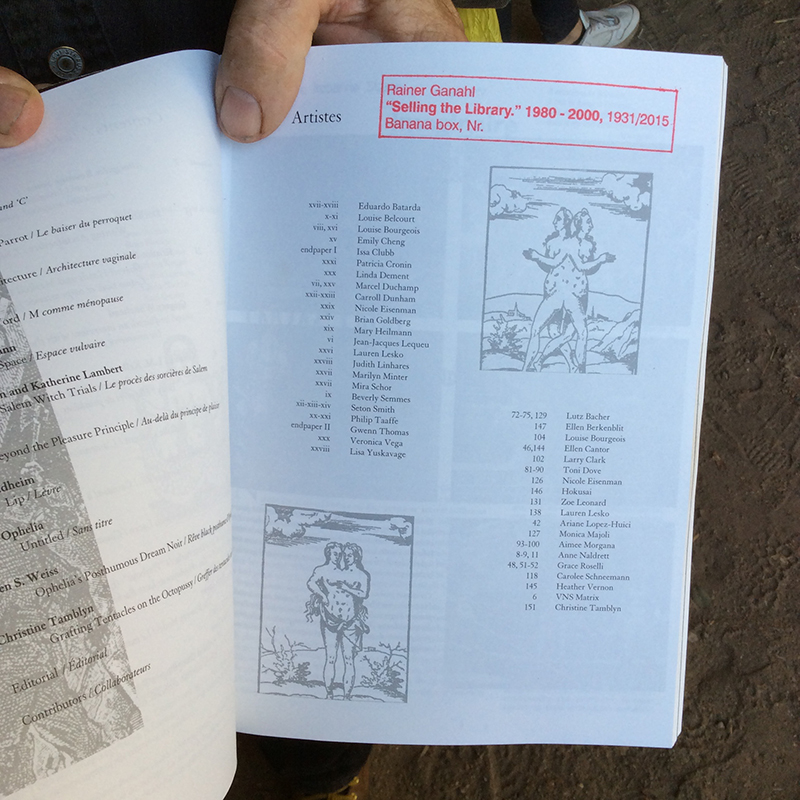
Paul McCarthy
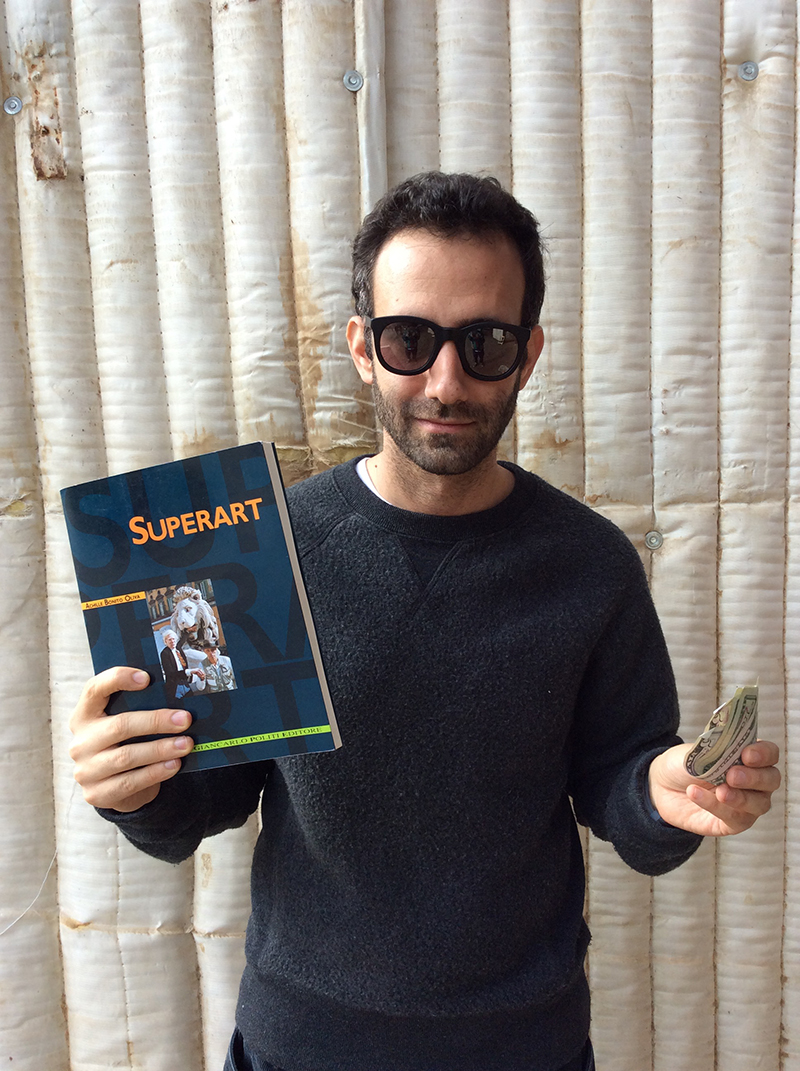
Alex Israel
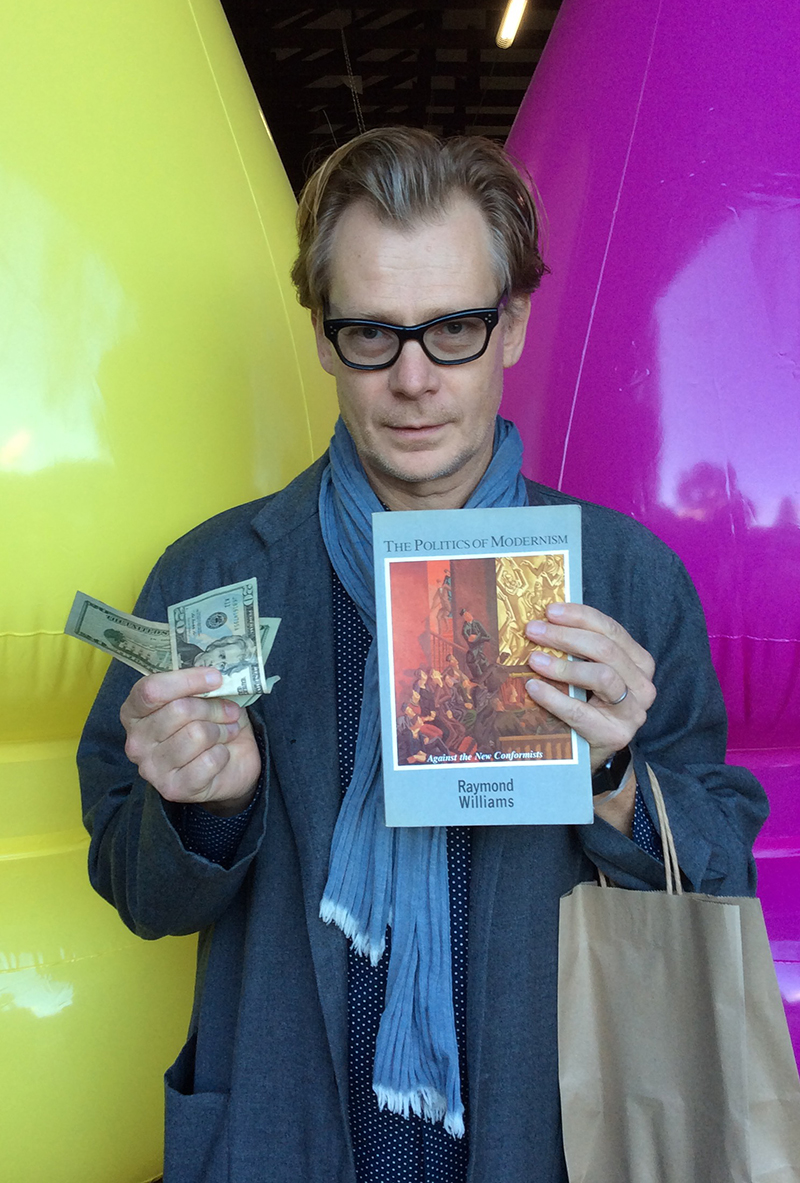
Performa 2015 , New York = @ Kai Matsumiya, New York
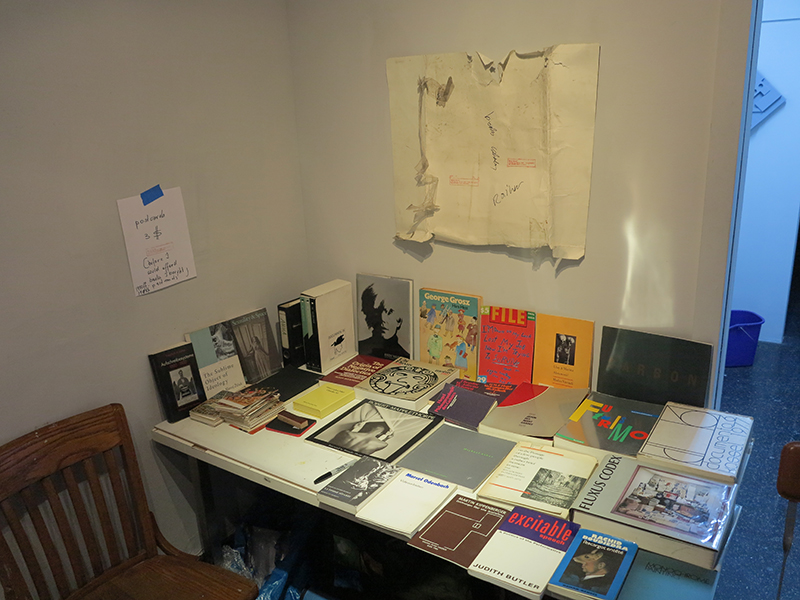
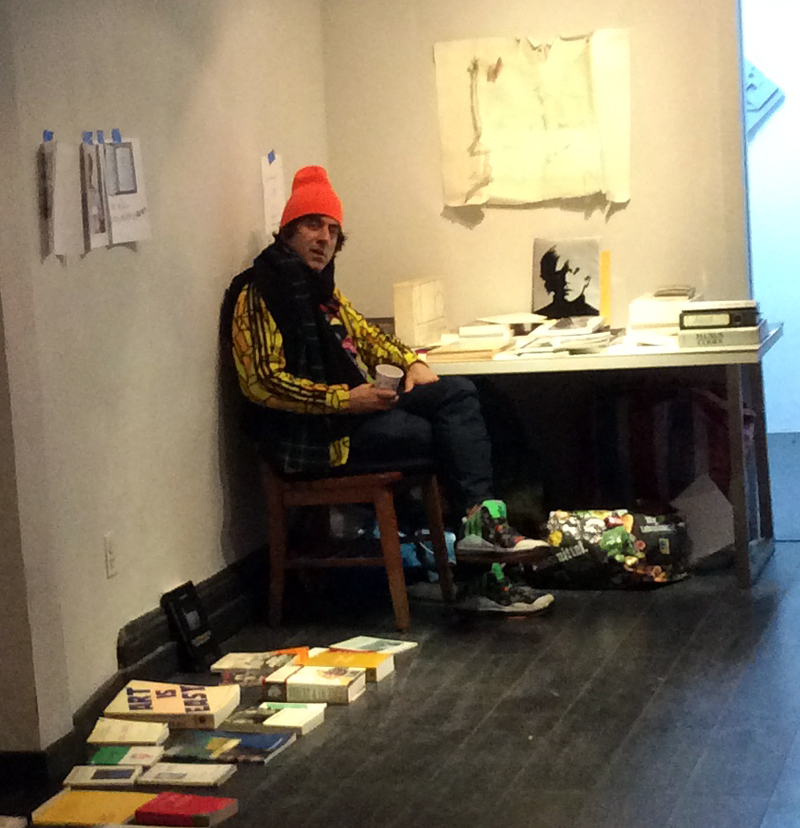
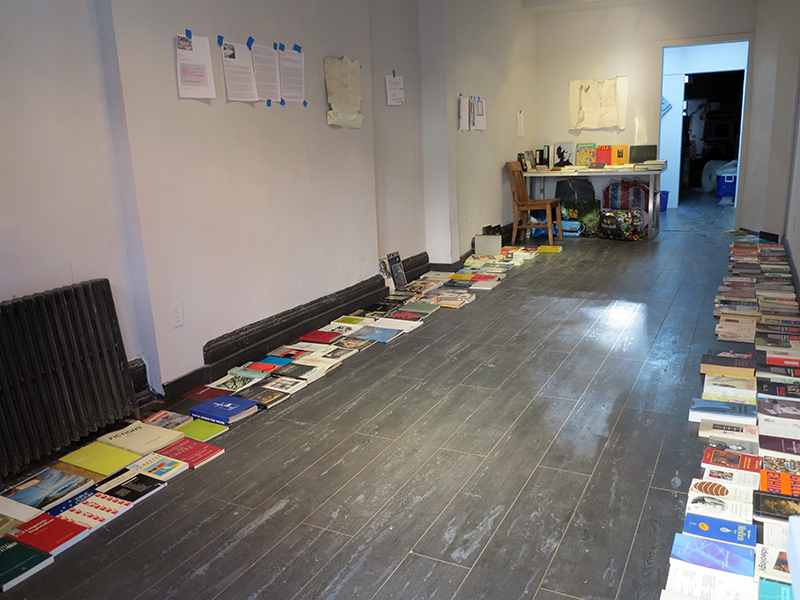
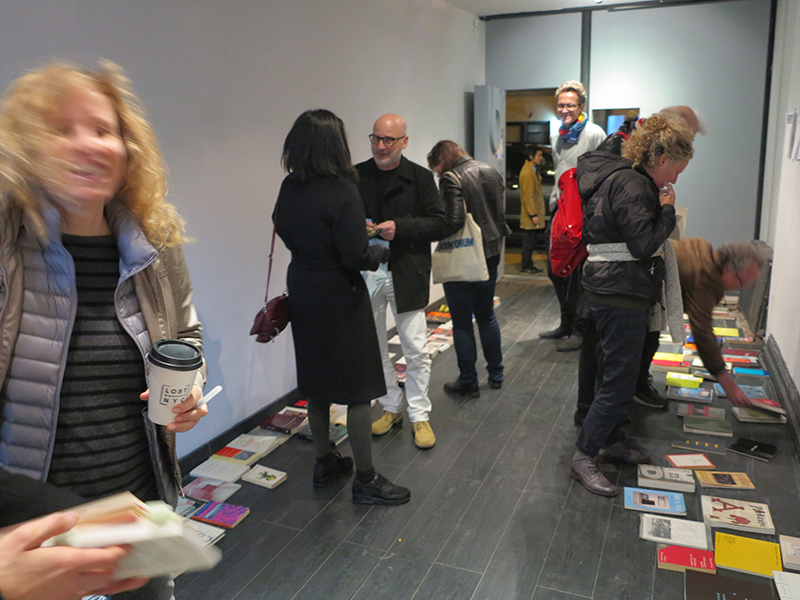
purchaser Martha Schwendener, Max Graham, Barry Schwarbsky and Carol Szymanski and ....
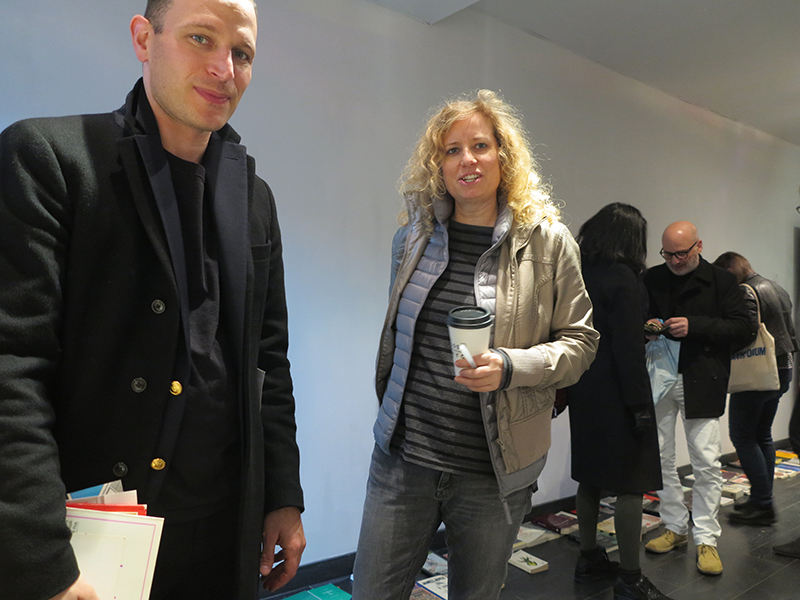
Thierry de Duve and Lisa Blas
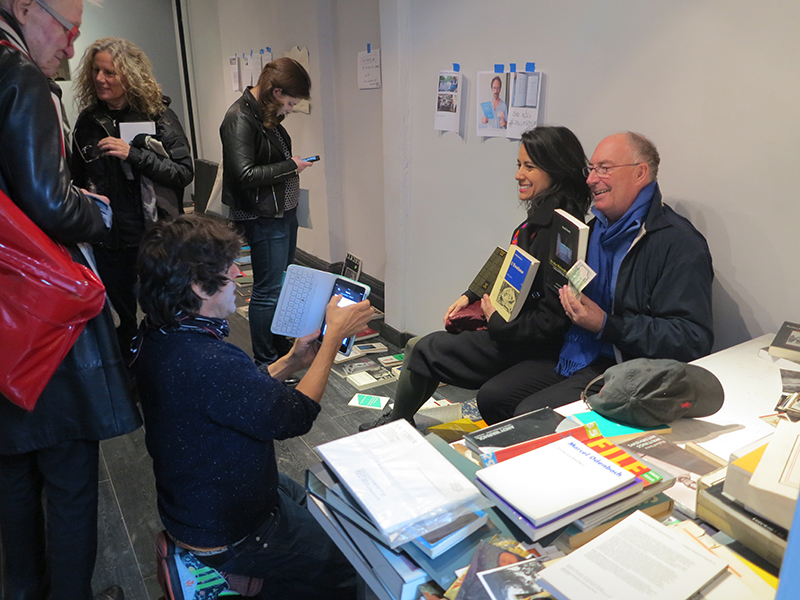
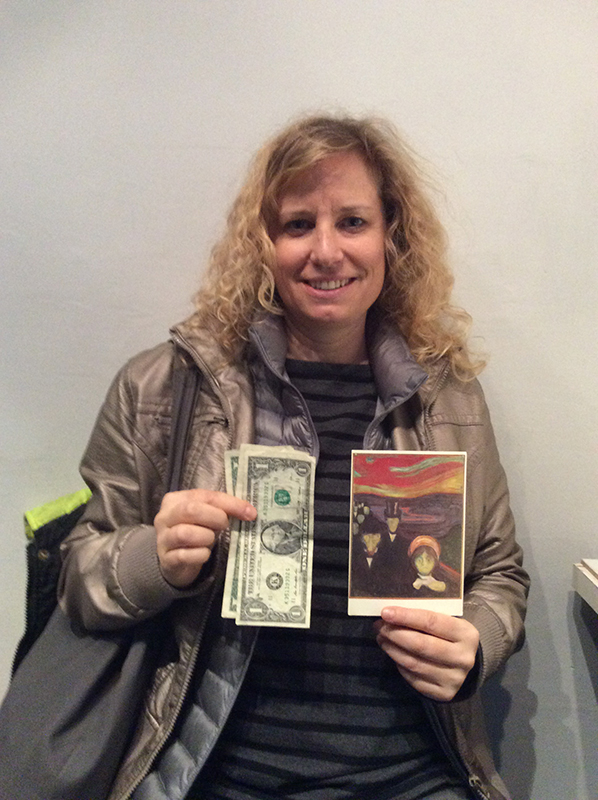
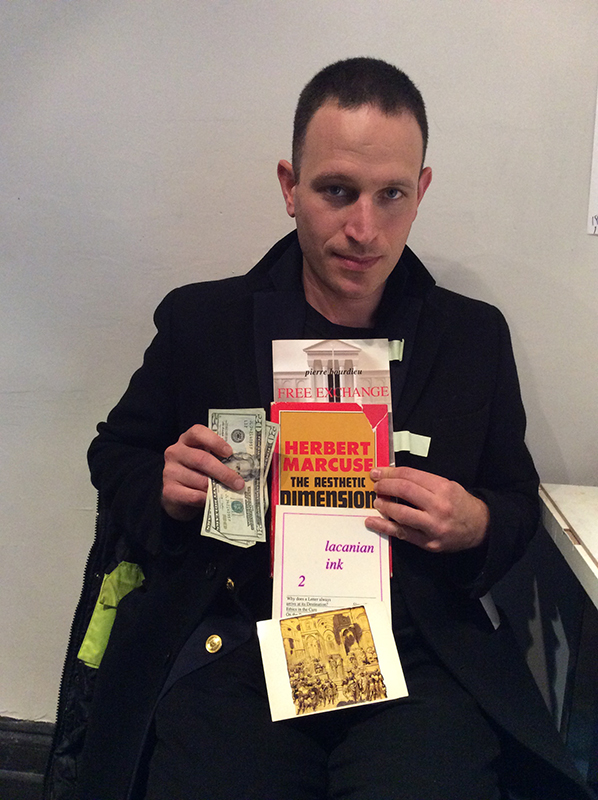
Maxwell Graham
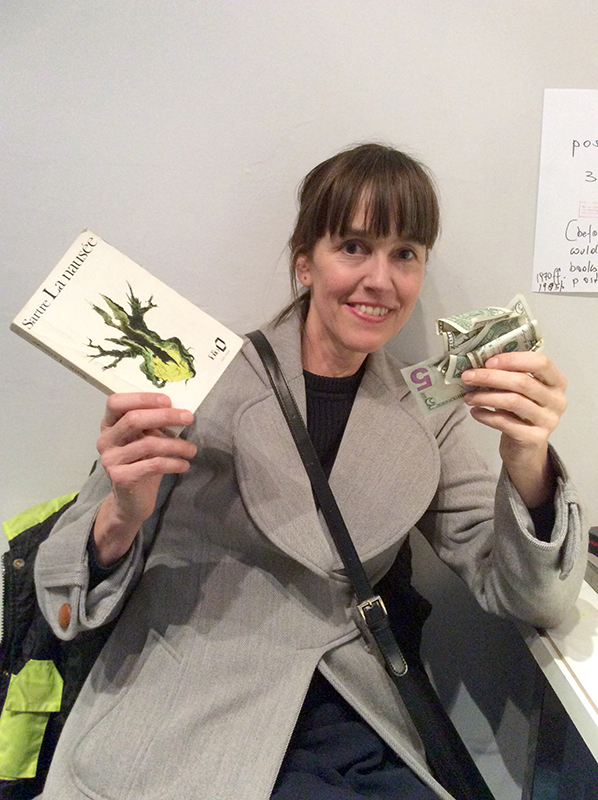
Laura Hoffmann
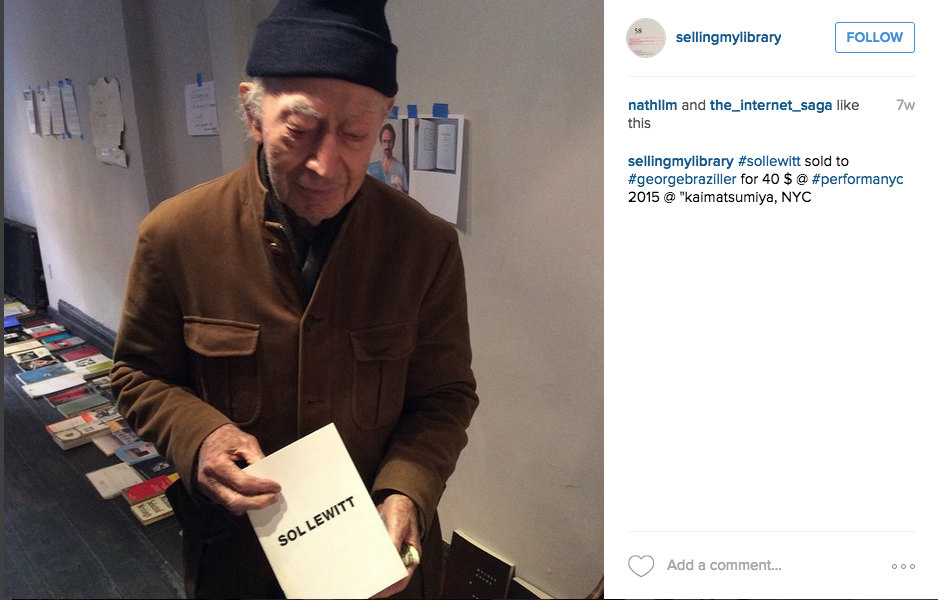
Geroge Braziller (100 years old) - a great publisher
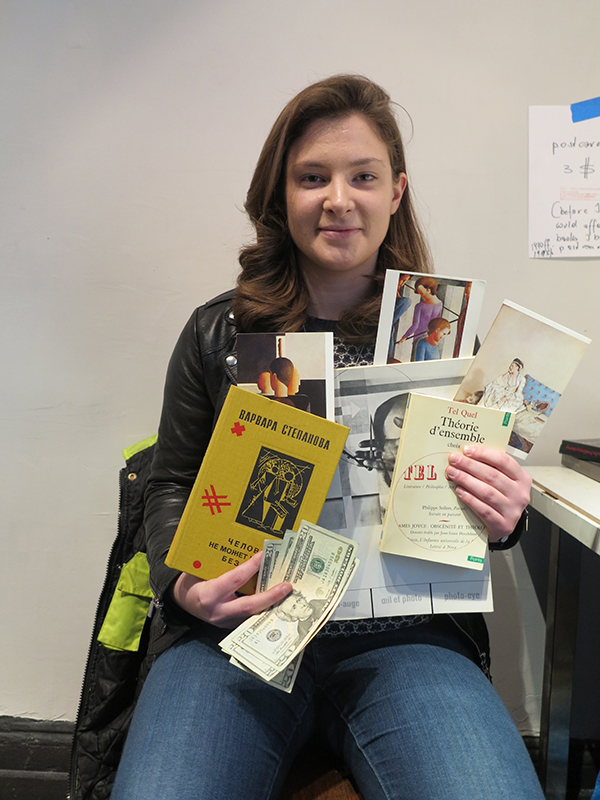
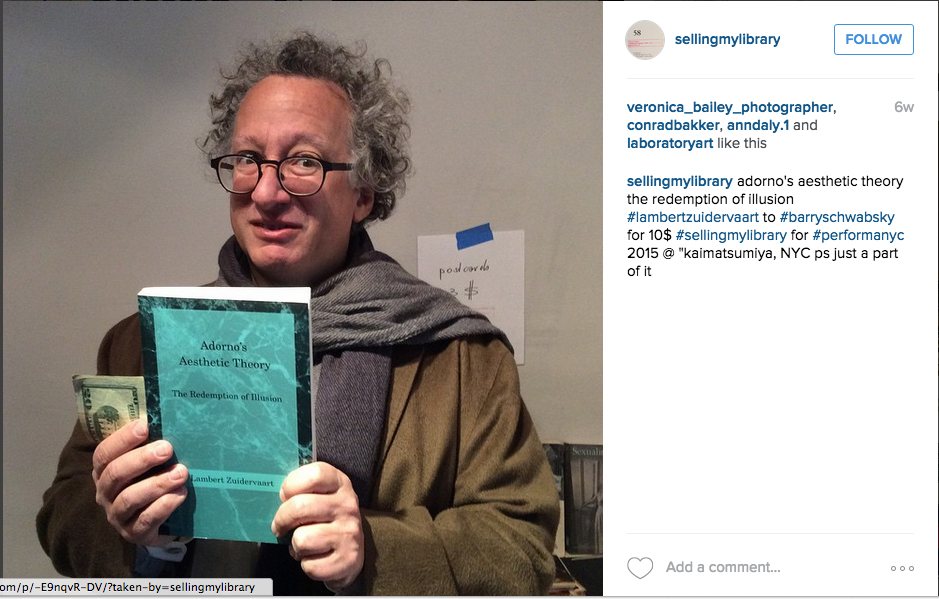
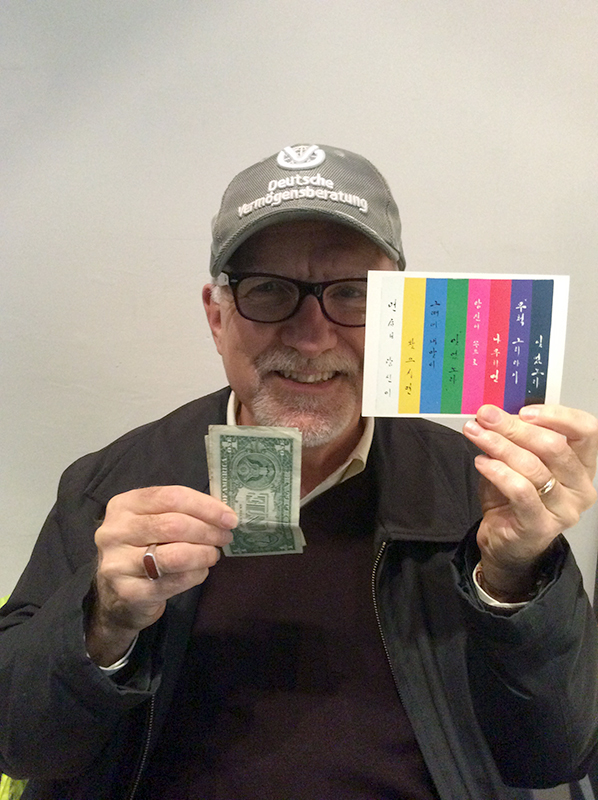
John Hanhardt - a postcard by Nam June Paik (John organized Paik"s show at the Whitney museum in the 1980s)
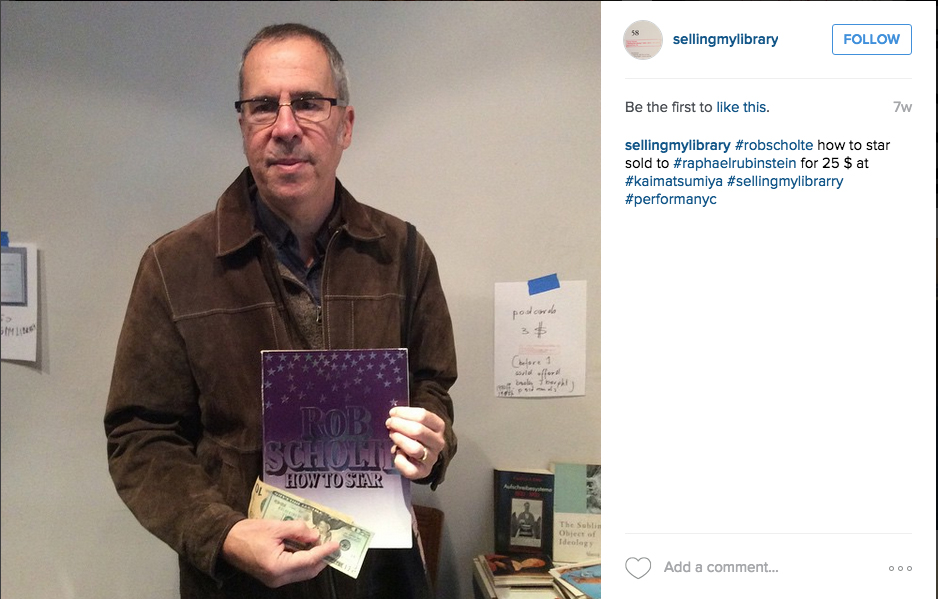
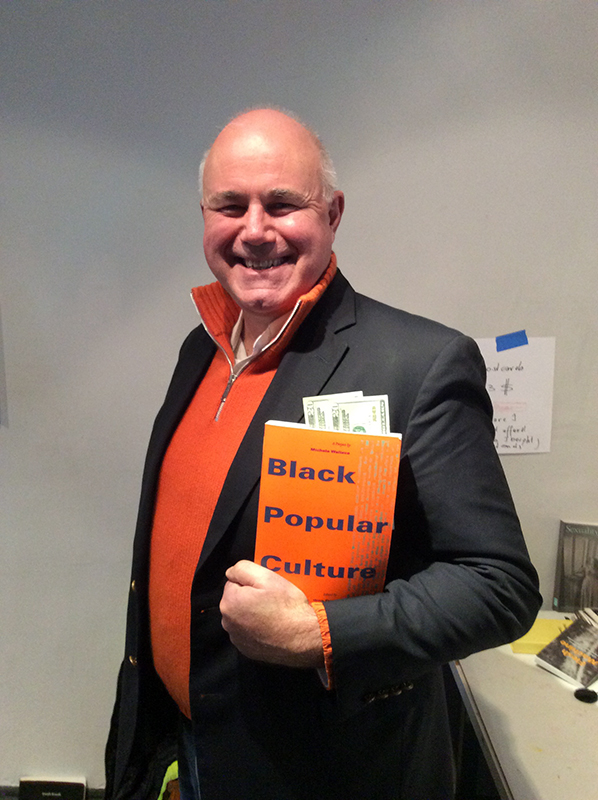
siomon watson
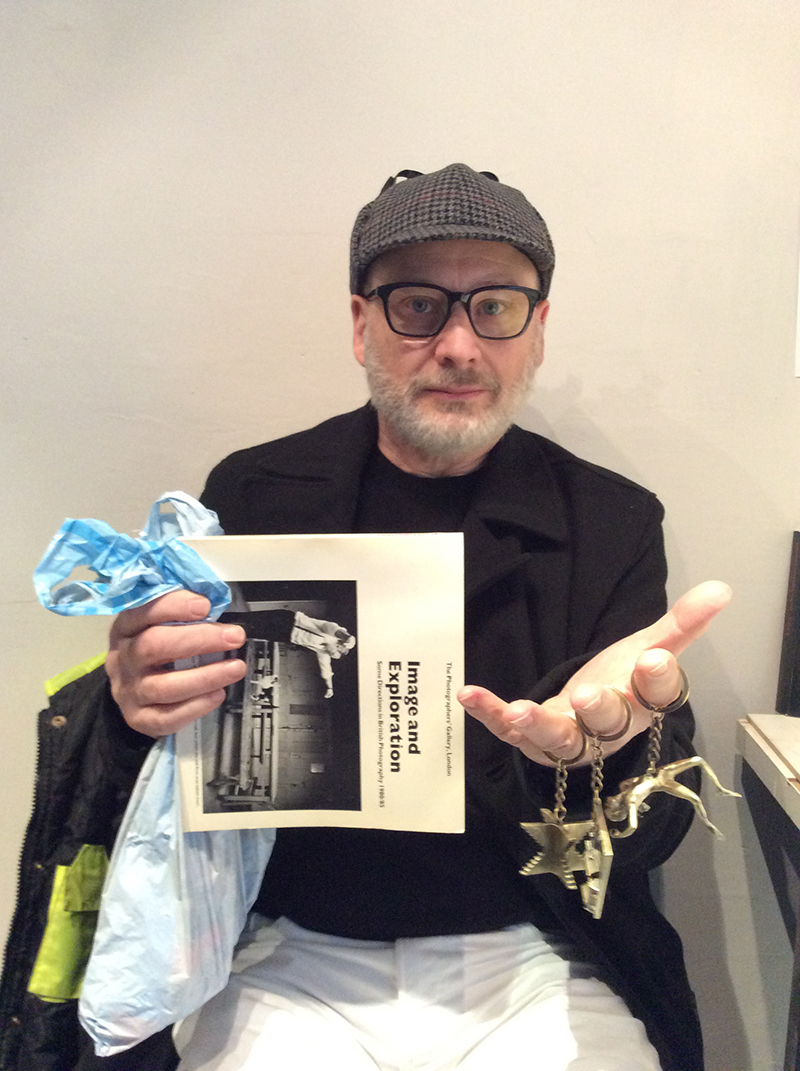
image and exploration british photography 1980 / 85#jonathanbayer #alexnoble
sold to #ryangander #earnesthawker #ernesthawker for 3 scultpures
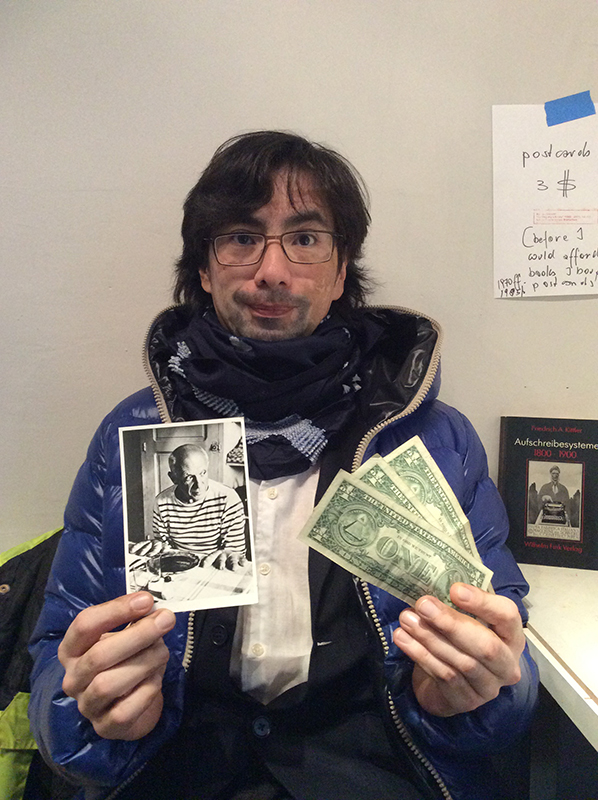
Paco Marcial
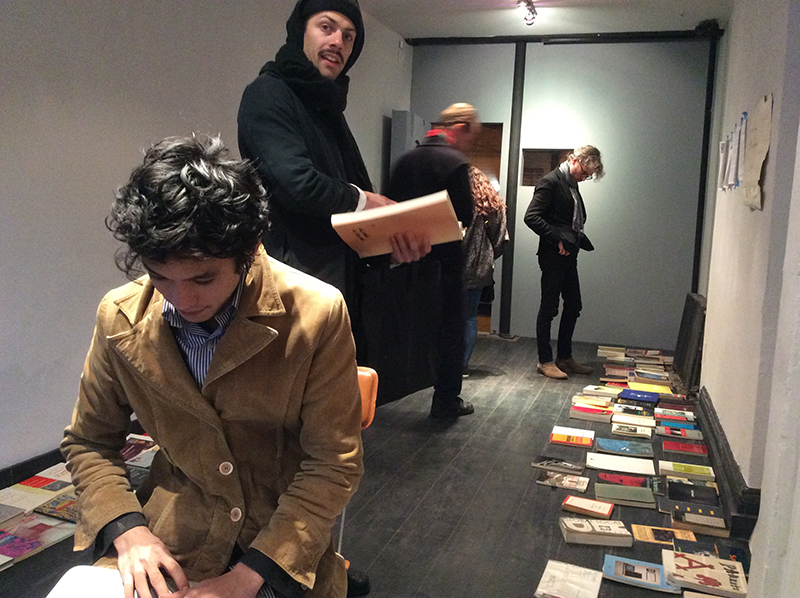
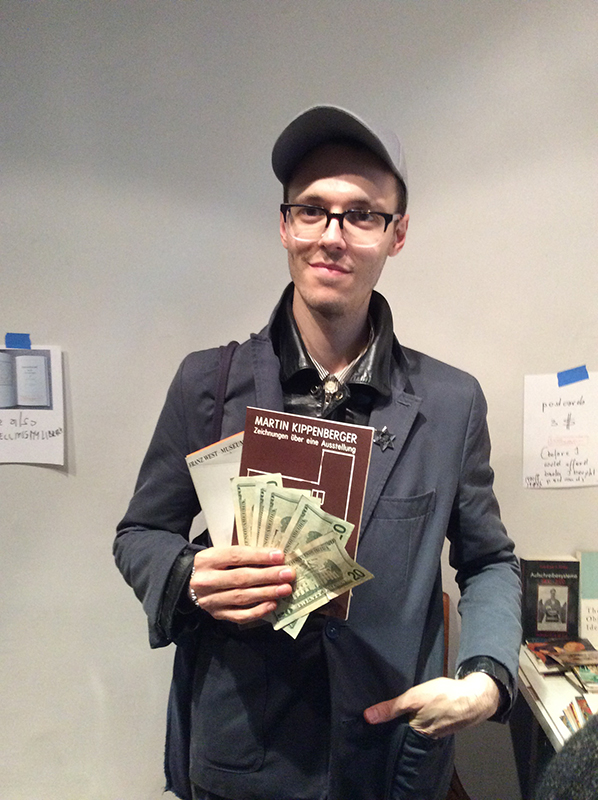
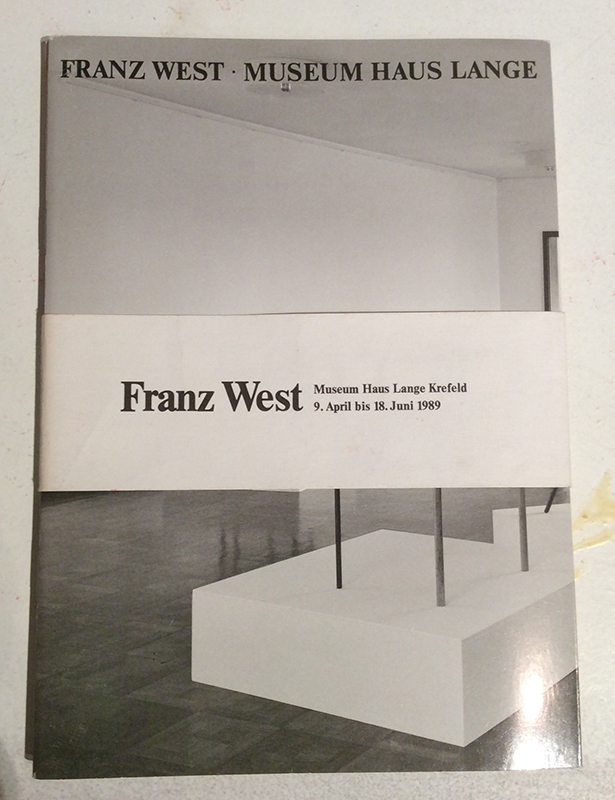
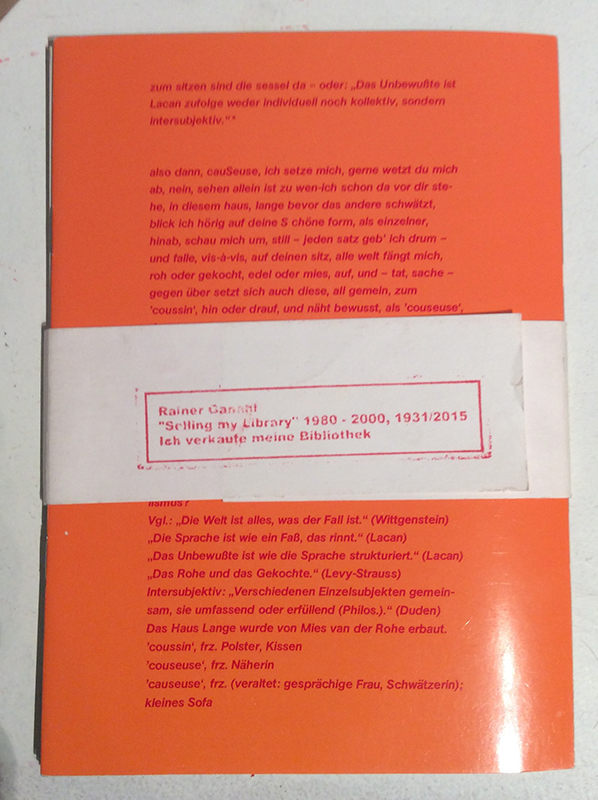
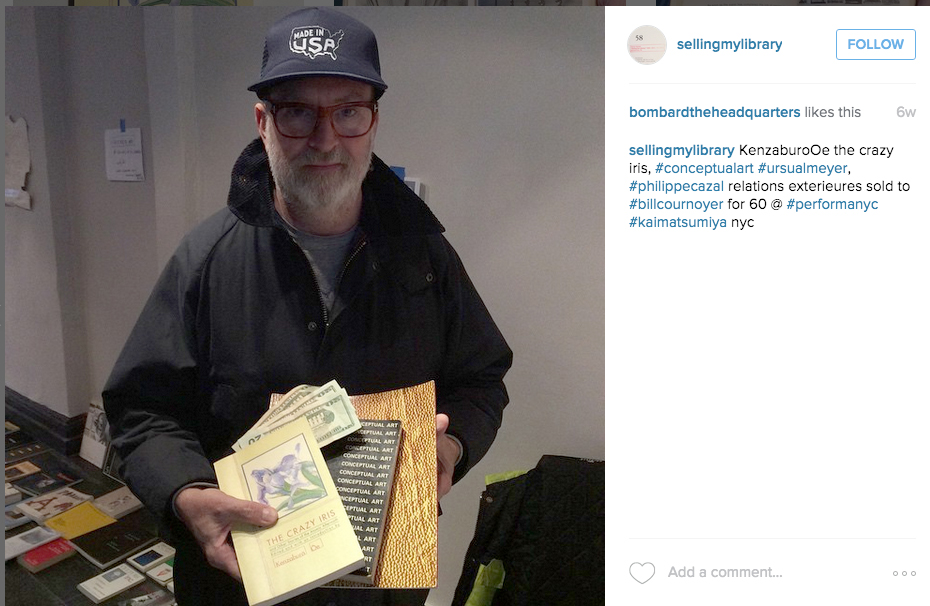
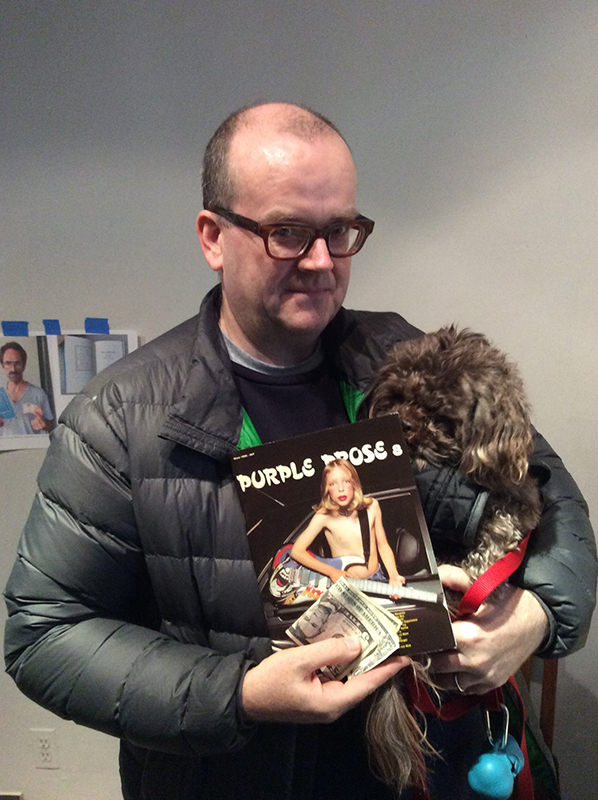
Matthew Higgs
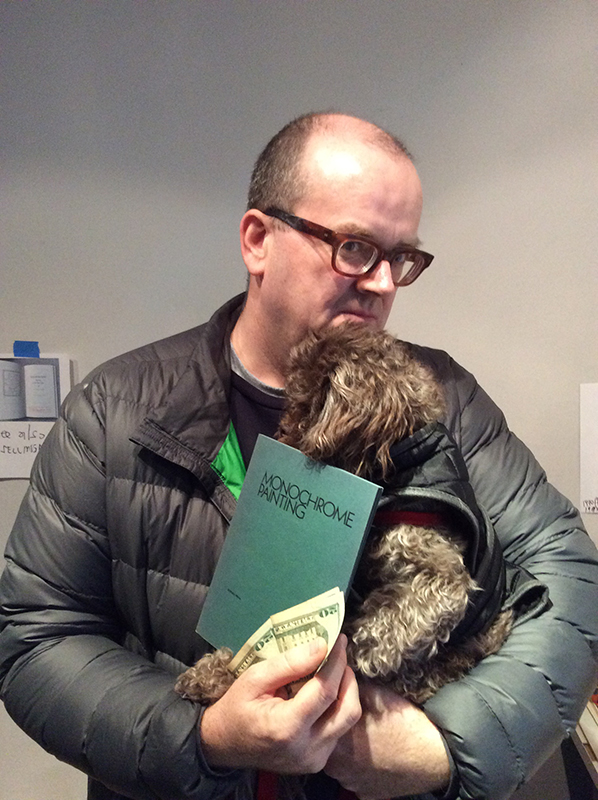
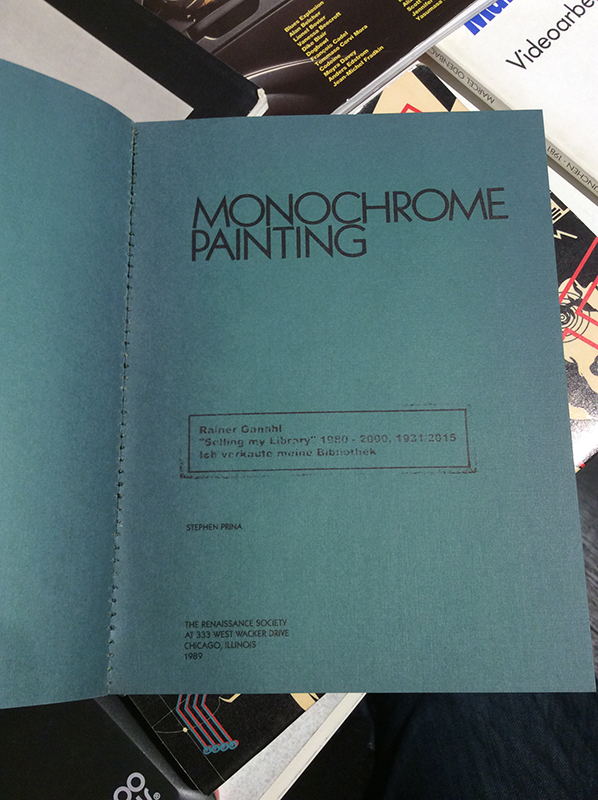
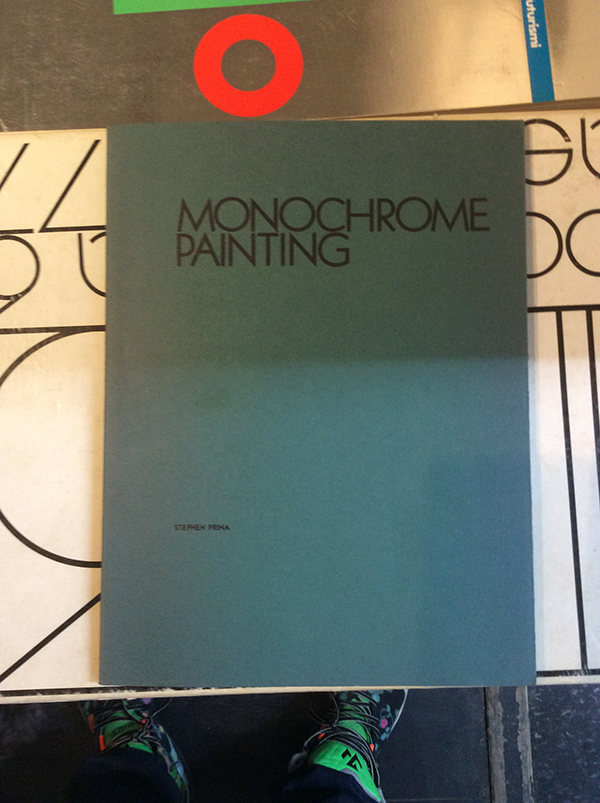
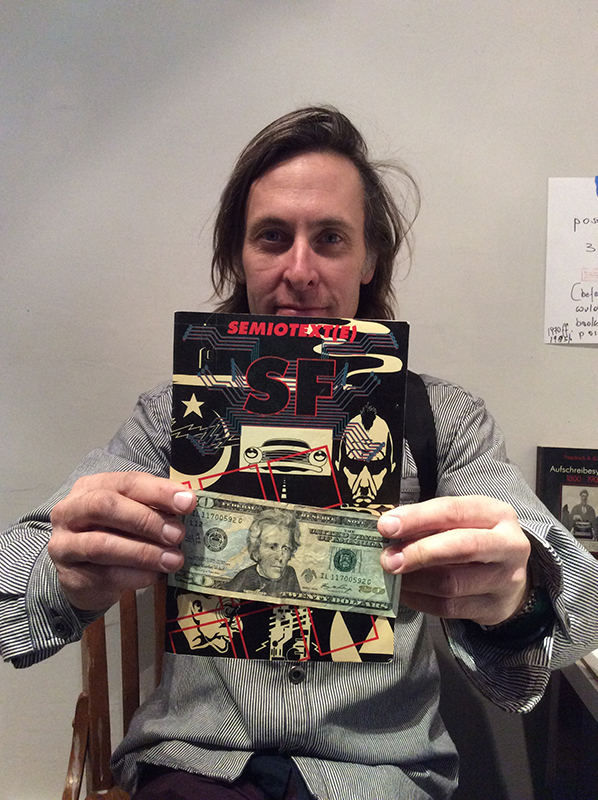
John Tremblay
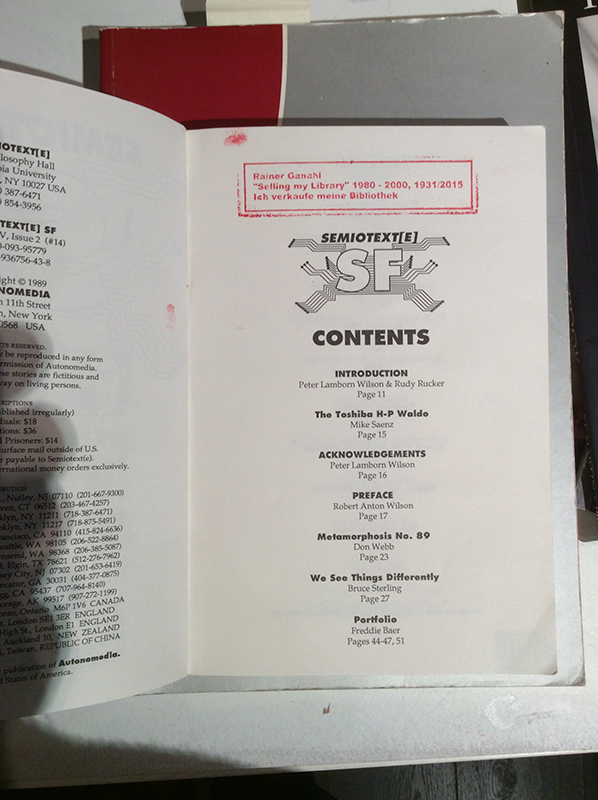
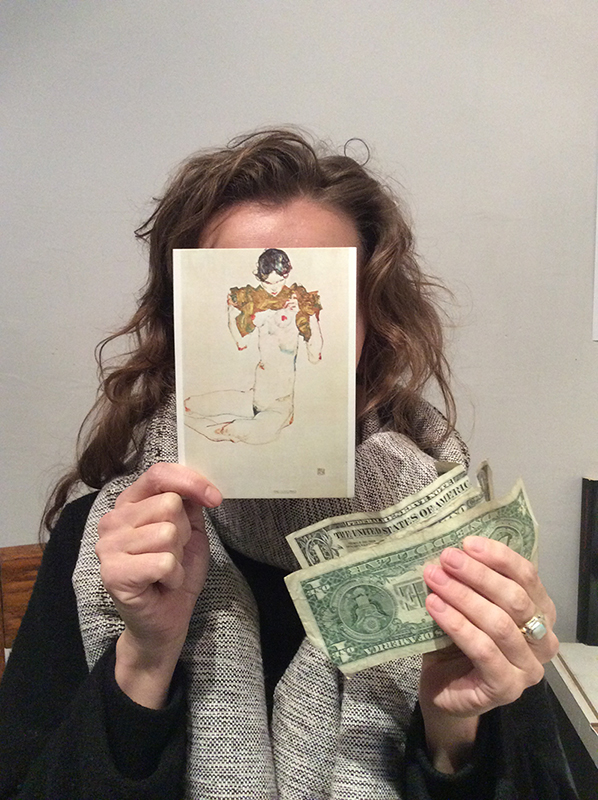
Sara Roffino
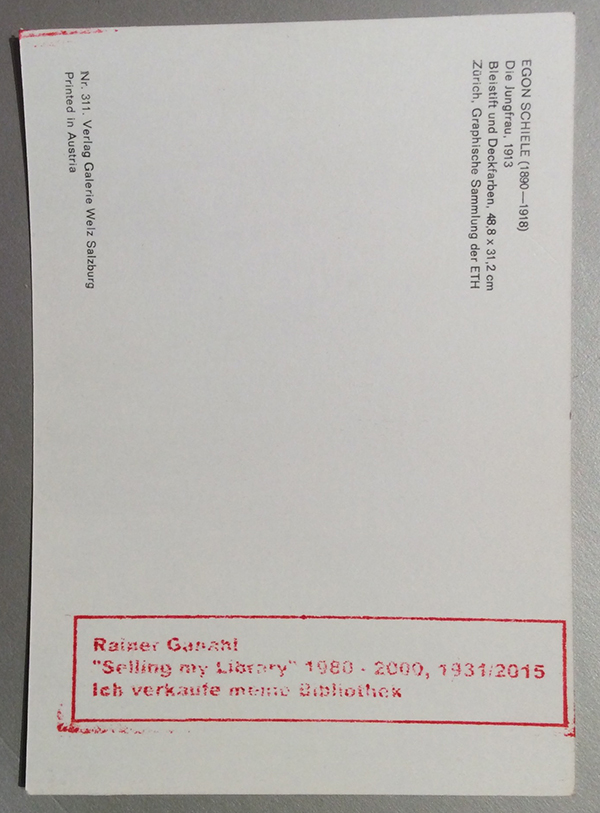
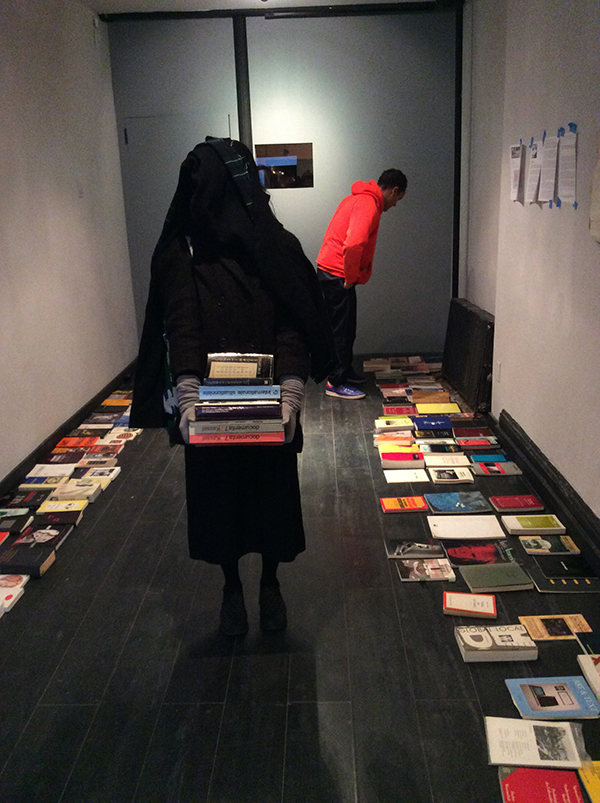
Olivia Shao - purchased the most...
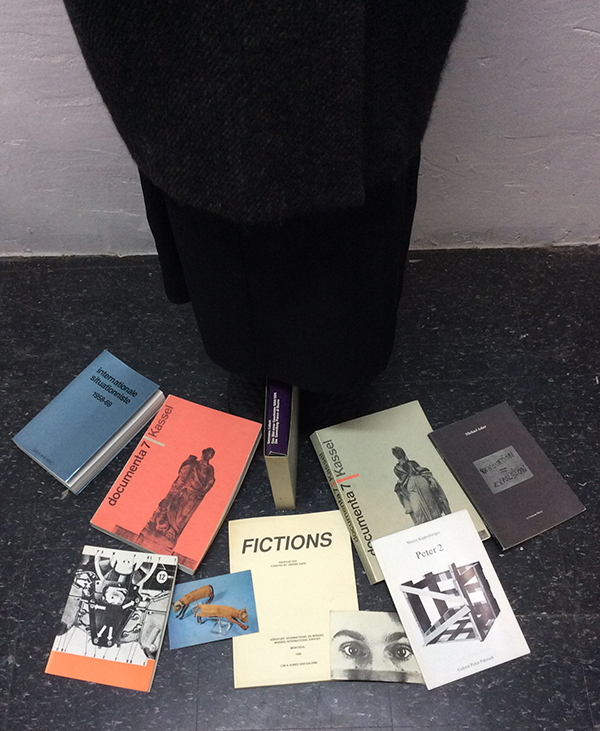
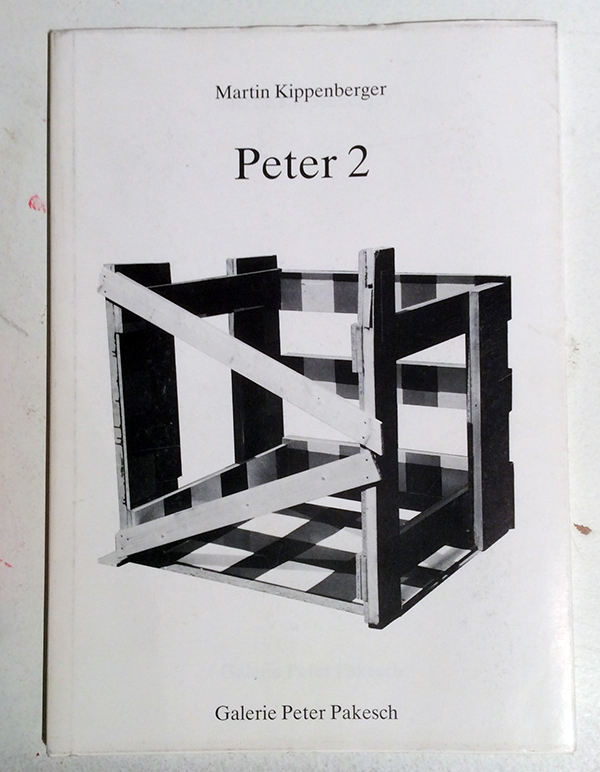
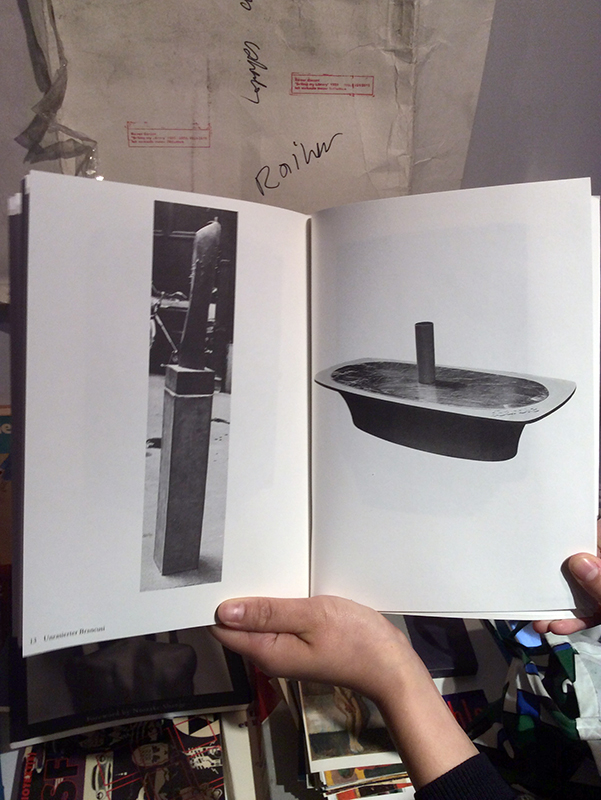

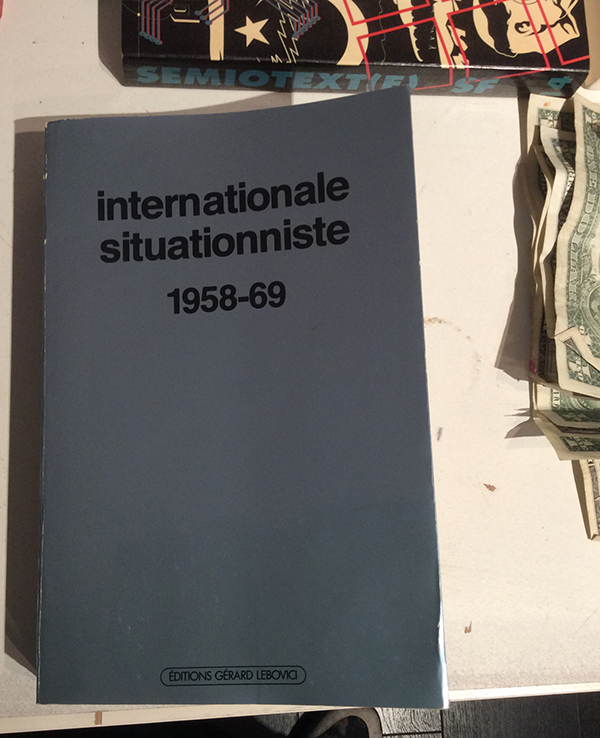
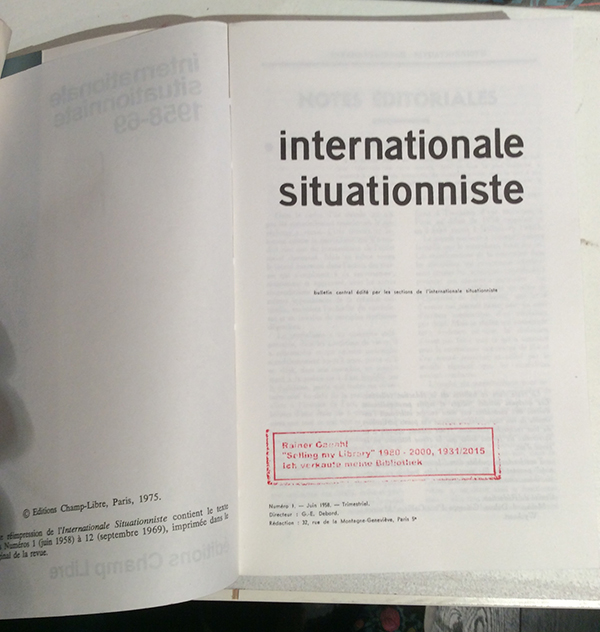
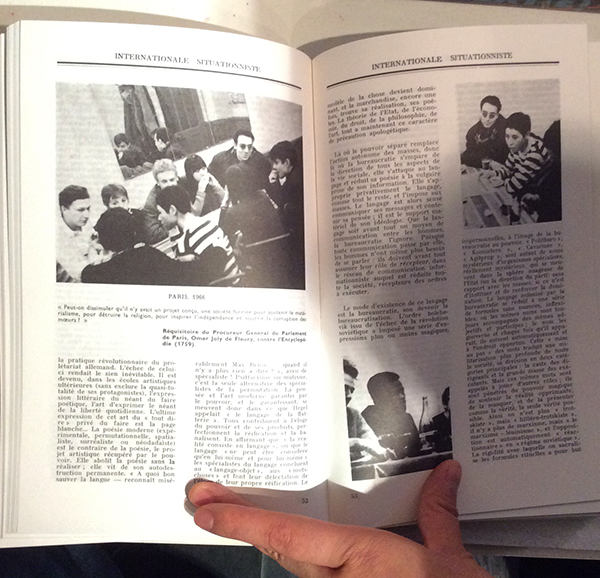
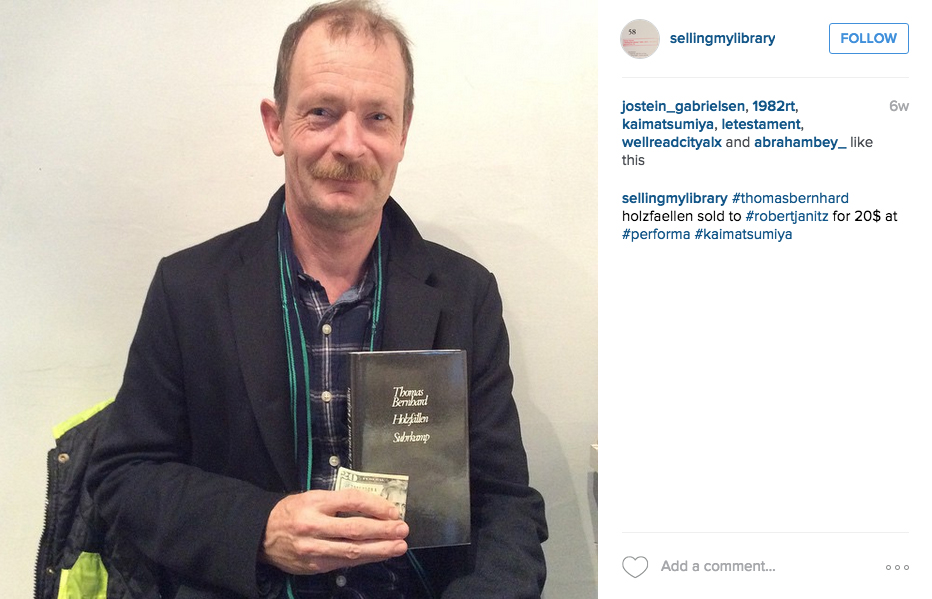
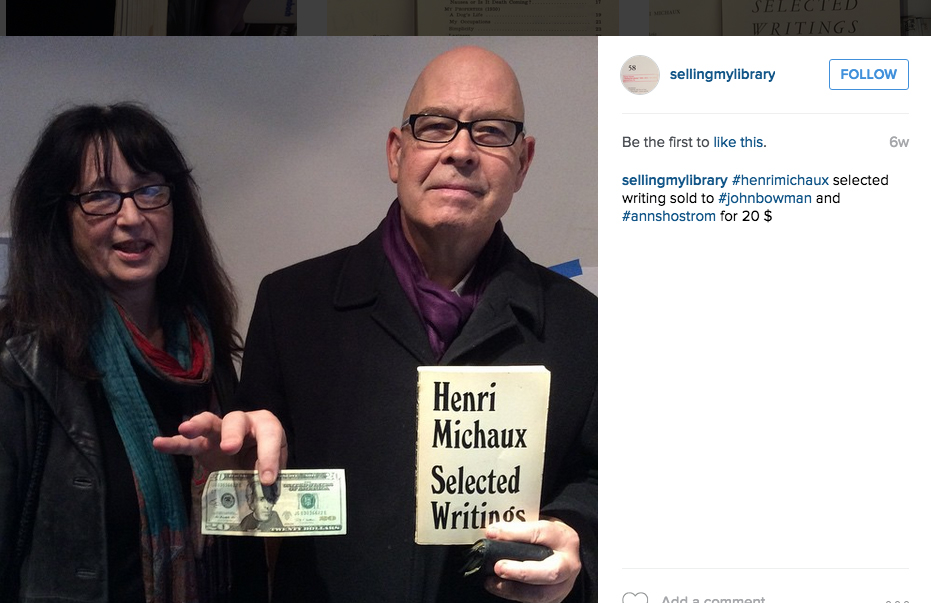
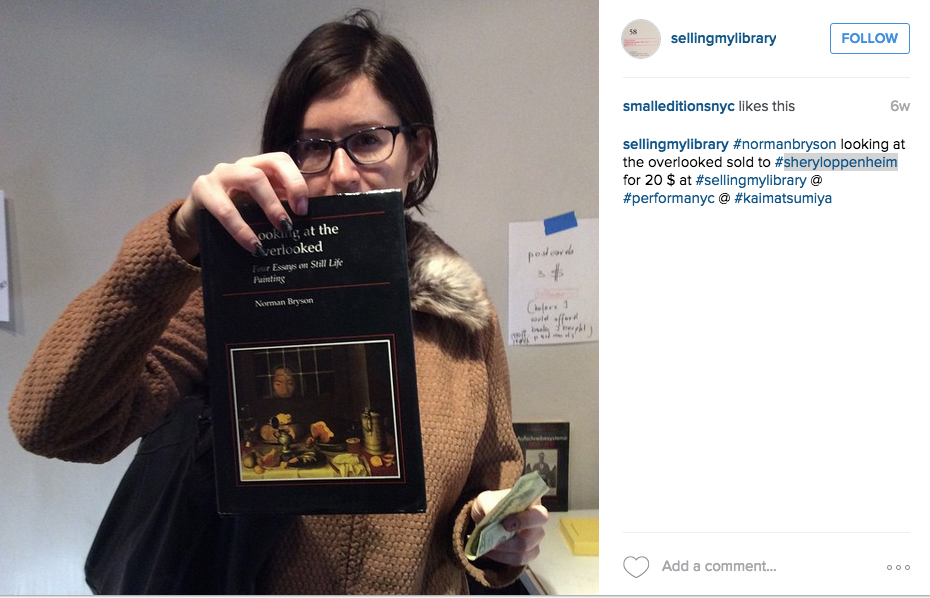
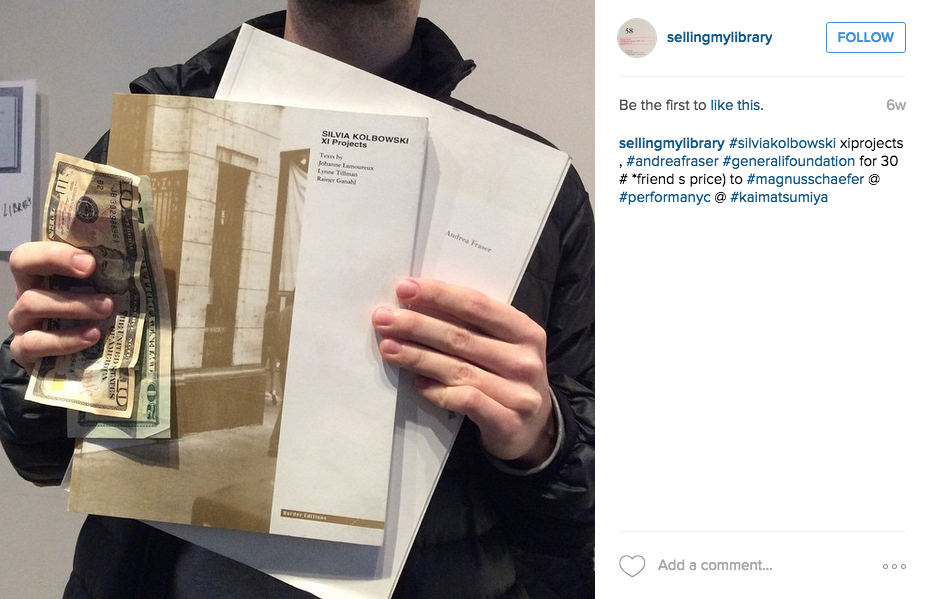
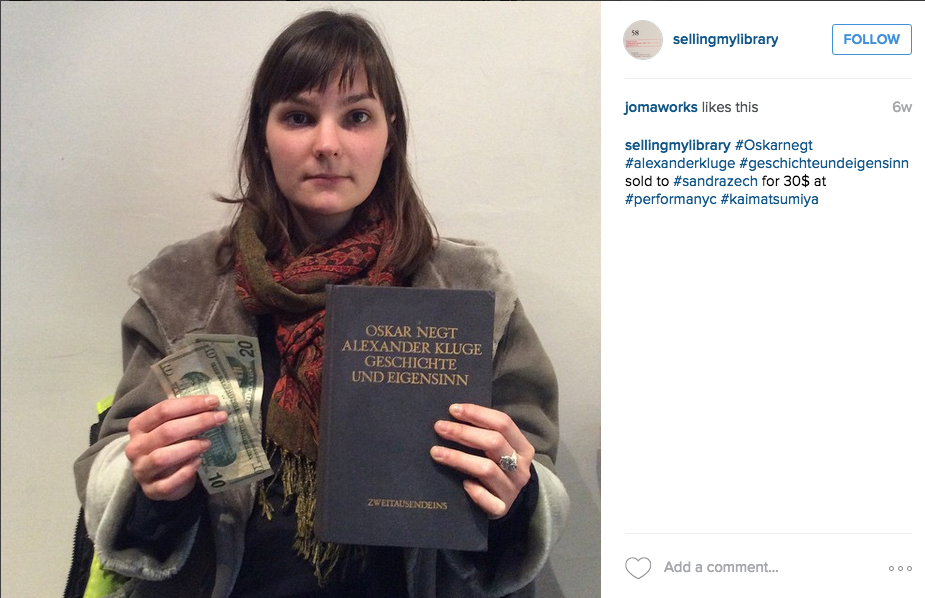
from the New York Times 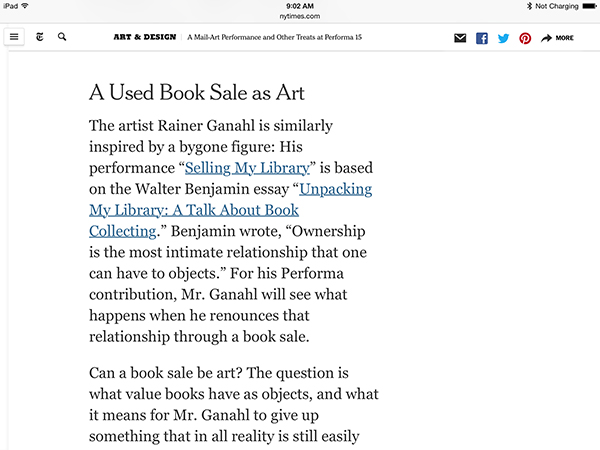
a book by michael asher, that is about stuff lost in books .. where i found a drawing of myself... i haven t seen for 25 years -- meaning there for a quater century - the book comes with the drawing .. * a work from my "window" series... late 1980s , early 1990s
click image or here to see high res image
SELLING THE LIBRARY, 1980 - 2000, READINGS 1931/2015 ff
Maurizio Nannucci - sold to B WURTZ
Richard Prince - sold to Daniel Herleth
Some of the buyers:
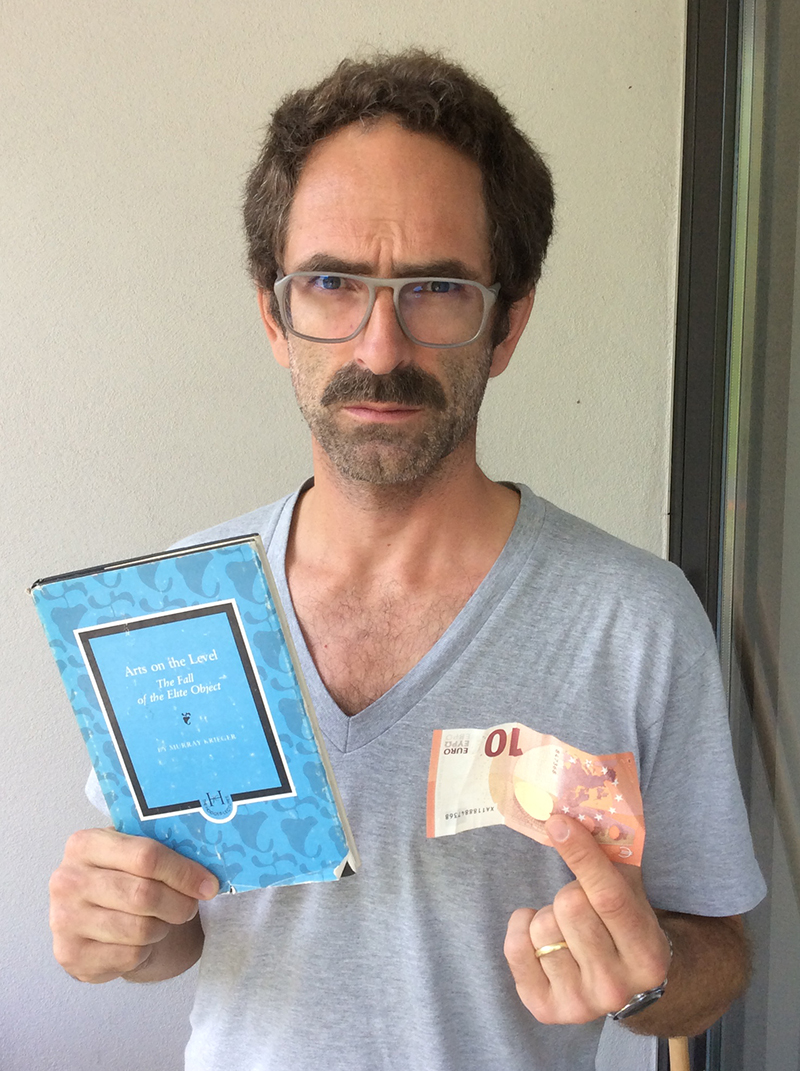
Jonathan Monk, Arts on the Level, the Fall of the Elite Object, by Murray Krieger, 1981 -- for 10 euros BERLIN
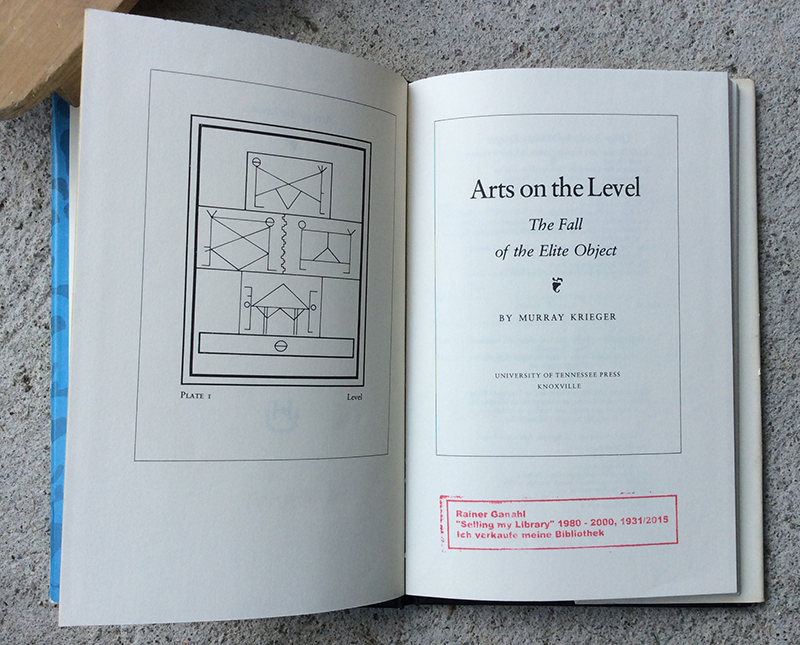
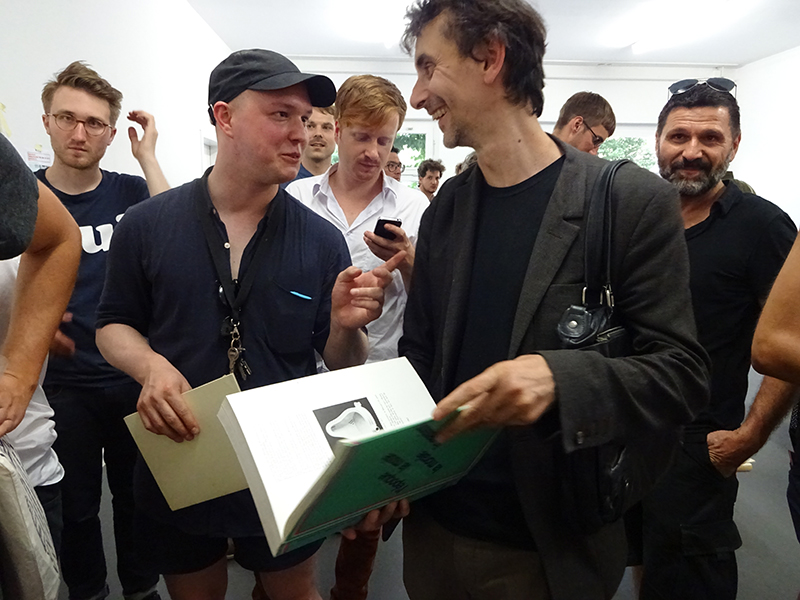
Saadane Afif, Spike Berlin 2015 - here people queuewing up -
he bought for 60 euros ... an amazing catalog L EPOQUE, LA MODE ET LA MORALE
*THE AREA, FASHION AND MORALE - A POOMPIDOU CATALGO . GREAT SOW FROM 1987 I enjoyed a lot
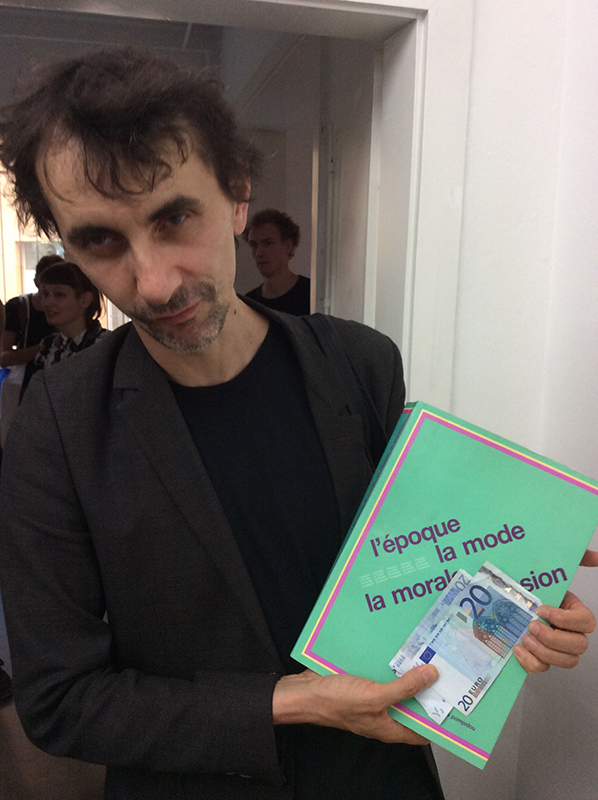
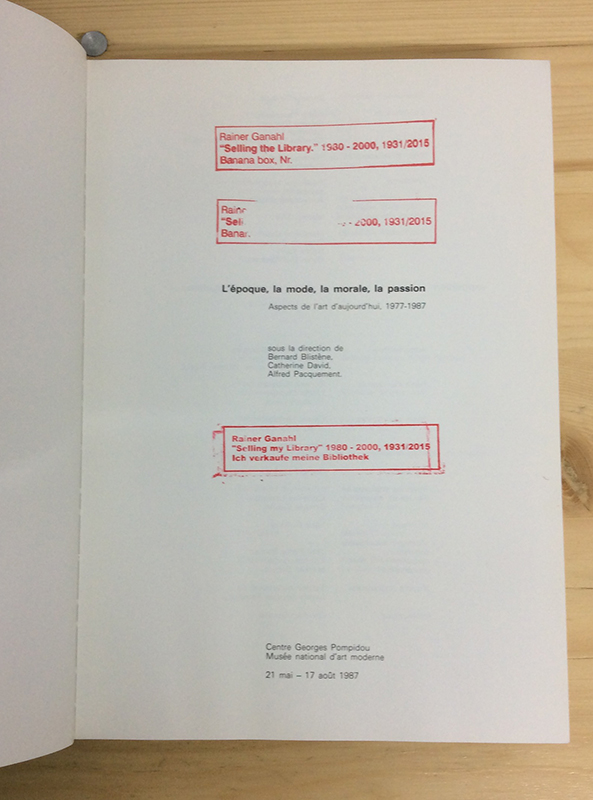
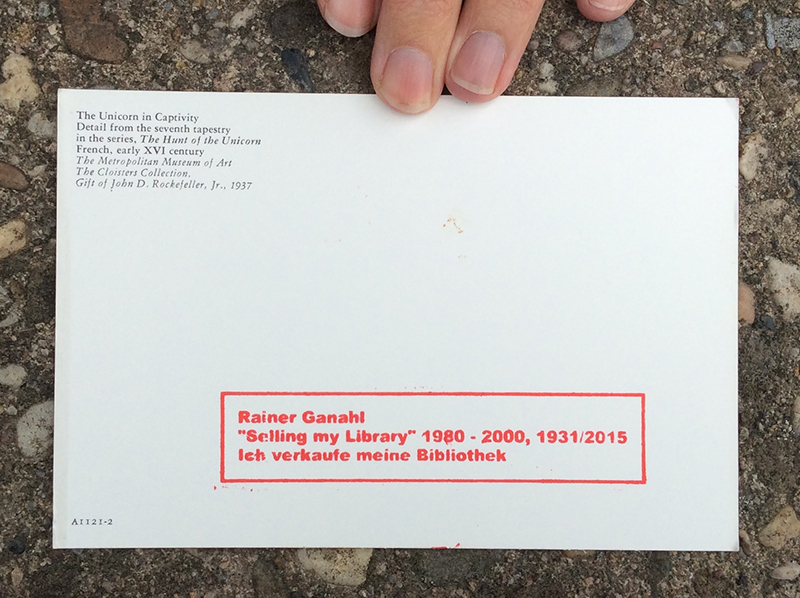
Heike Föll, postcard Berlin --- THIS POSTCARDS was sold for 3 eruros --- i had this postcard oN MY TALBE IN 1985after my first NYC visit ( I HAVE A lot of post cardsa... bc they cost less than books -- see below )
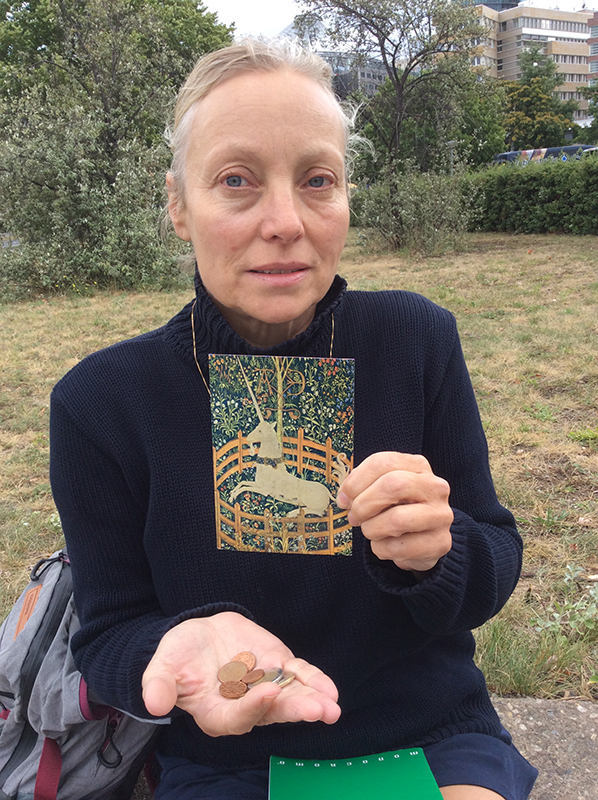
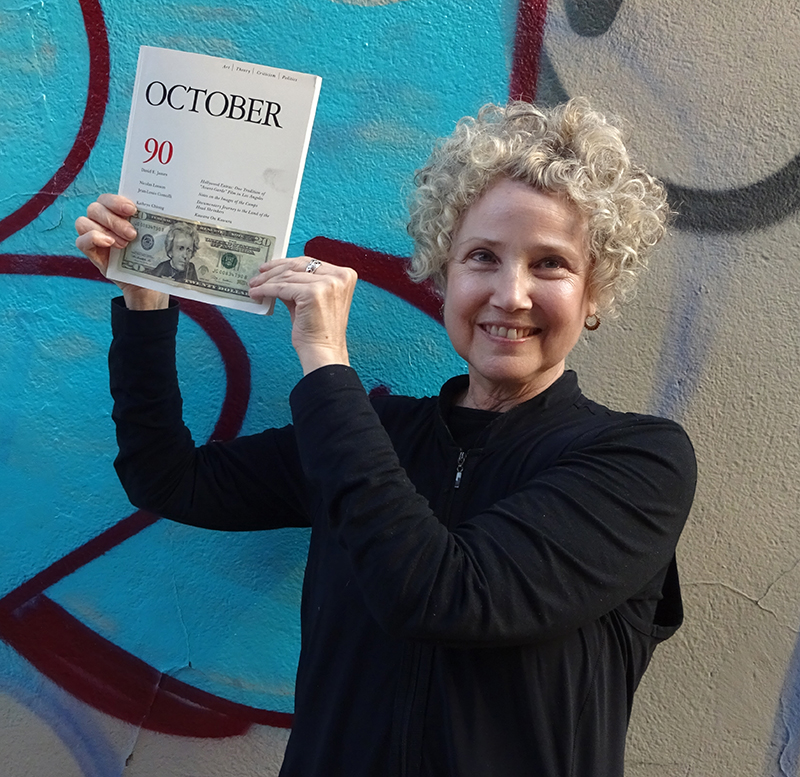
Elyse Goldberg, NYC 2015
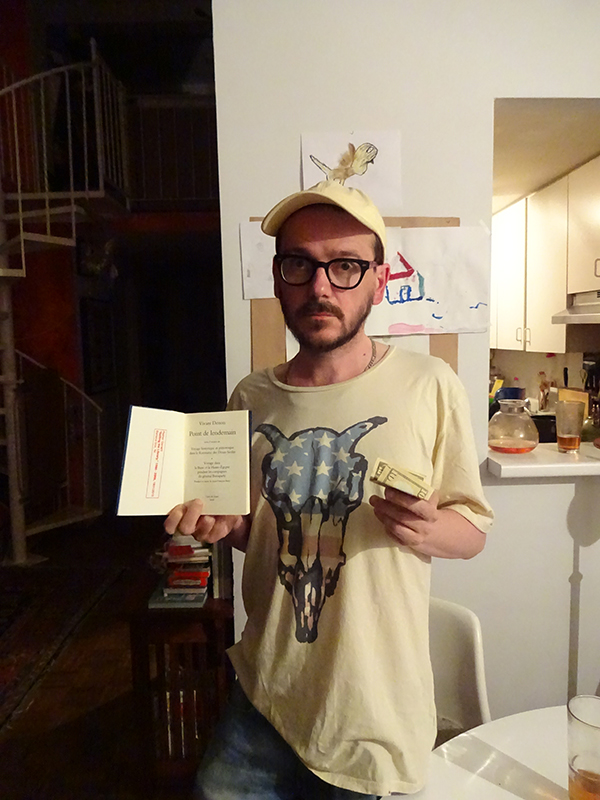
Siggi Hofer, New York June 2015
- bought Vivant Denon, Point de lendemain,
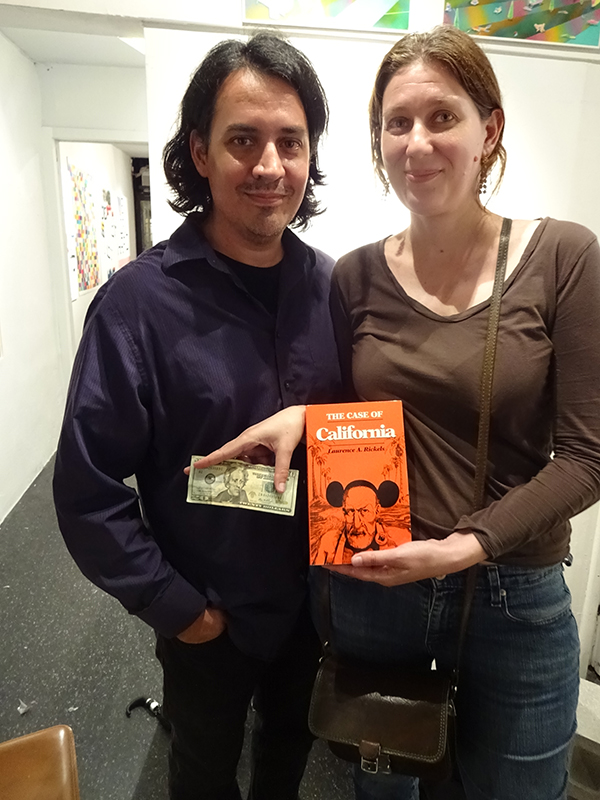
Zoe Pettijohn, New York, May 2015
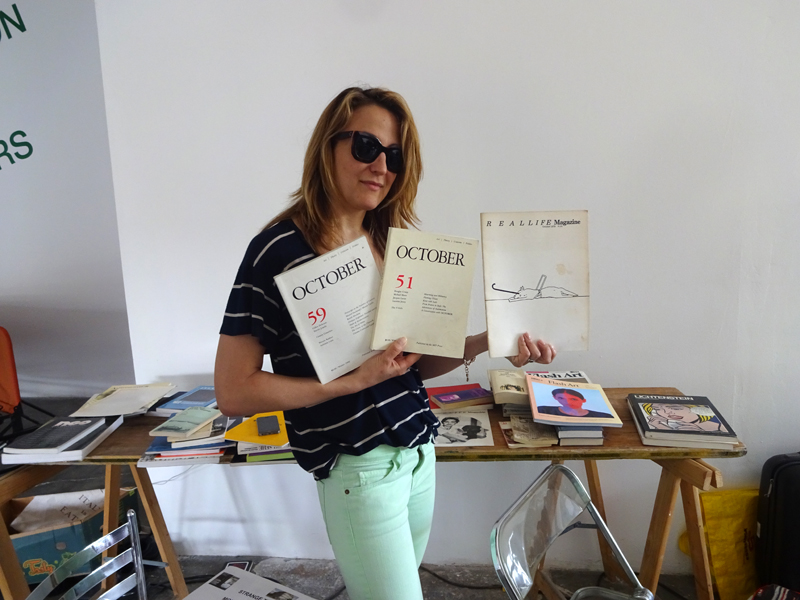
Gea Politi, Armada, Milan
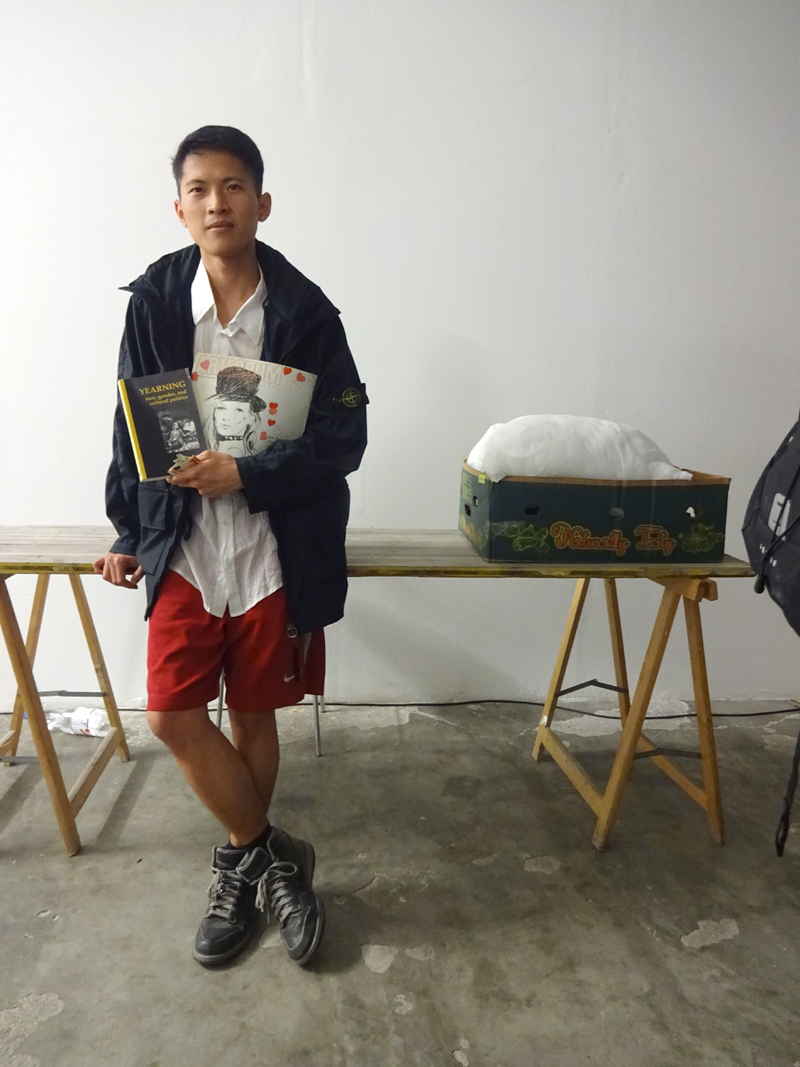
Enzo Camacho, Armada Milan
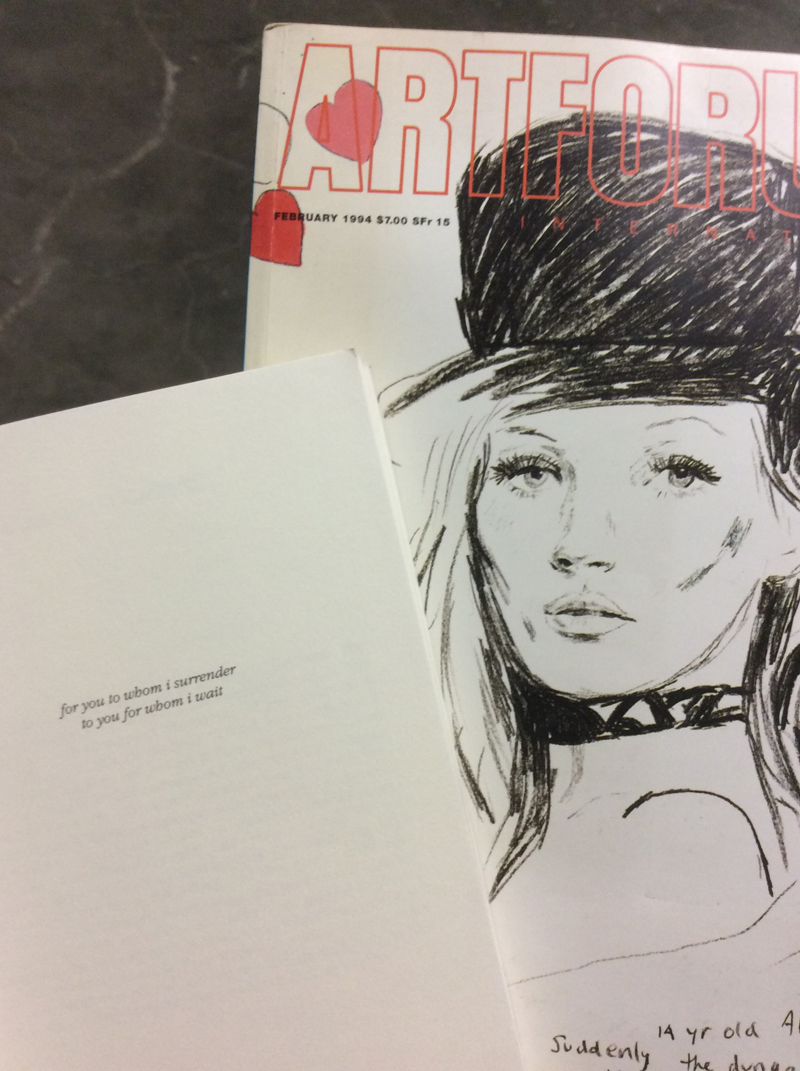
Andrea Romano, Armada, Milan May 2015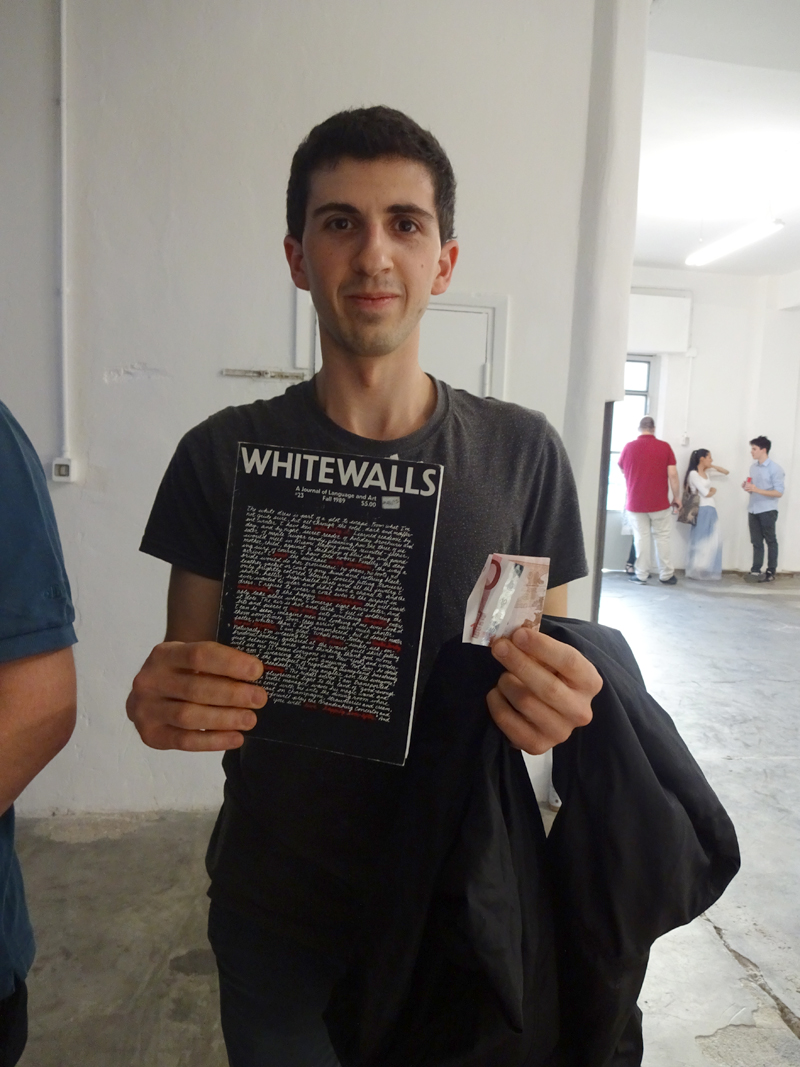
Lodovico Pignatti-Morano, Armada, Milan May 2015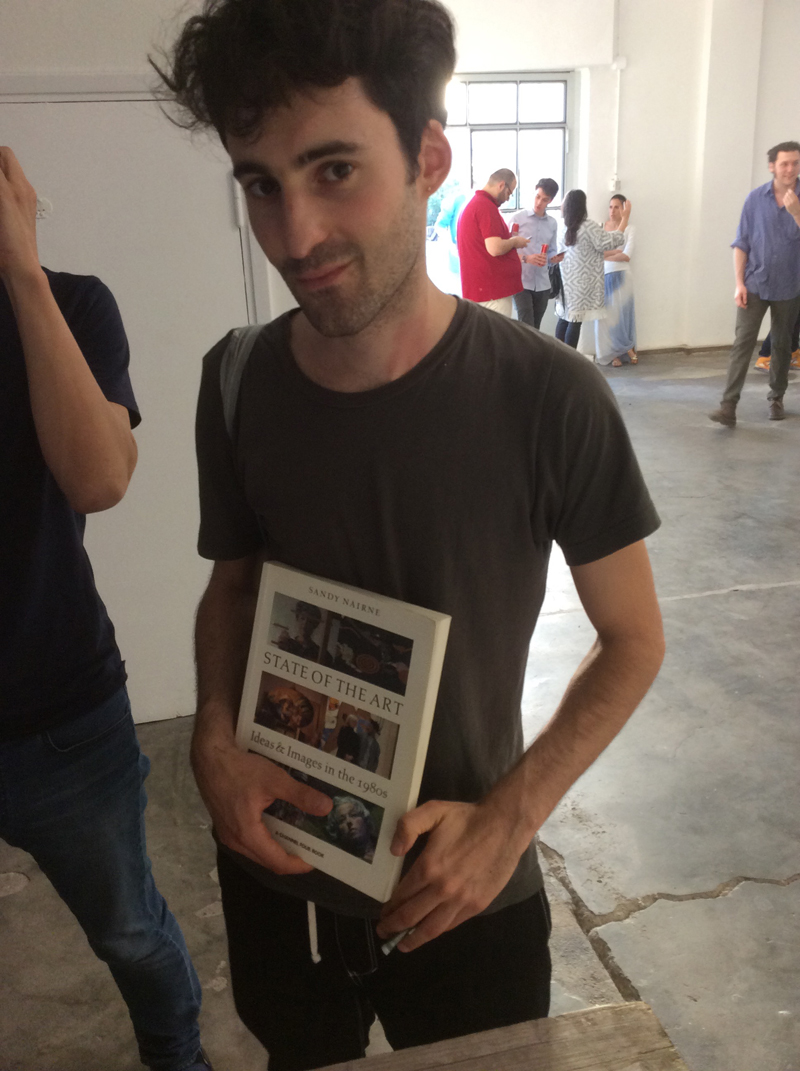
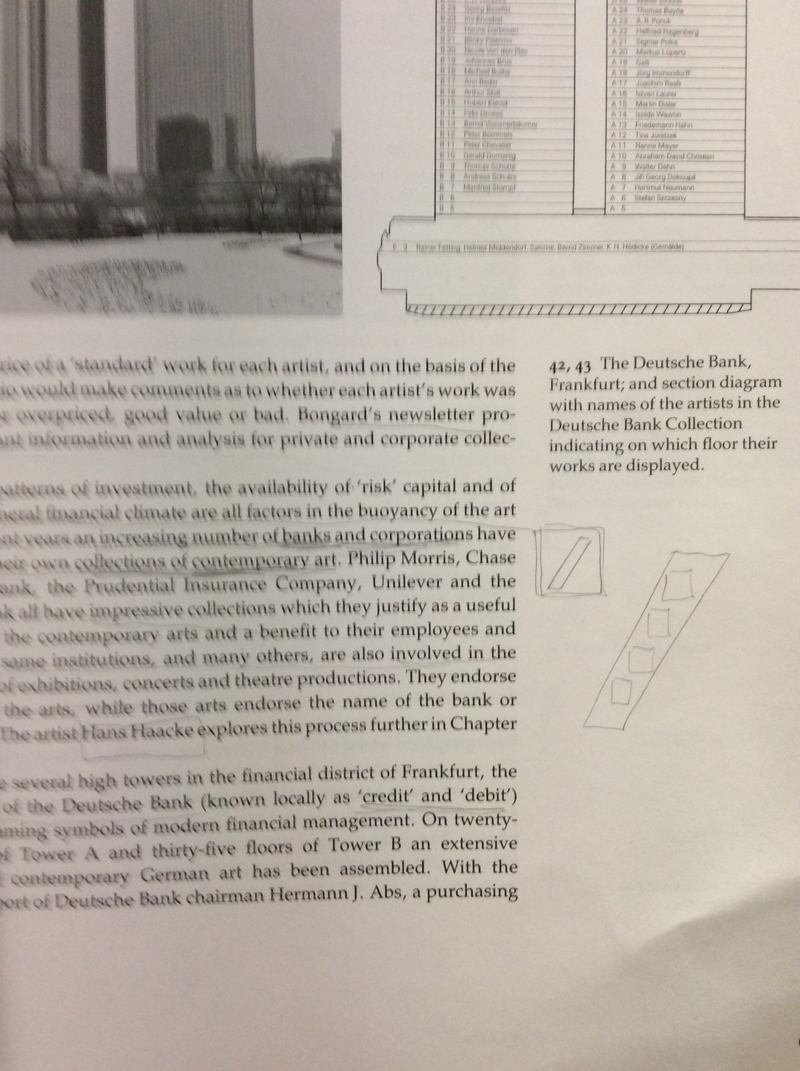
Amy Lien, Armada, Milan May 2015
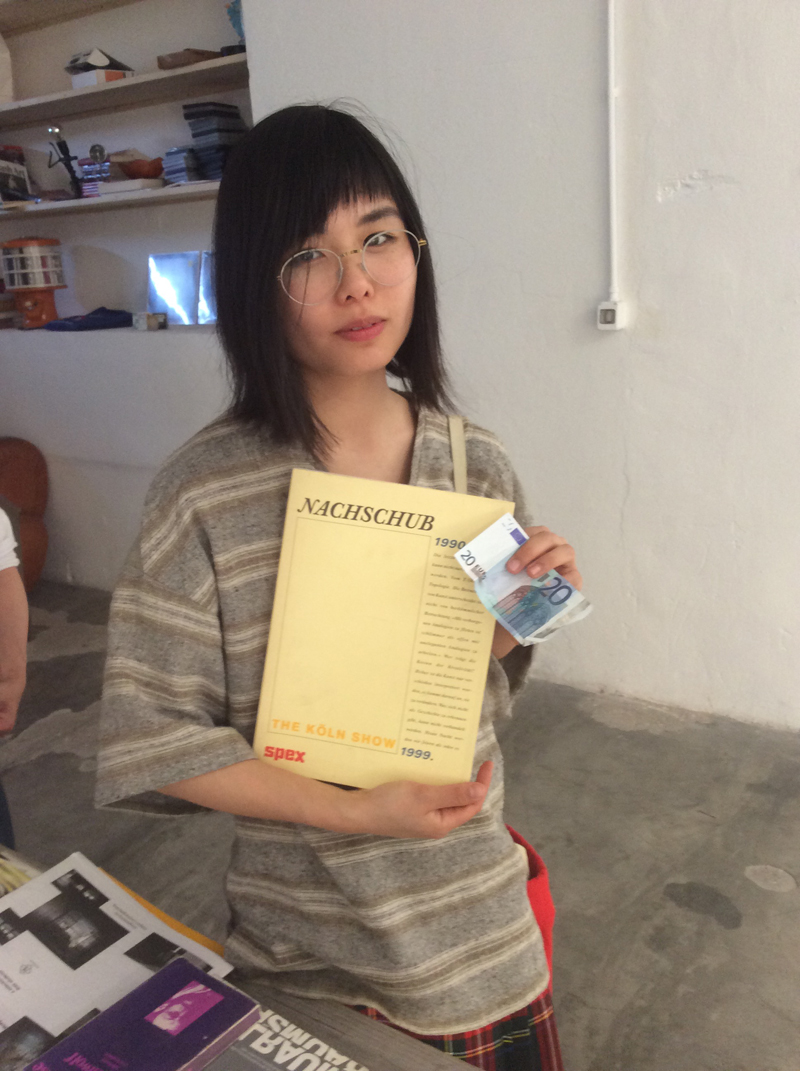
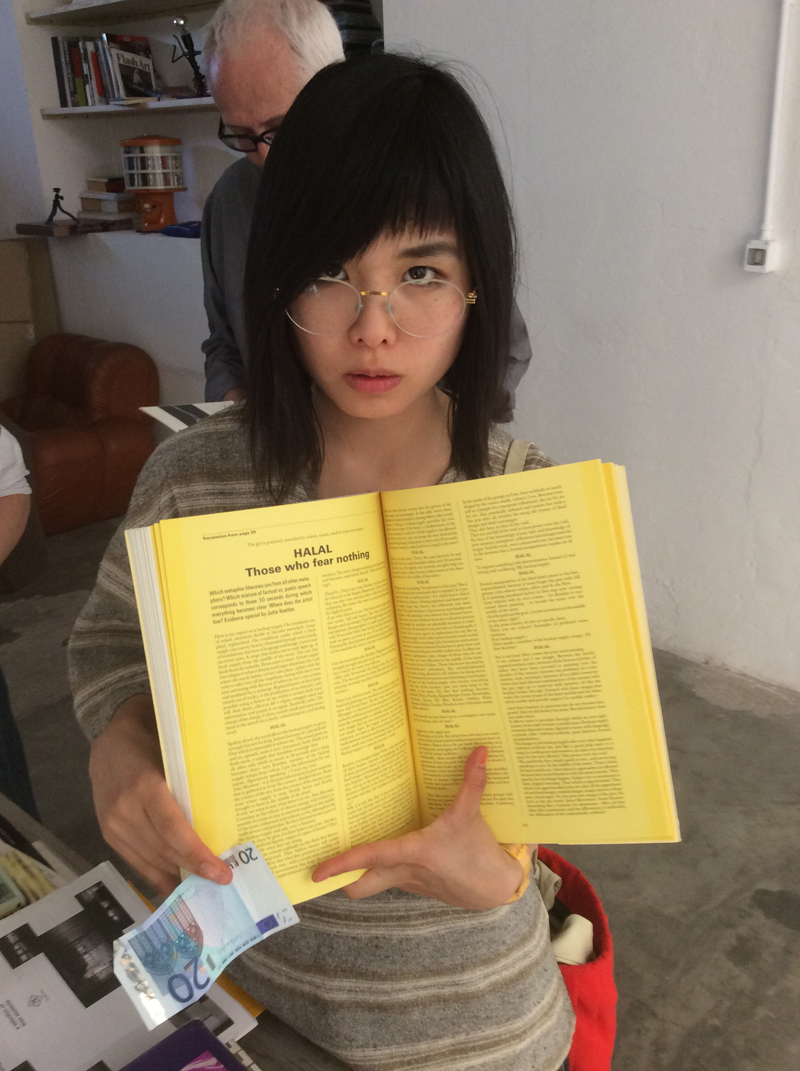
Ken Okiishi, Armada, Milan May 2015
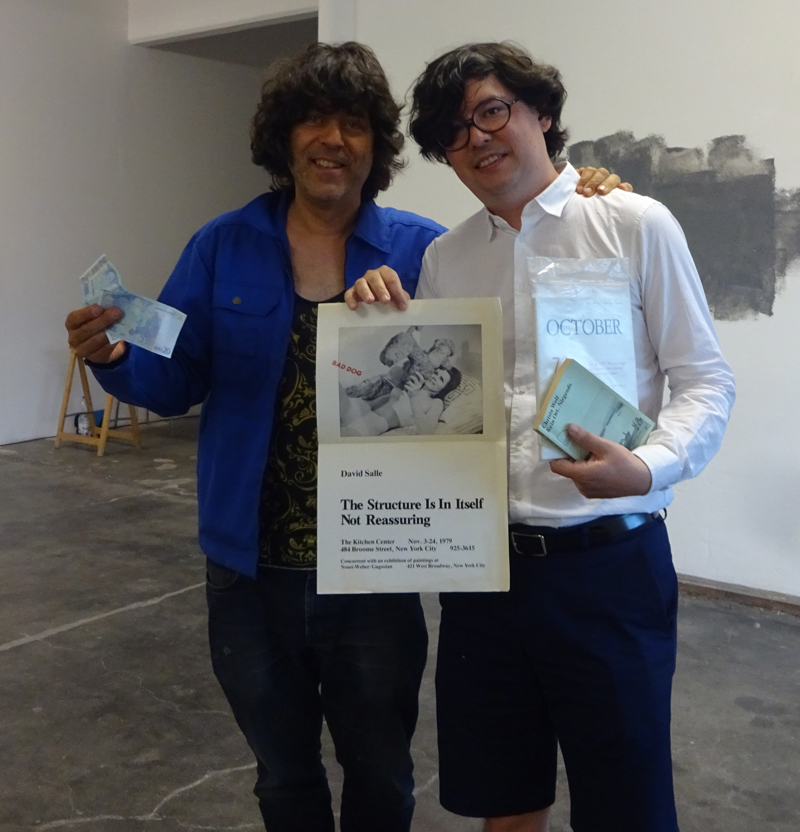
Tan Cheng, Armada Milan
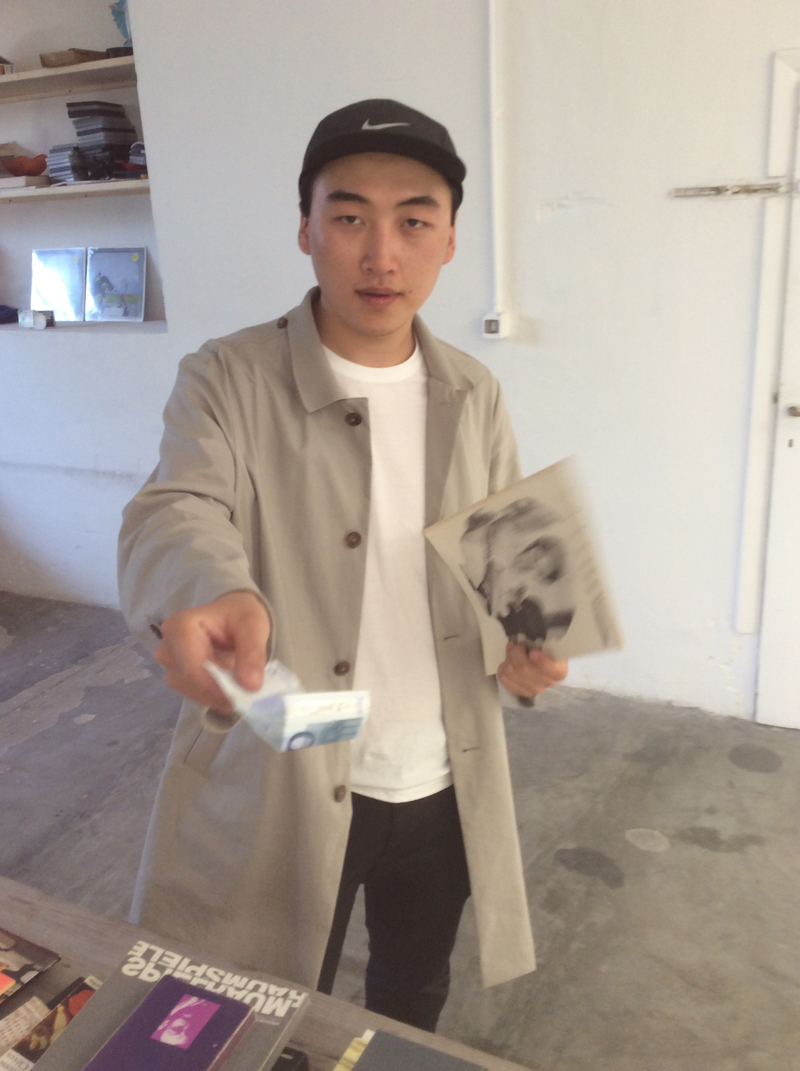
Florian Model, Armada, Milan
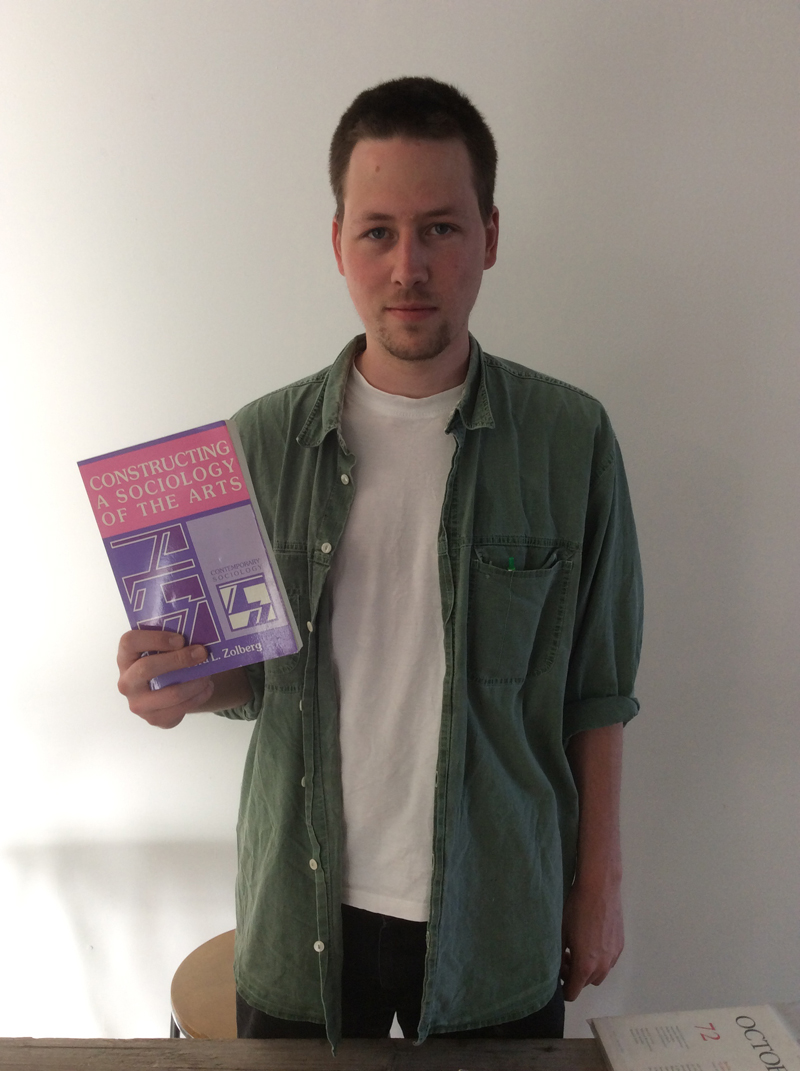
anna schwehr
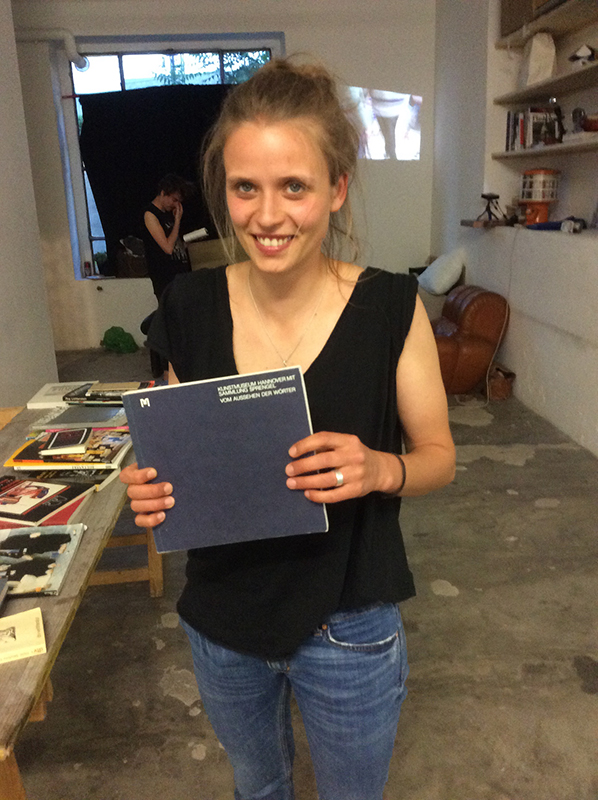
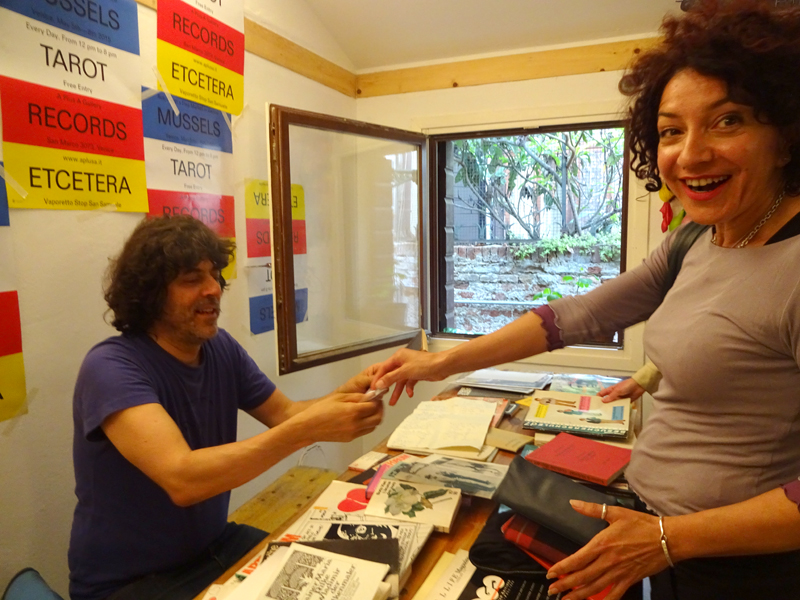
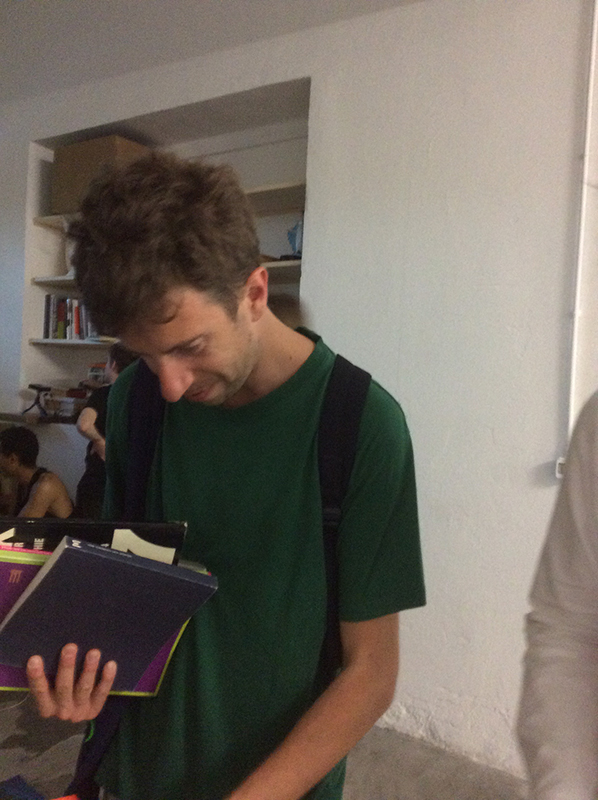
Stefano Cernuschi, shopping here. Armada Milan
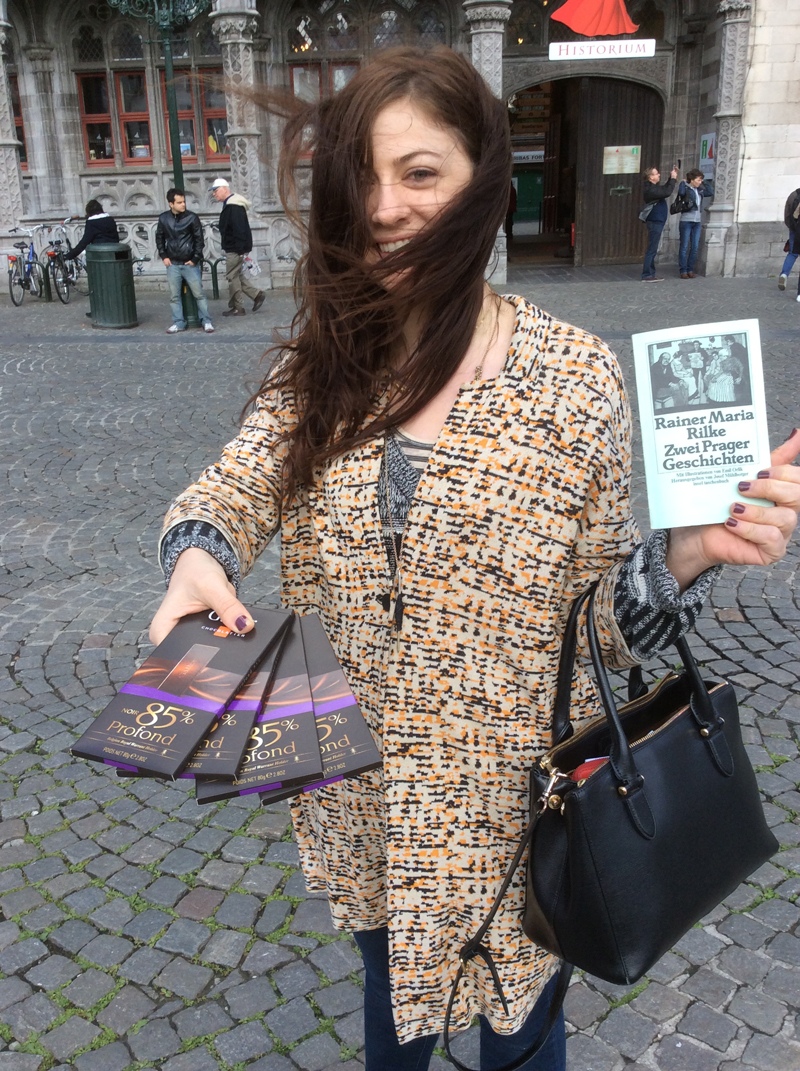
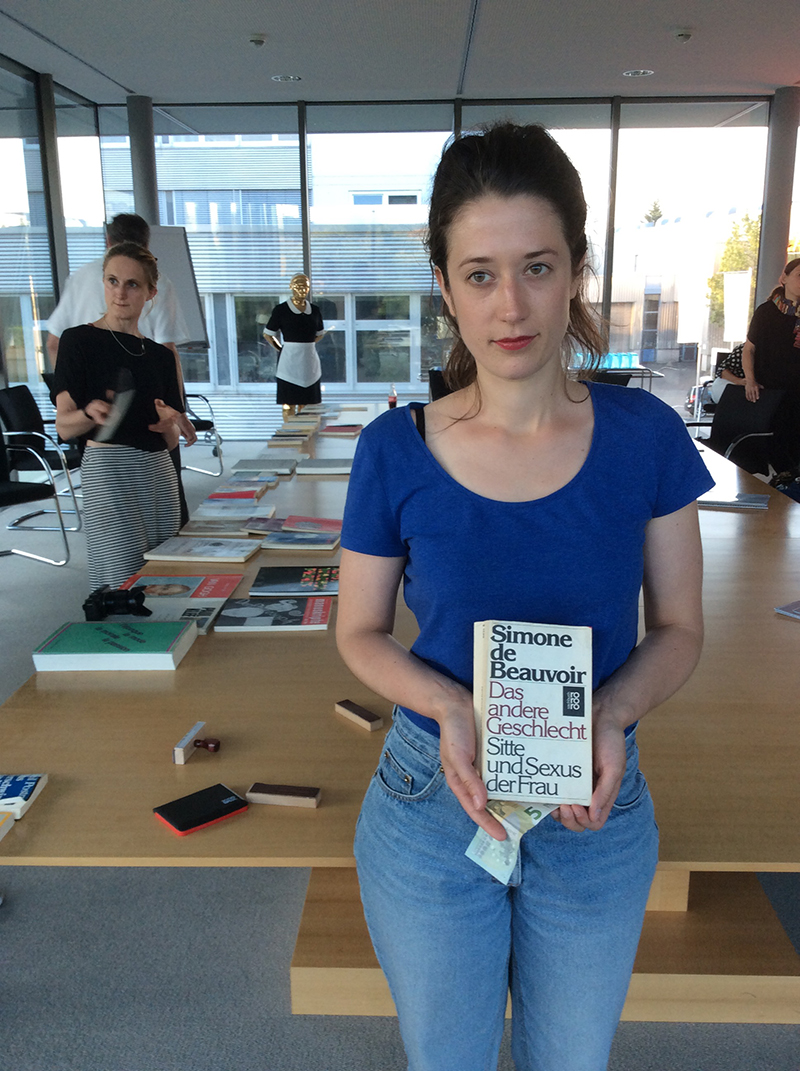
verena sprich at froehlich collection, stuttgart
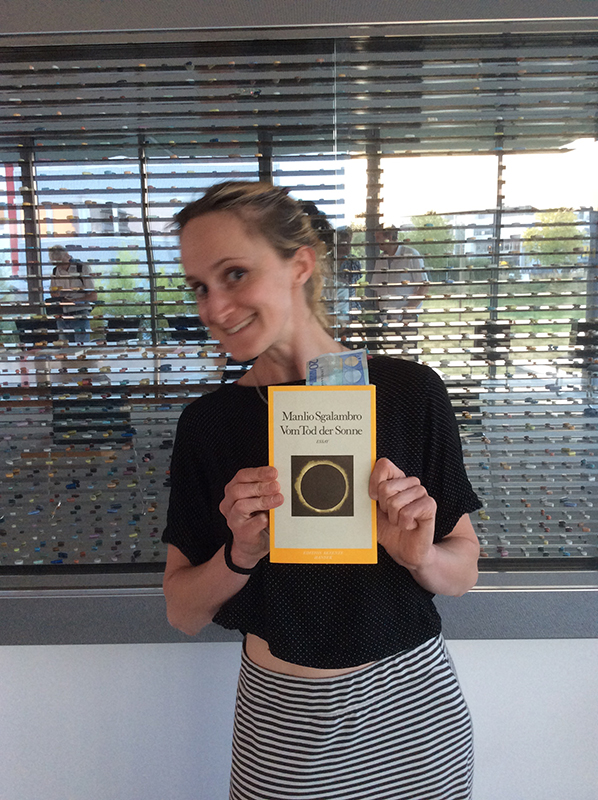
Liv Schwenk at Frohlich Collection, Stuttgart, July 2015
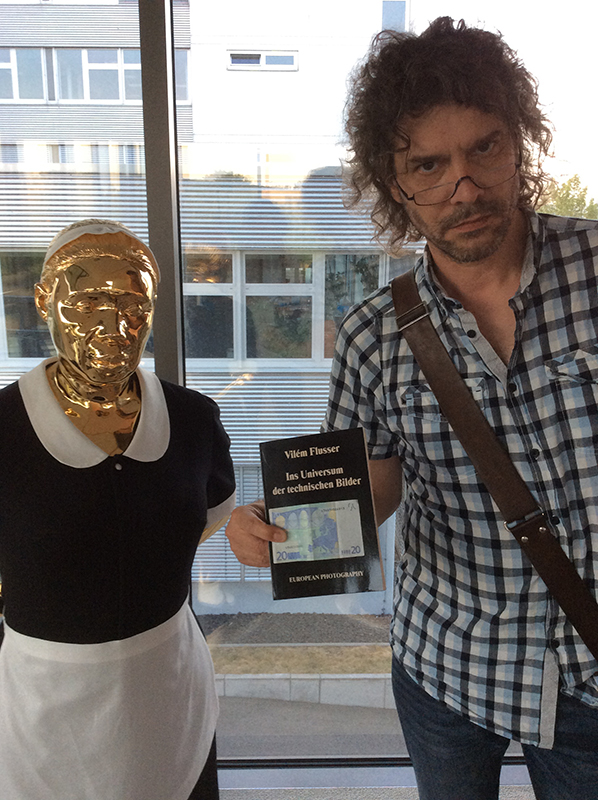
Josh von Staudach at froehlich sammlung
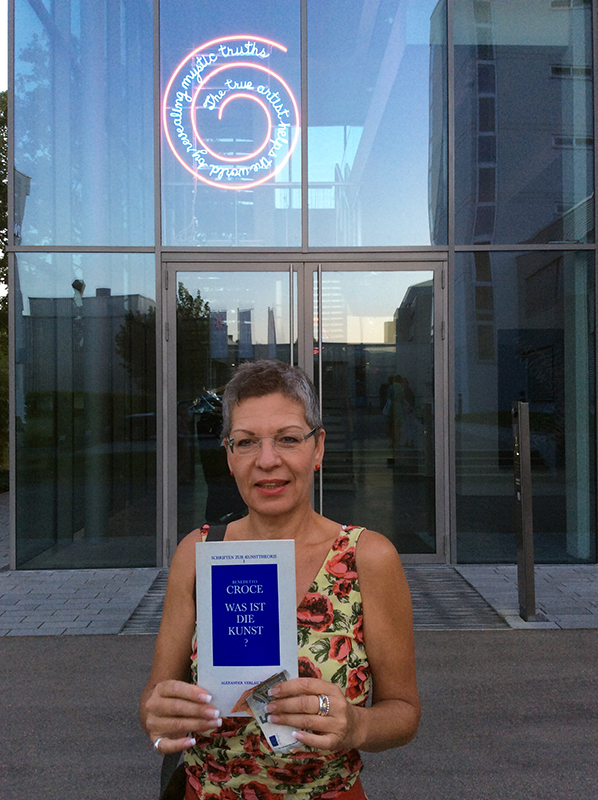
Ruth at Frohlich Collection, Stuttgart, July 2015
MY VERY VERY first in Venice
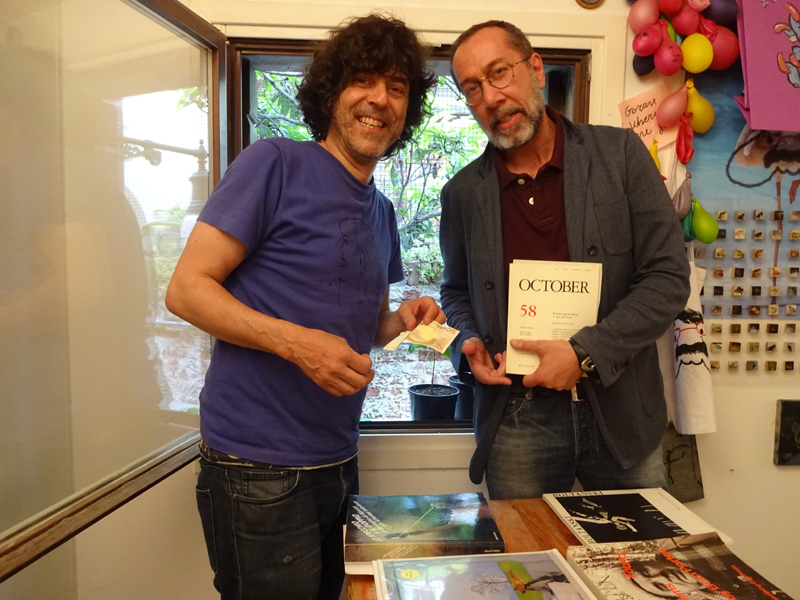
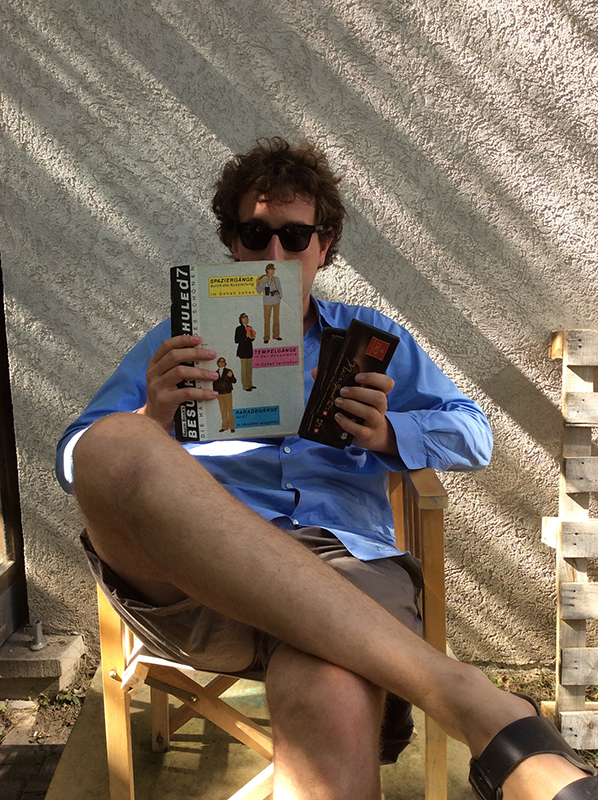
Arthur Fink, Stuttgart - against chocolate HE BRAOUCHT from switzerland
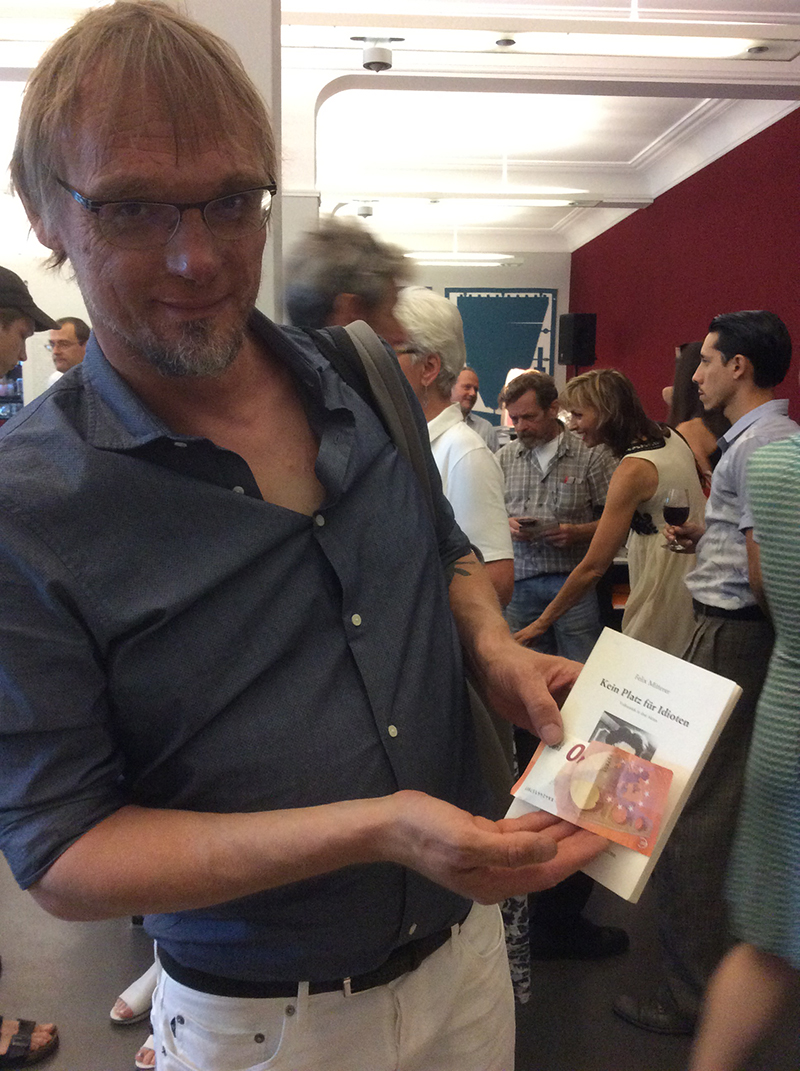
Felix Ensslin, Badener Kunstverein, Baden-Baden, July 2014
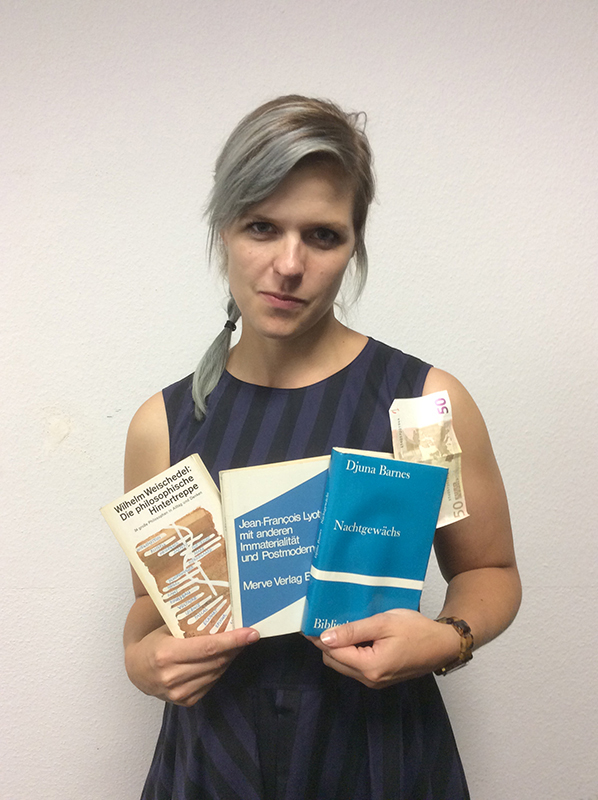
Sara Dahme at Palermo Stuttgart, July 2015
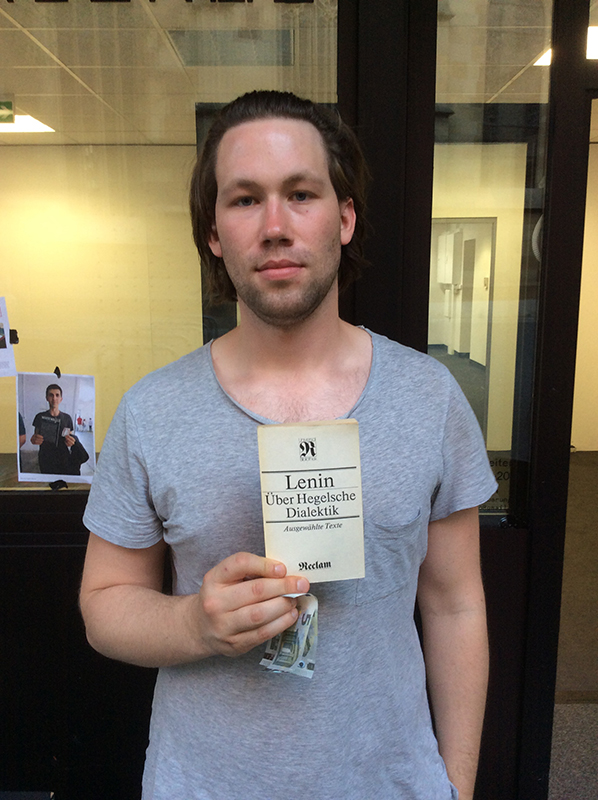
Björn Köhn at Palermo Stuttgart, July 2015
Hannah Wohl
Robert McKenzie - he is into monographies
Riley Spencer
and many more...
 first stamp with small mistake...
first stamp with small mistake...
more MARKET PLACES:
Spike, BERLIN JULY 2015
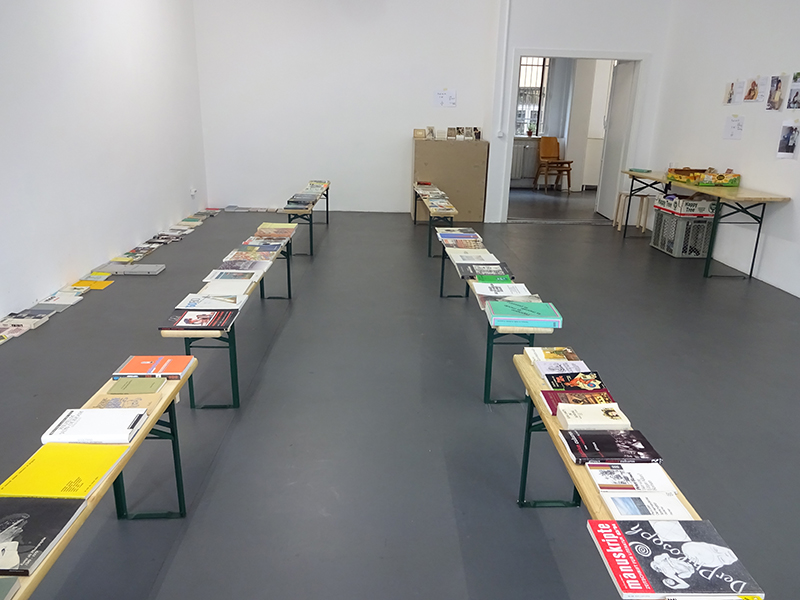
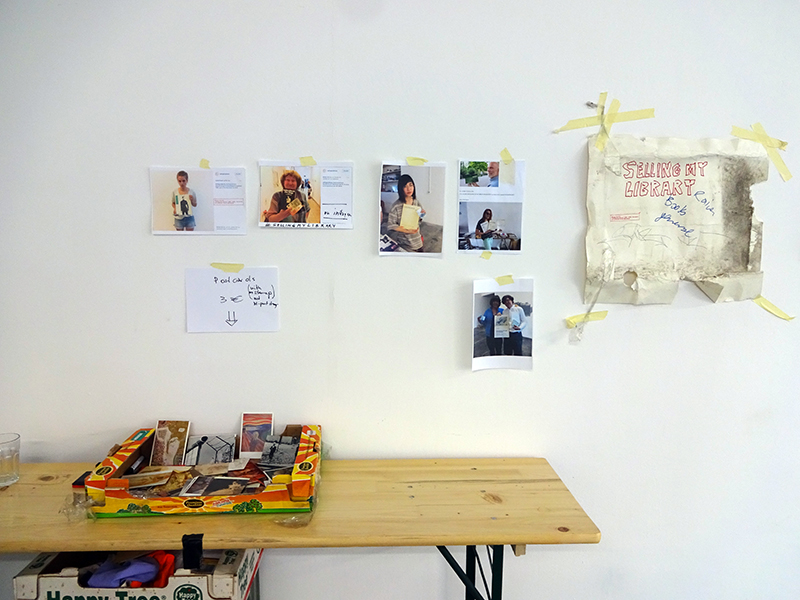
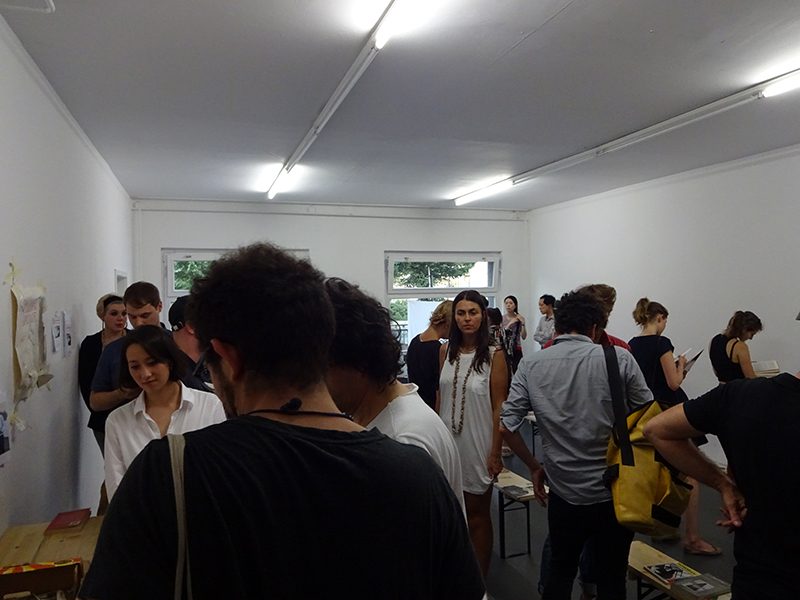
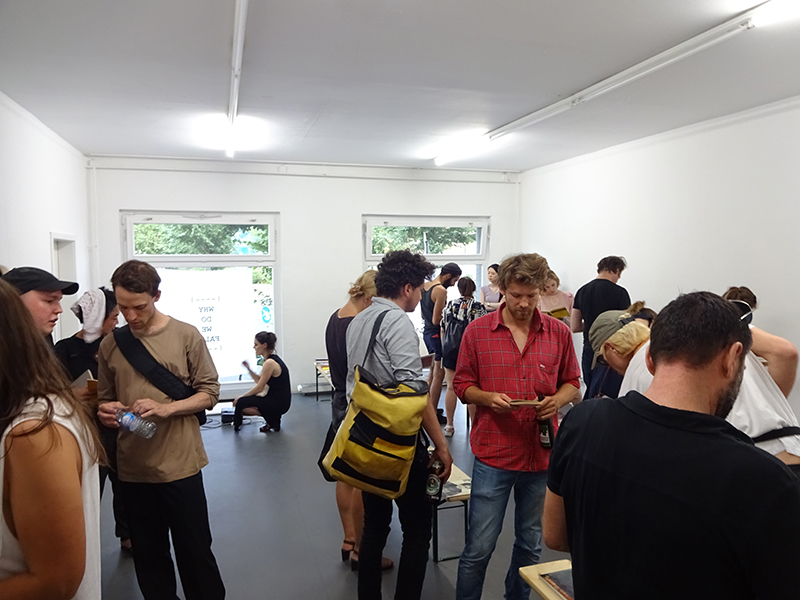
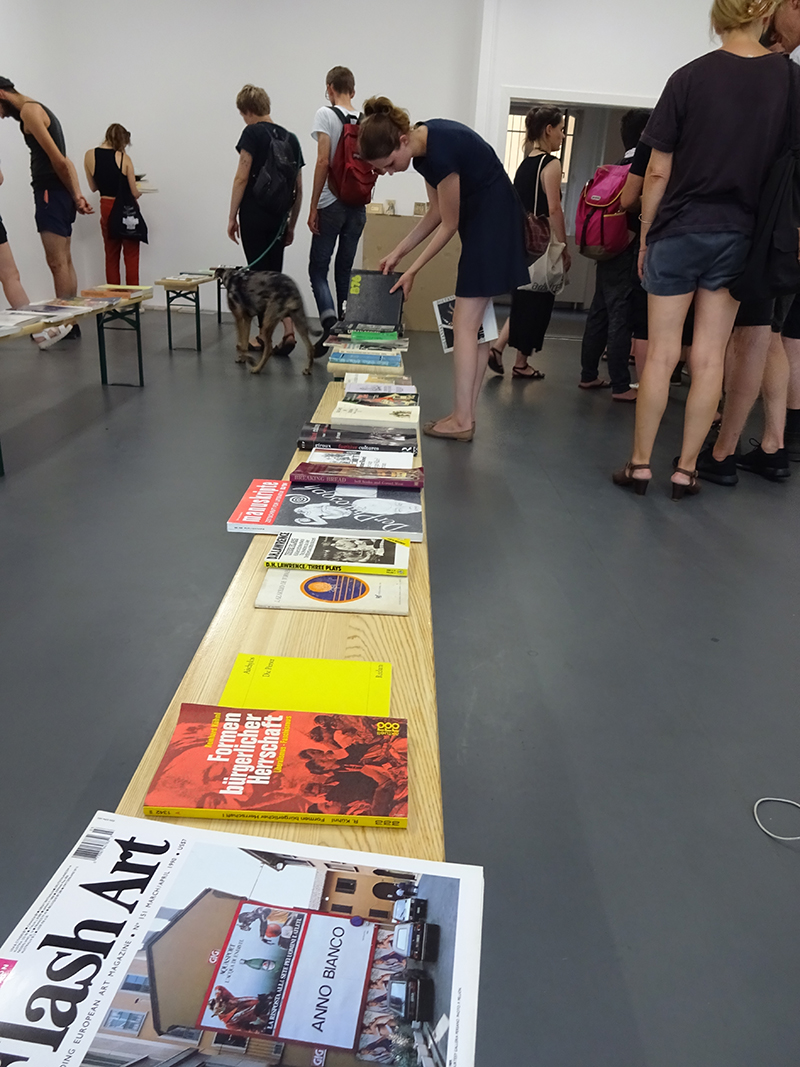
ROB PRUITTS FLEA MARKET, Venice, May 5th – 8th 2015 (Biennial opening week)
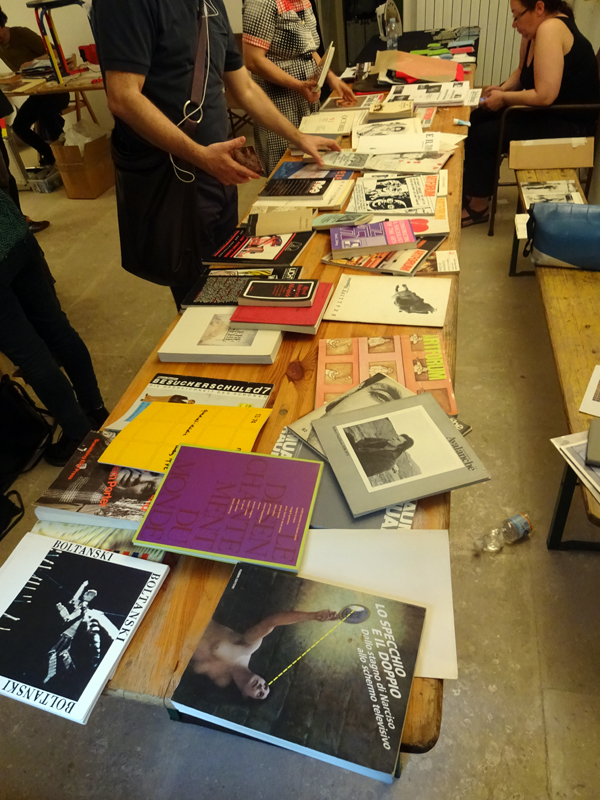
HERE A LITTEL REVIEW IN ARTNEWSPAPER
MARKET PLACE - MILANO, Armada, May 2015
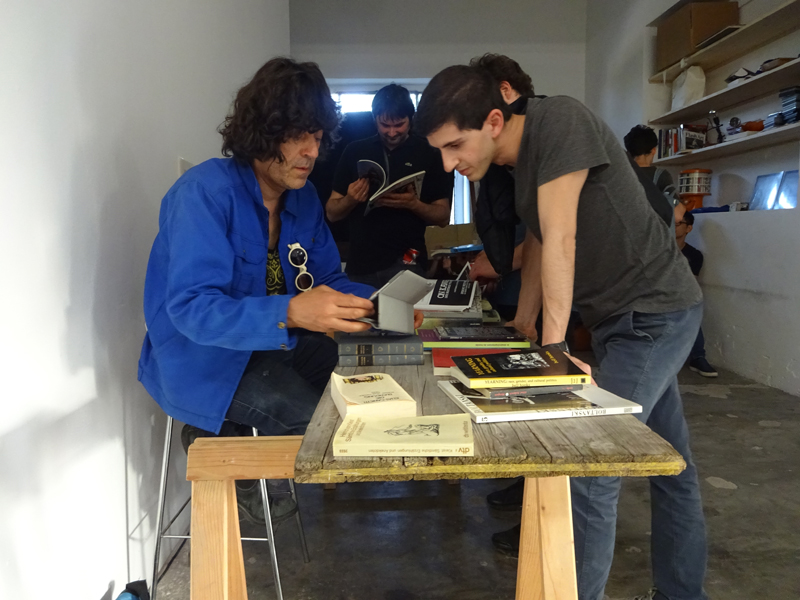
Palermo, Stuttgart, July 2015
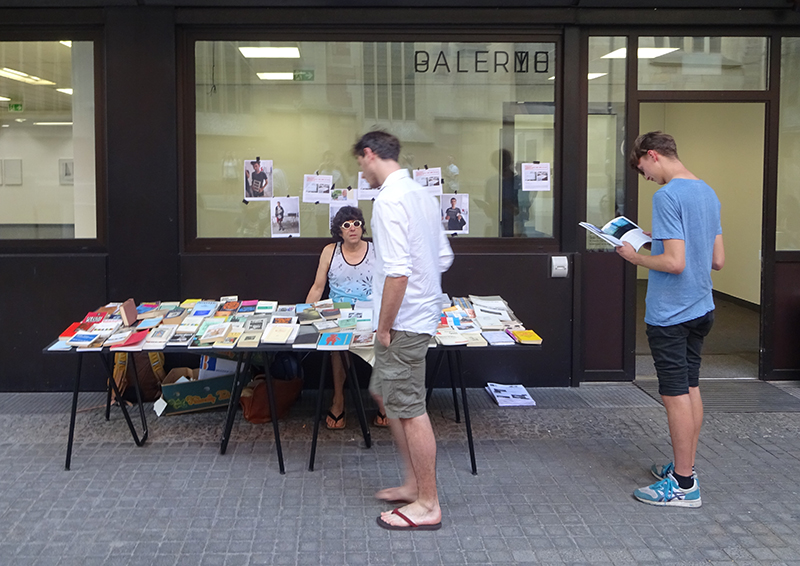
Collection Froehlich, Stuttgart, July 2015
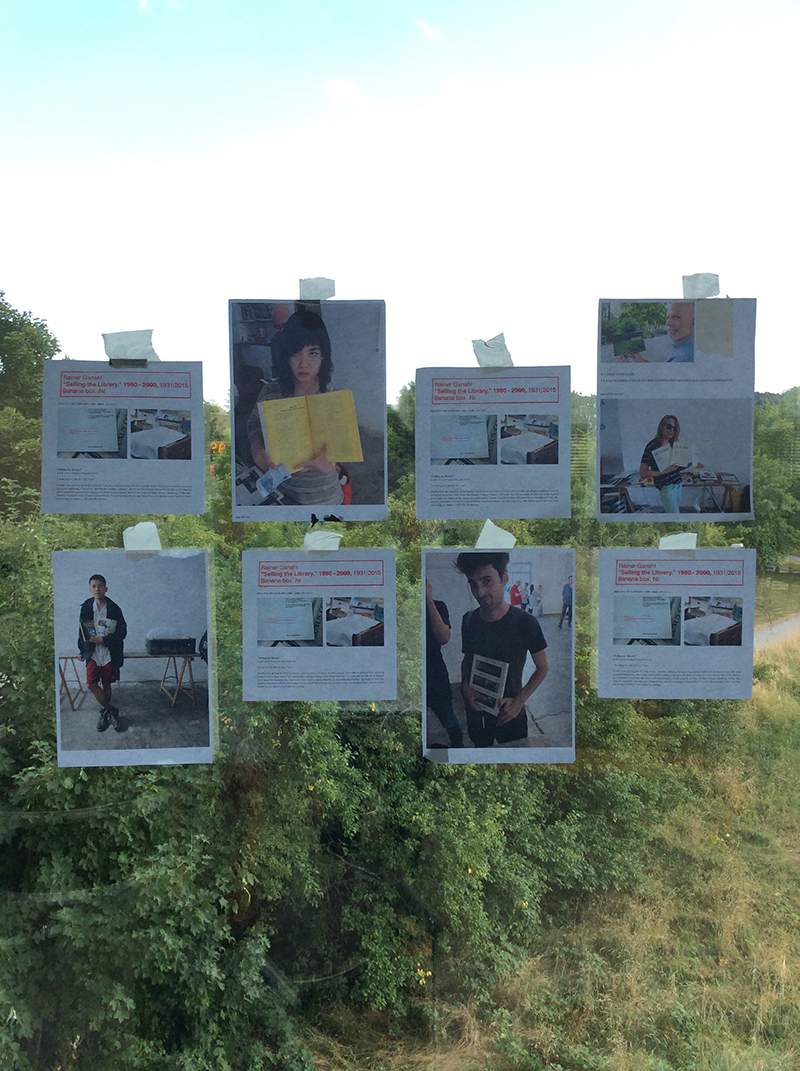
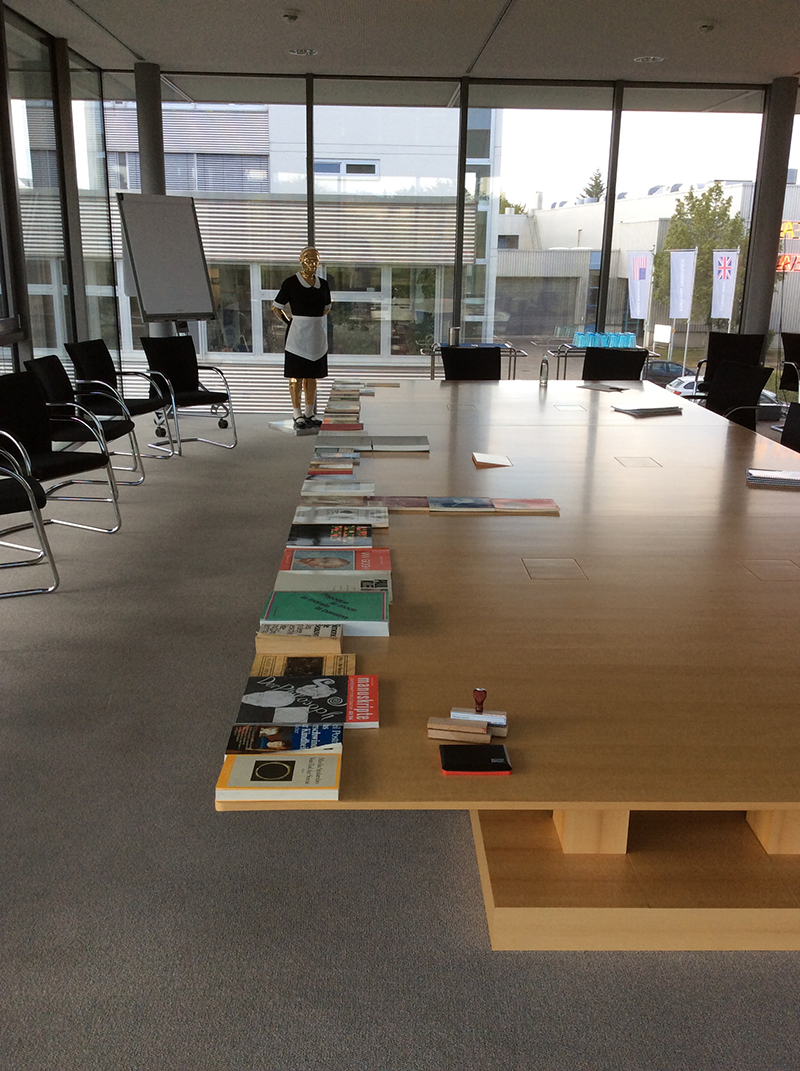
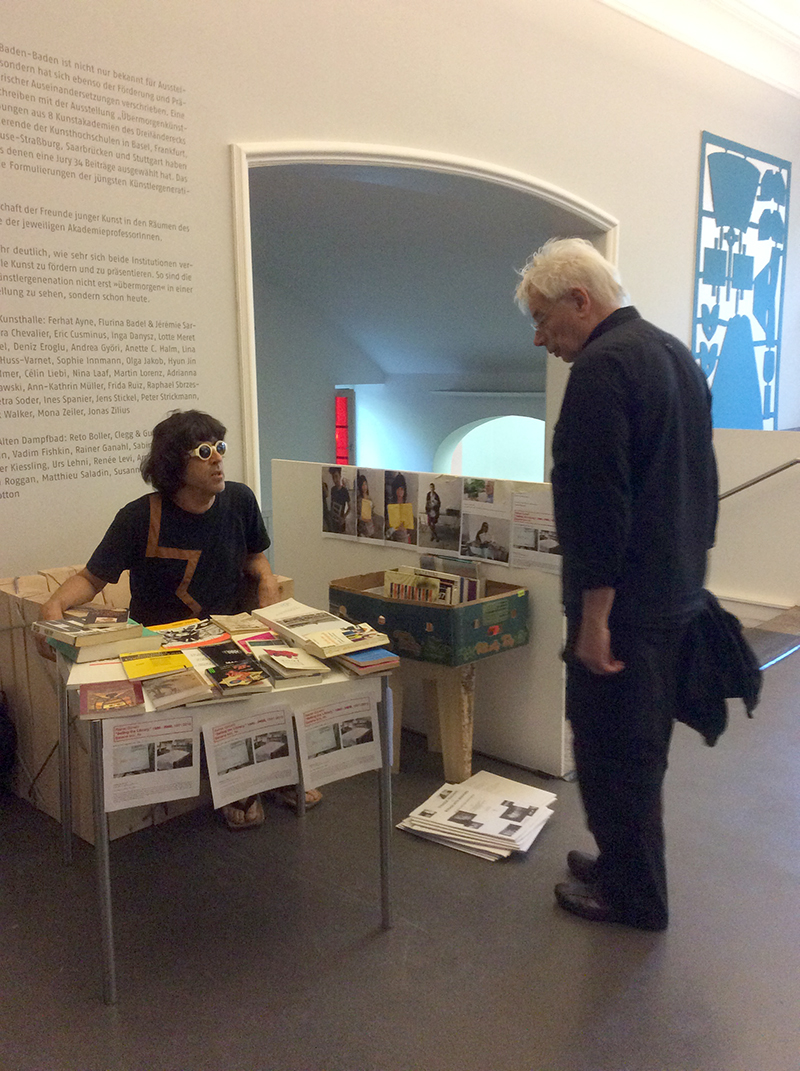
Baden-Baden, Kunsthalle Baden-Baden, June 2015
Neue Stuttgarter Kunstverein, Stuttgart
SPIKE MAGAZINE PROJECT, Berlin, 2015
STUFF TO BE FOUND IN THE BOOKS:
below find two more examples from that period with stuff inside: an invoice from a LA book seller, where i bought this book, fluxus-codex 95 $ minus 10 plus tax (currently - the same is offered on ebay by somebody for 265 $)
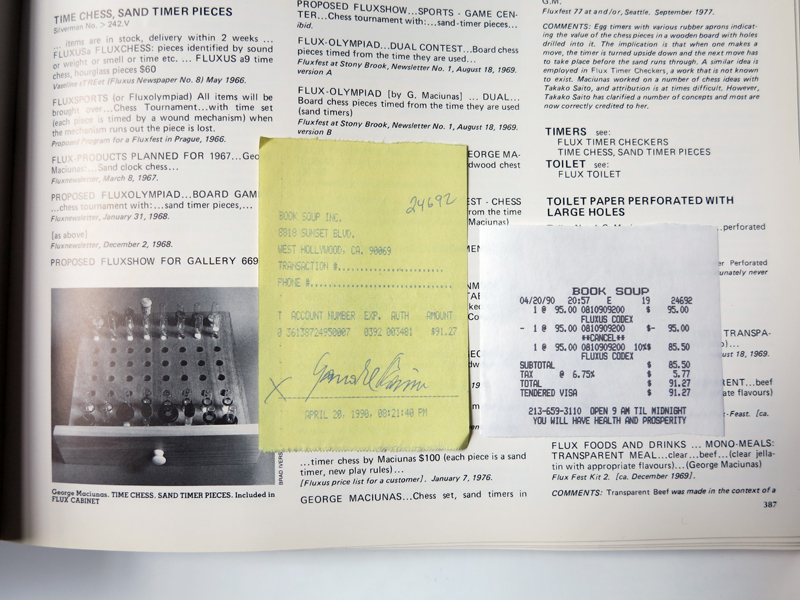
here.. in this volume - I found a photograph of my girl friend of the time, (second part of 1980s with cars of the period in the back - which really gives you an idea how old it is)
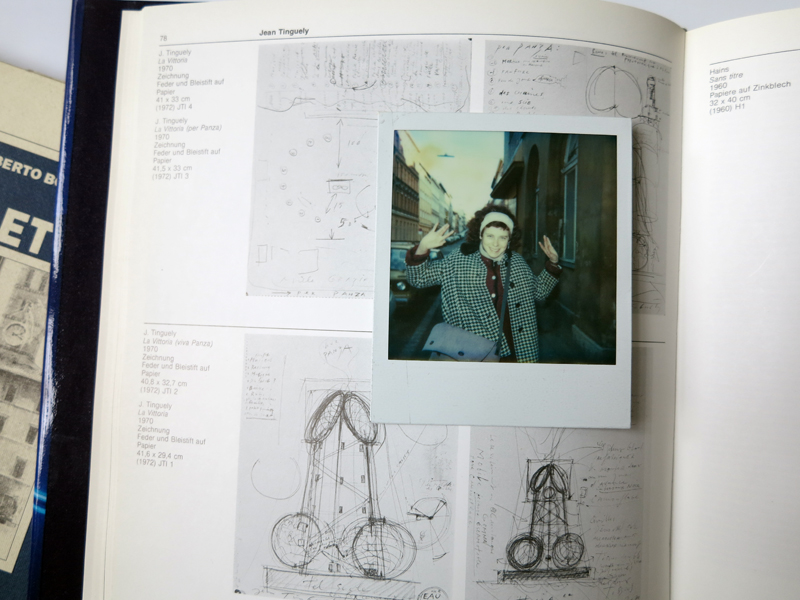
A TINY NUMBER OF BOOKS PULLED OUT FROM THE FRIST BOX ... plus
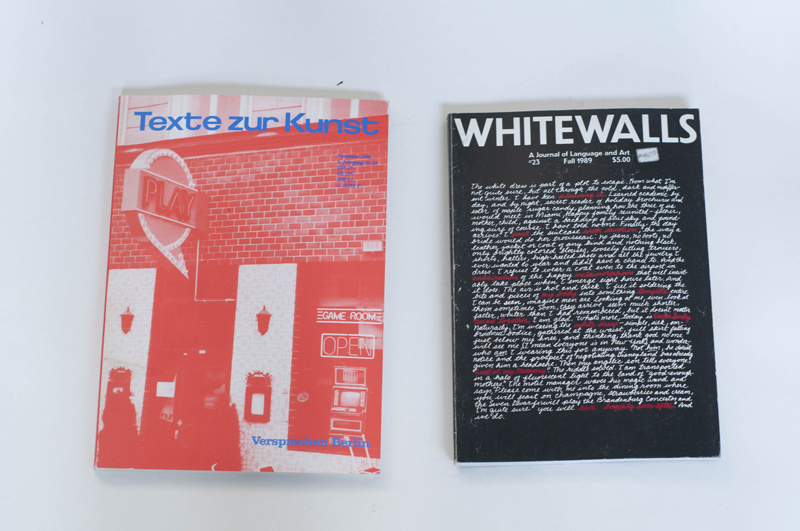
texte zur Kunst :
Whitewalls: sold
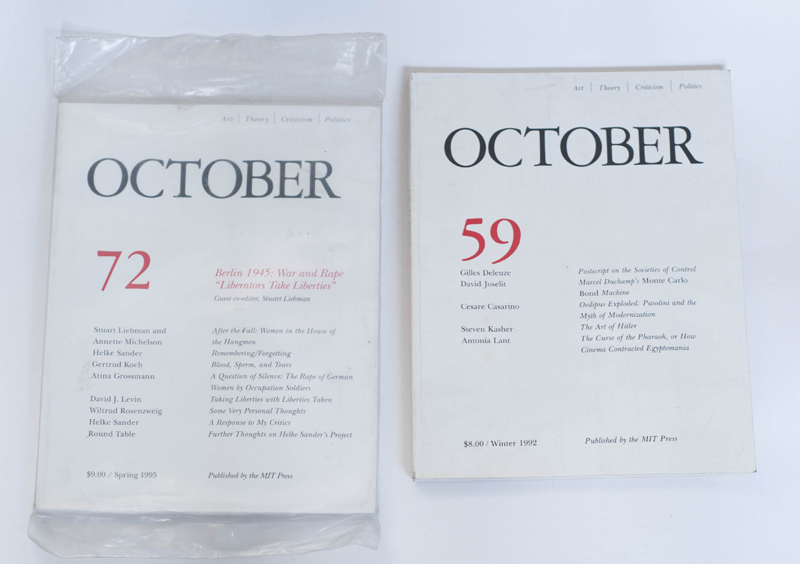
October, issue 72, 1995, liberators take liberties, neu, , Ken Okiishi
October, issue 59, 1992, with Deleuze, Joselit etc. ,
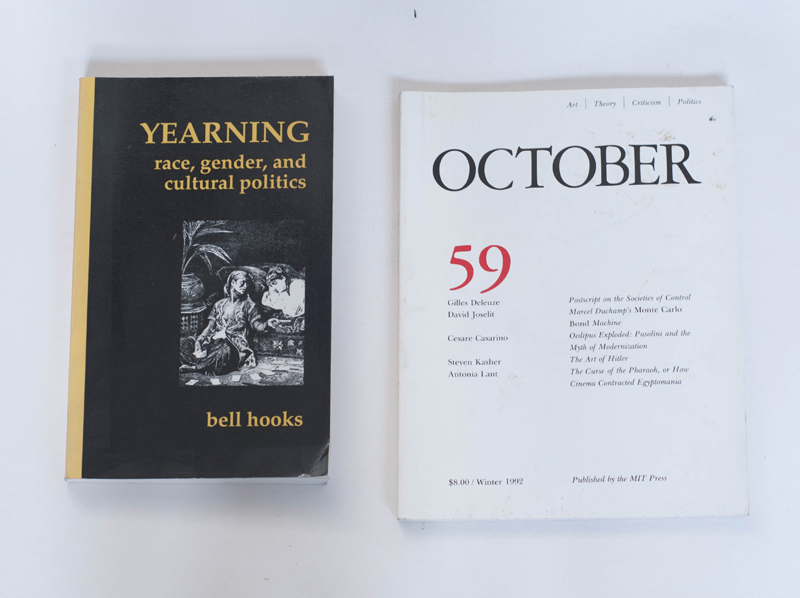
Bell Hooks, Yearnings,----sold - enzo camacho
October - gea politi
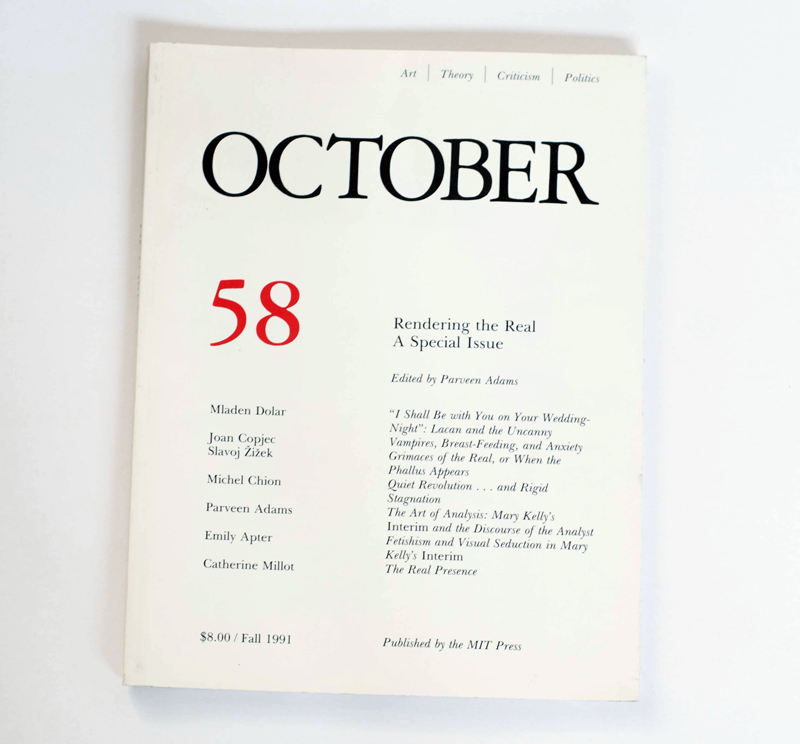
October, issue 58, 1991, with Apter, Millot, Dolar, edited by Parven Adams, Vamires, Mary Kelly s
INtermim,- sold
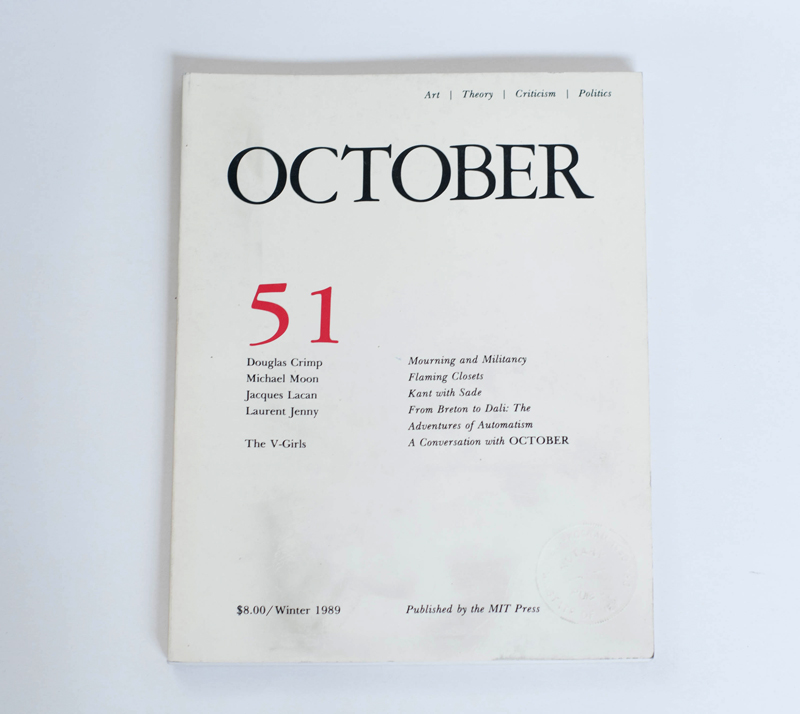
October, issue 51, 1991, with Douglas Crimp, Jacques Lacno V-girls, - sold - Gea Politi
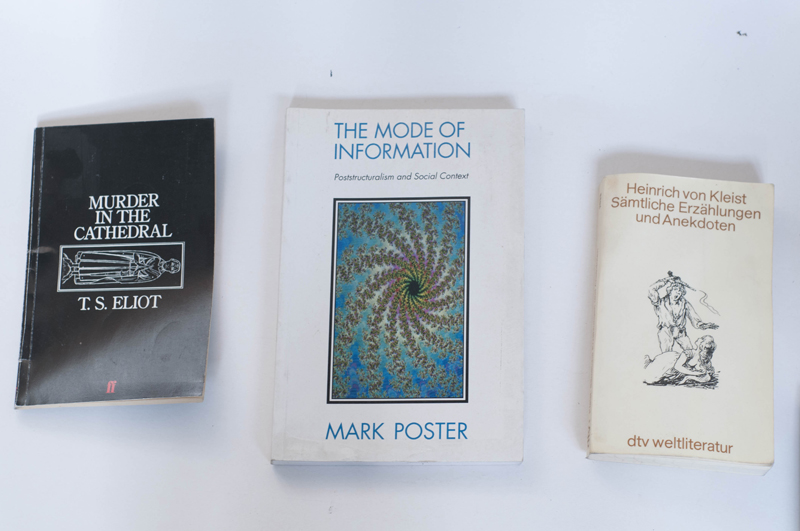
T. S. Eliot, 5 euros
mark poster,
heinrich von kleist, 20euros
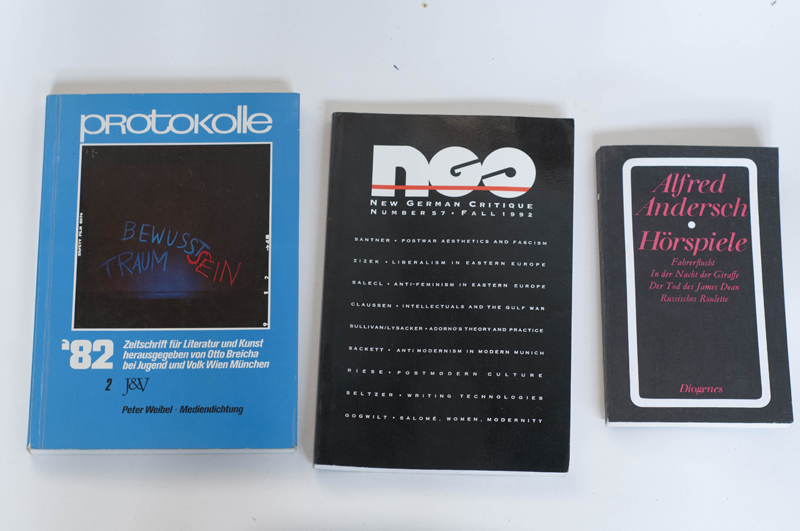
protokokille. sold, Japanese Lady from Milan
neo new gemran critique.. 1992, sold, Andrea Romano
Alfred Andersch, Hoerspiele,
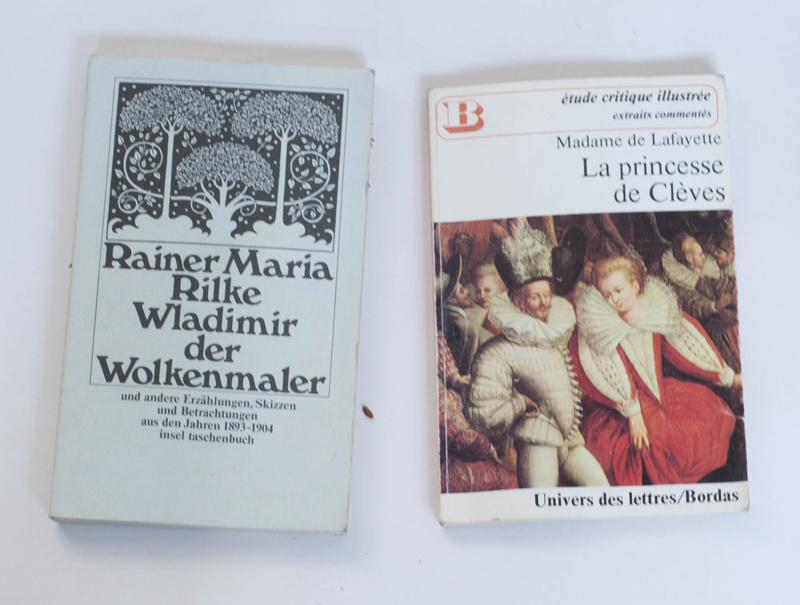
Rainer Maria Rilke, Wladimir der Wolkenmaler - sorry sold
La princess de cleve, - sold
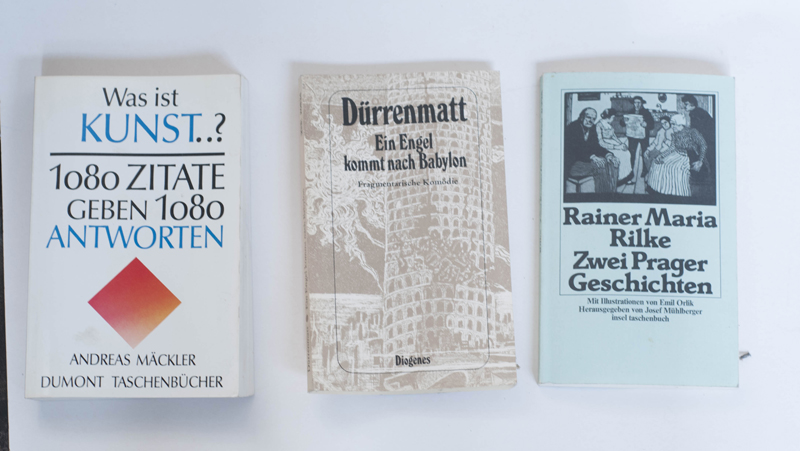
was istm kunst -
duerrenmatt - ein engel -
rainer m rilke, 2 prager gersch --- sold, Rachel Corbett
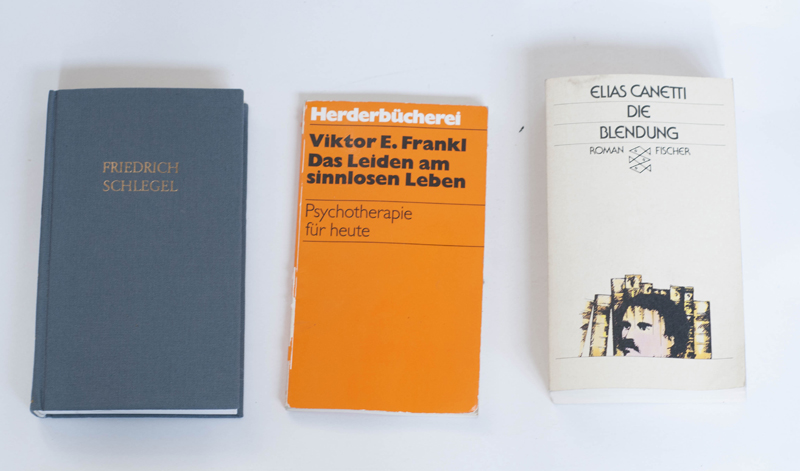
sclegel - sold
frankl
elias casnetti -
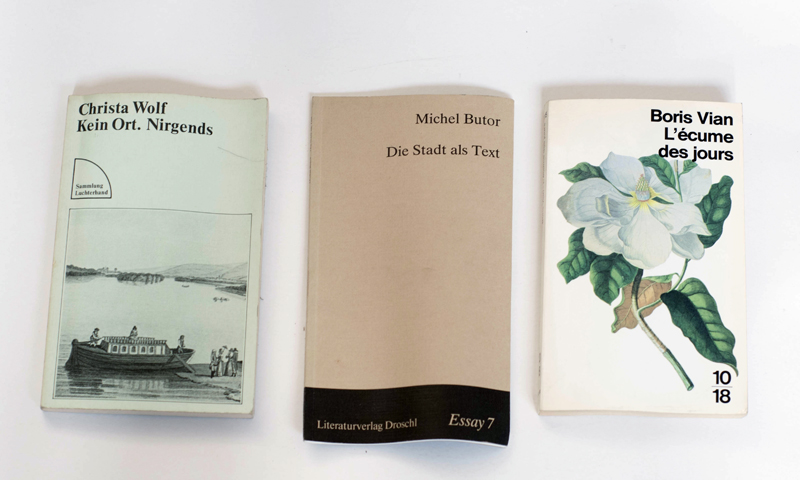
wolf,
botor die stadt als text -
boris vian - sold
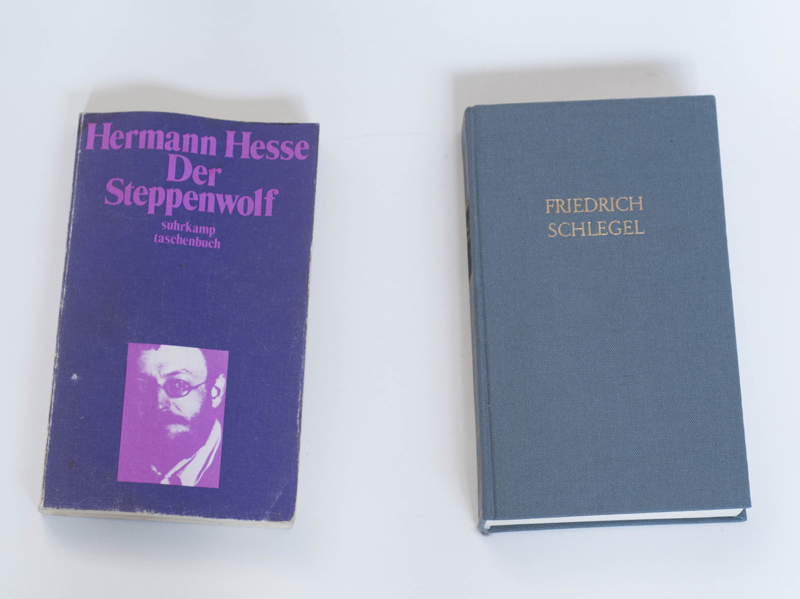
hesse, der steppenwolf -
schlegel ,
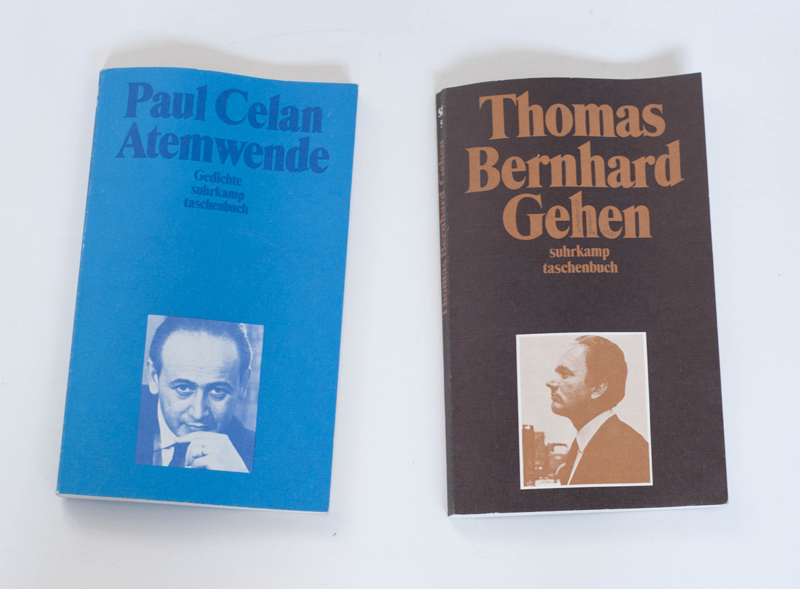
celan, atemwende
thomas bernhard. gehen
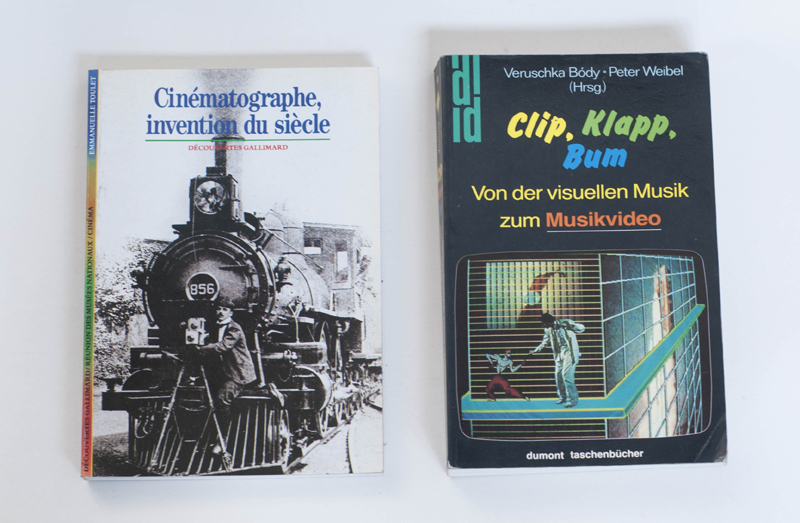
cinematographe ..
clip klapp bum -
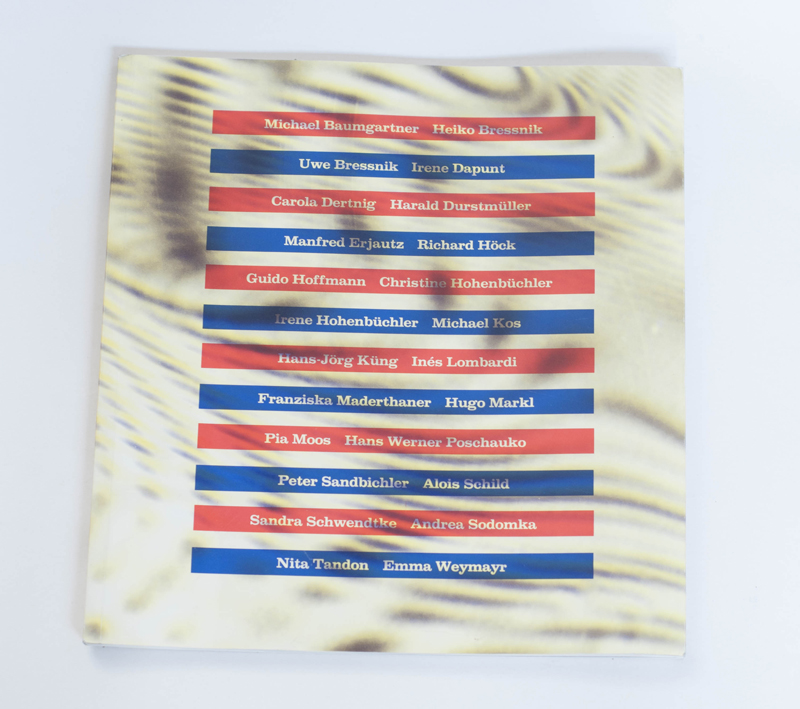
blue, red...
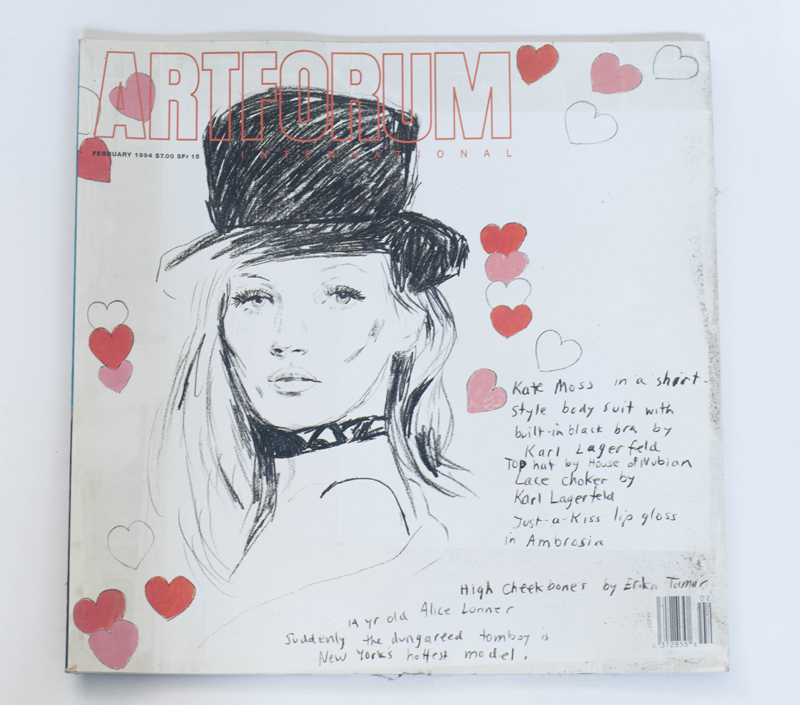
artforum 1994, sold - Enzo Camacho
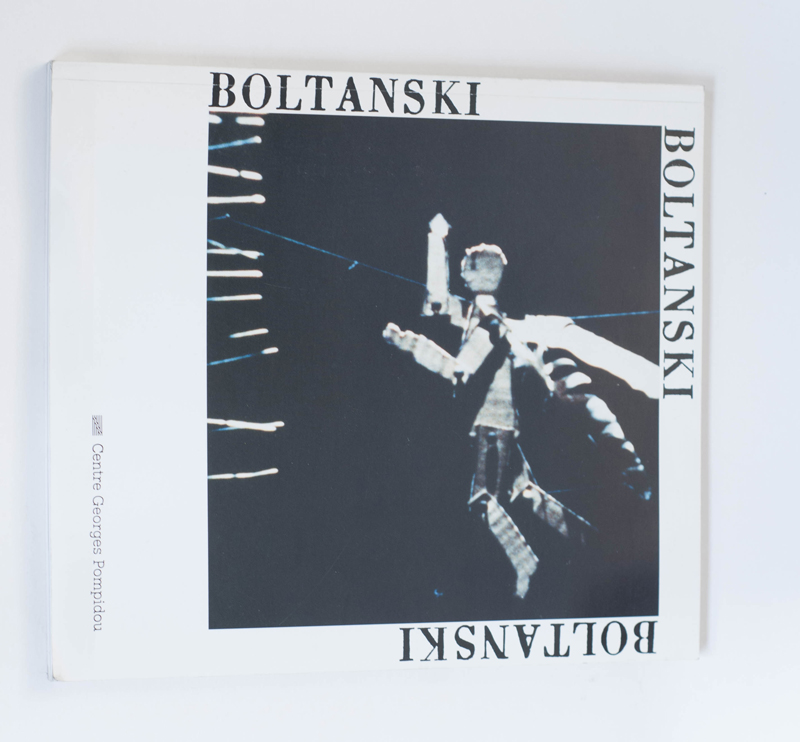
boltanski
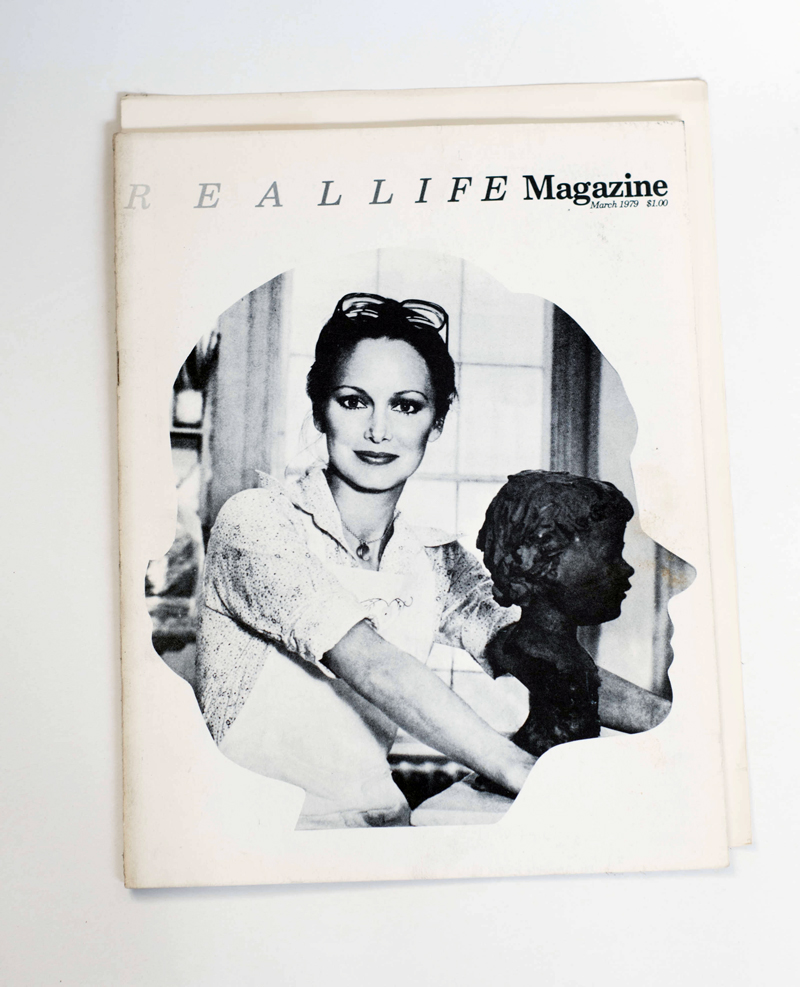
real life magazine 1979 , - sold
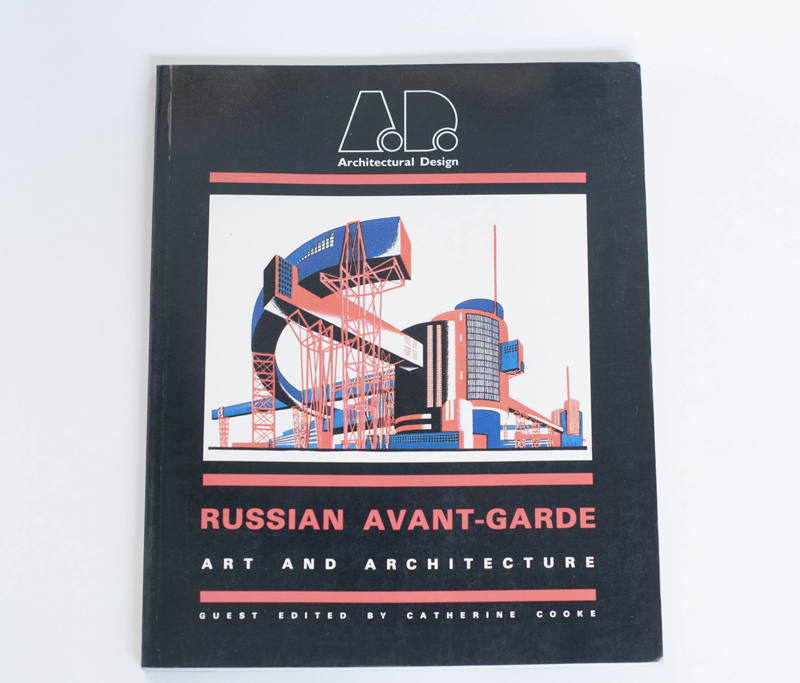
art and architecure. by catherine cooke,
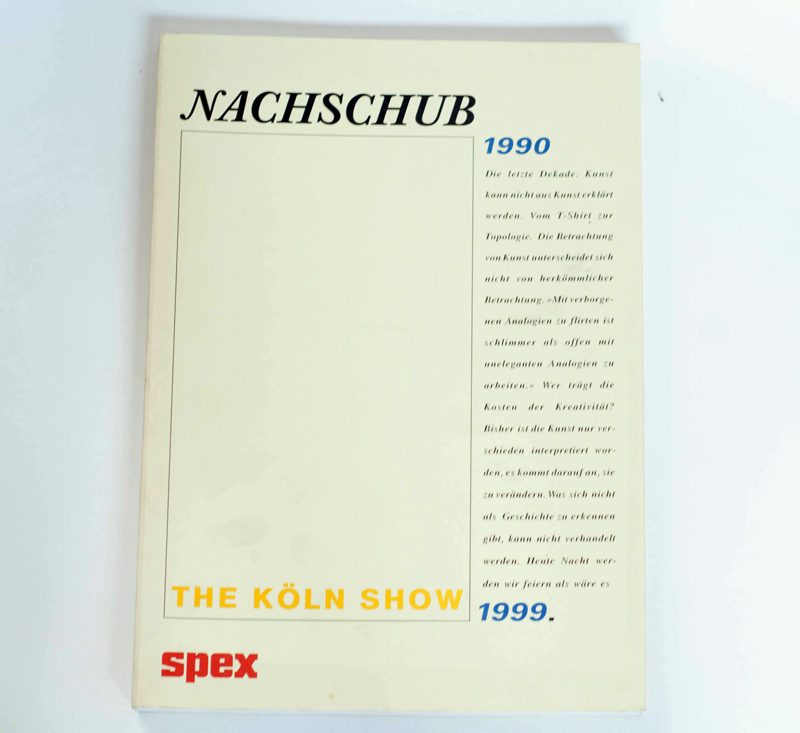
nachschub, spex , -- sold, Amy Lien
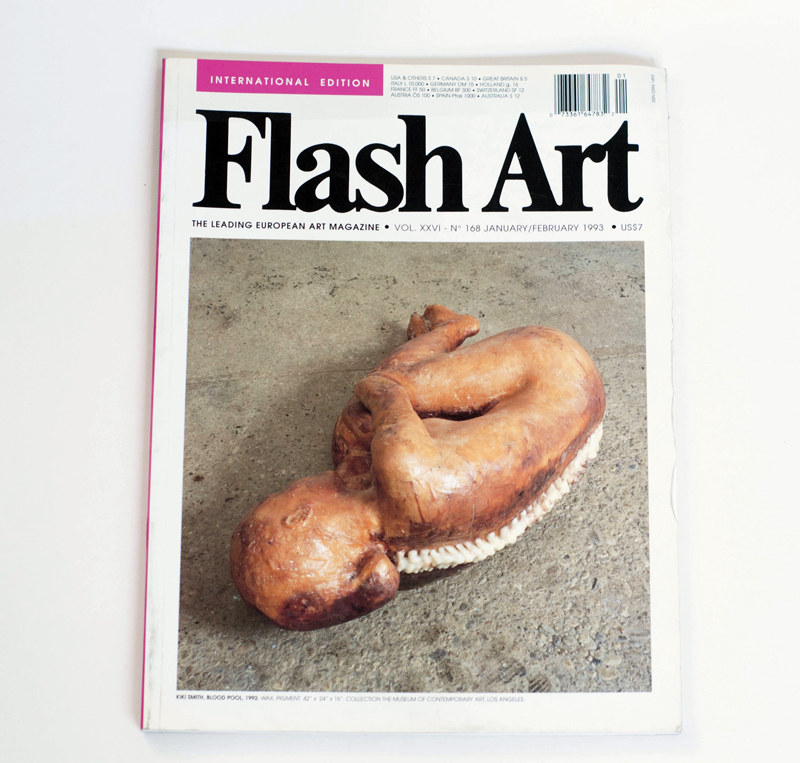
Flashart 1993 -
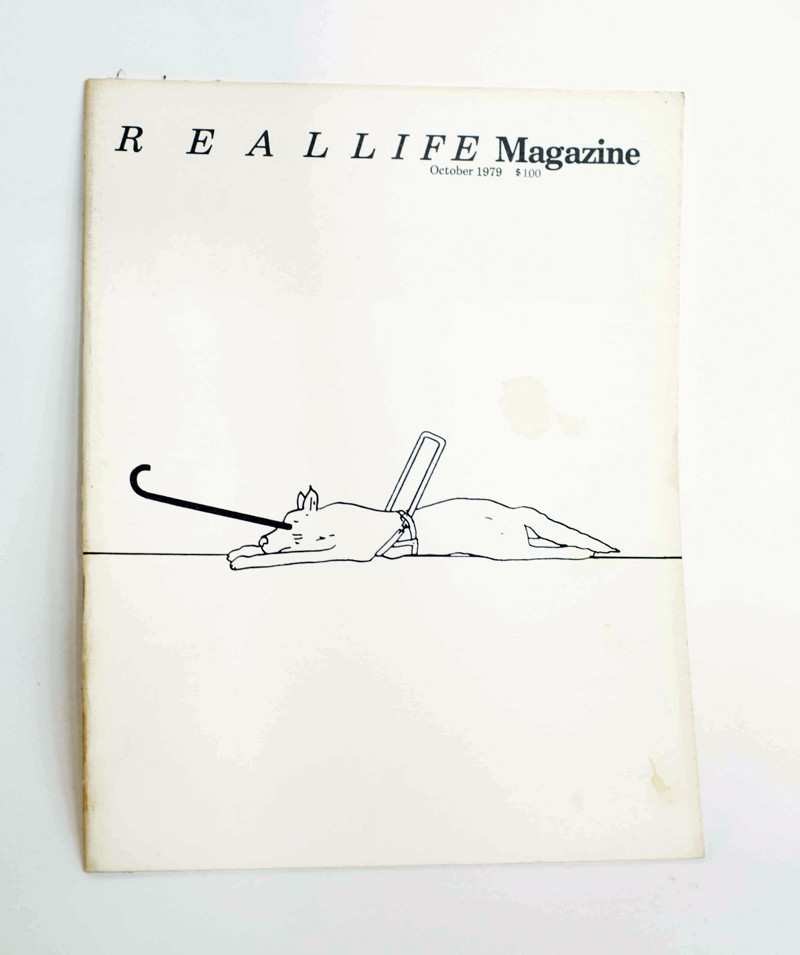
Reallife magazine, 1979 - sold to gea politi
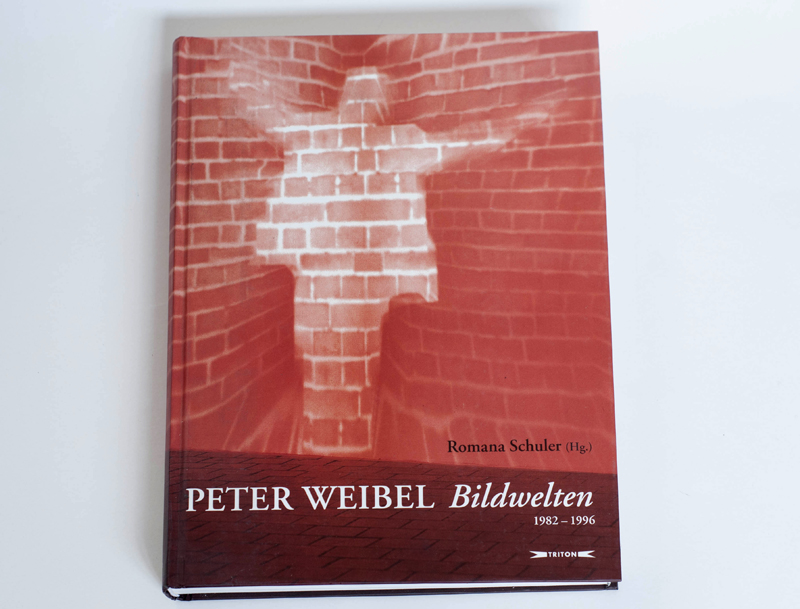
Peter Weibel, BILDWELTEN, .. sold in venice ot performance artist
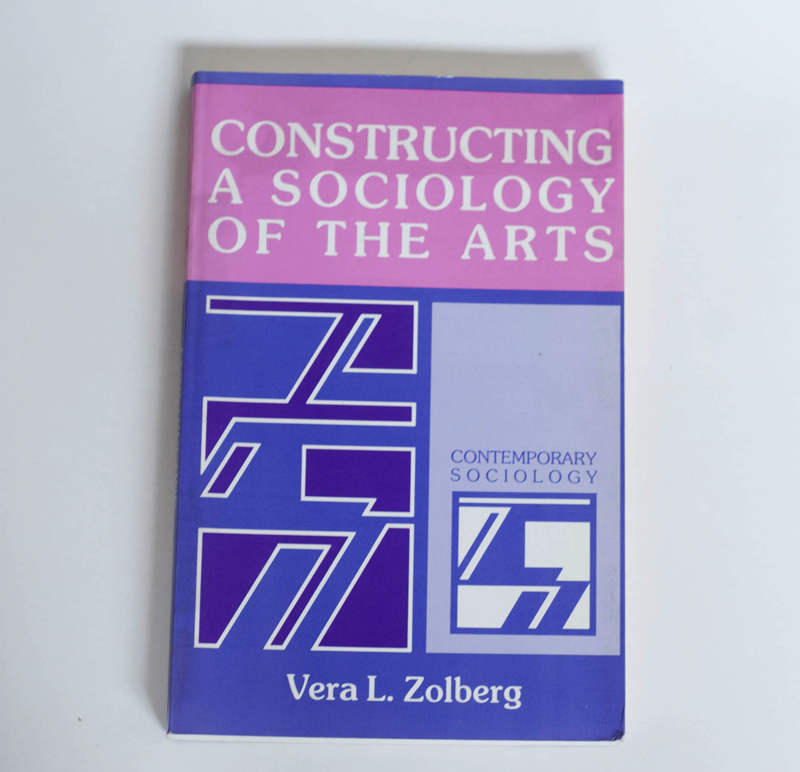
VERA ZOLBERG, CONSTRUCTIONA SOCIOLOGY FOR THE ARTS, - Florian Model
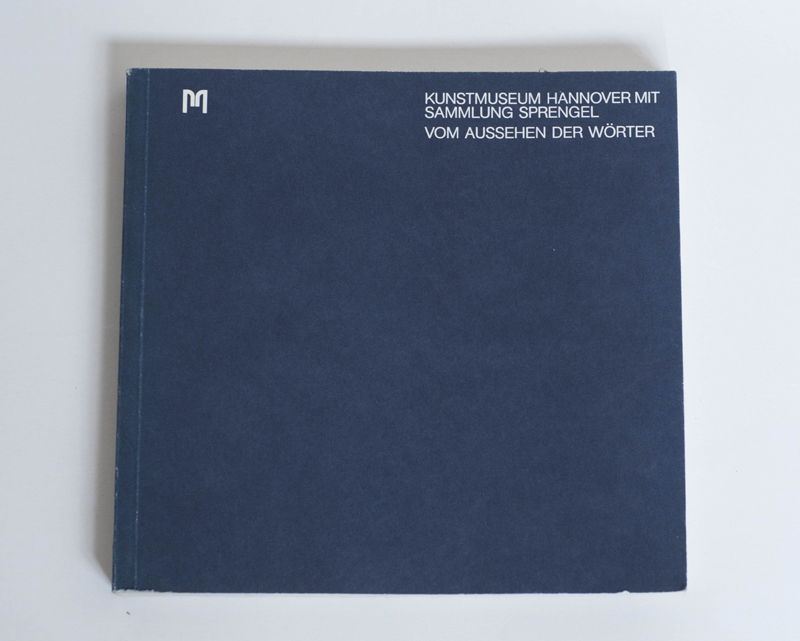
translation: the way words look - sold in venice to performance artist
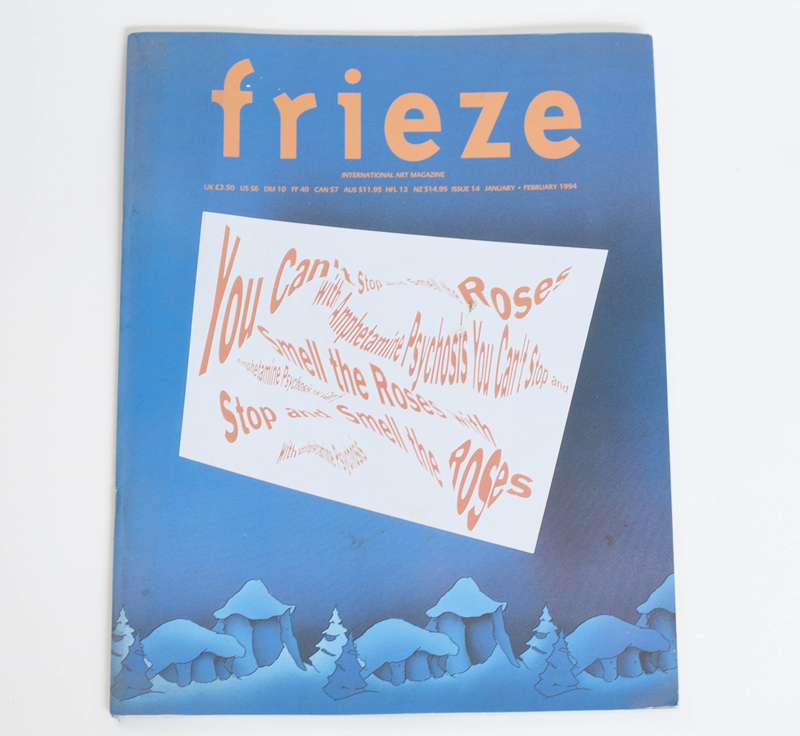
frieze,
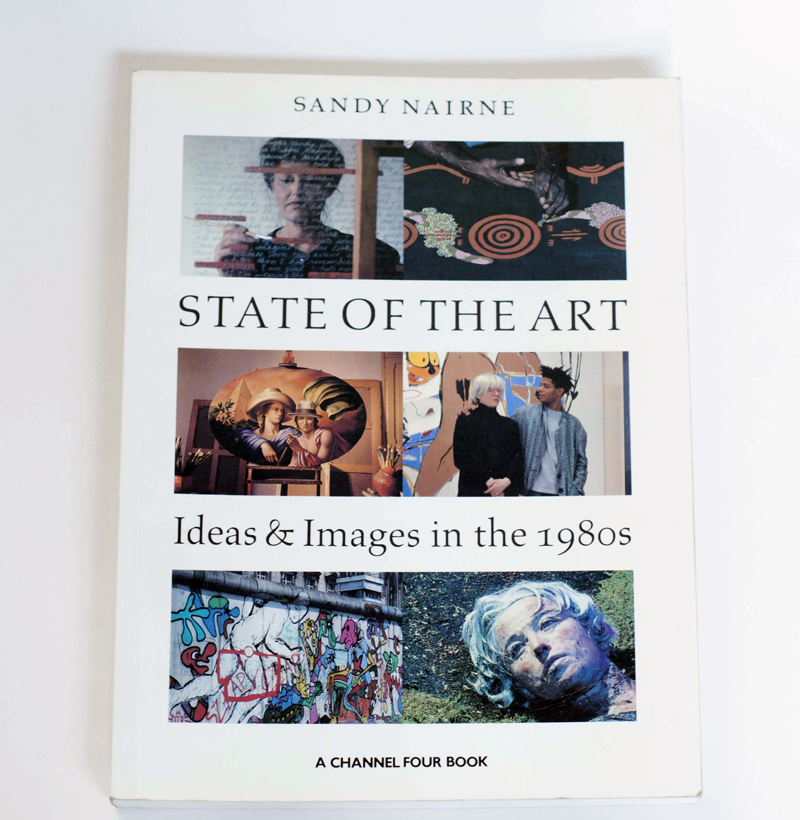
stae of teh arts cahnnel four - sold Lodovico Pignatti-Morano
Public , comme

poems by bern Porter, something else press, sold to matthew higgs
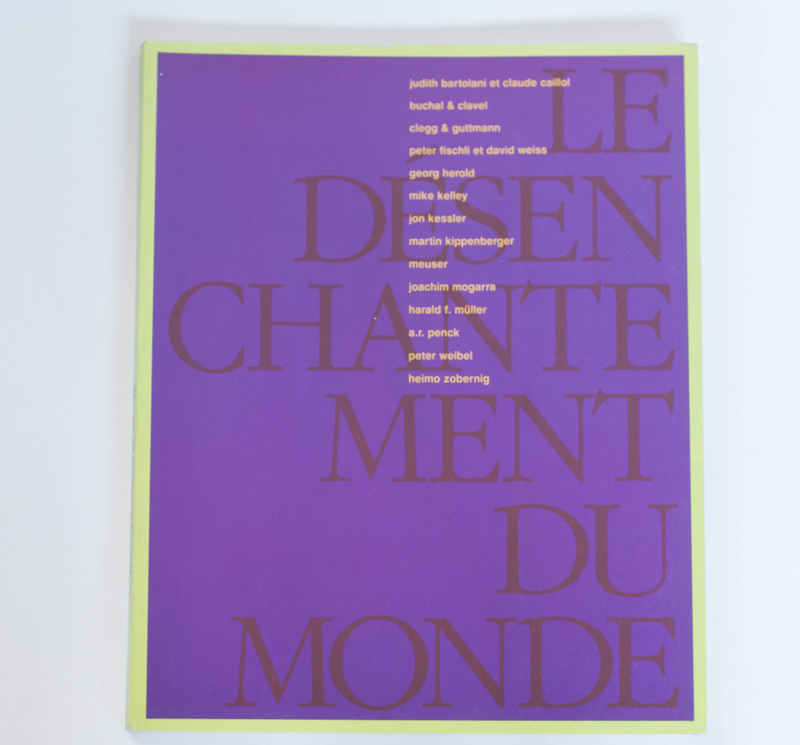
le desenchantment du monde,
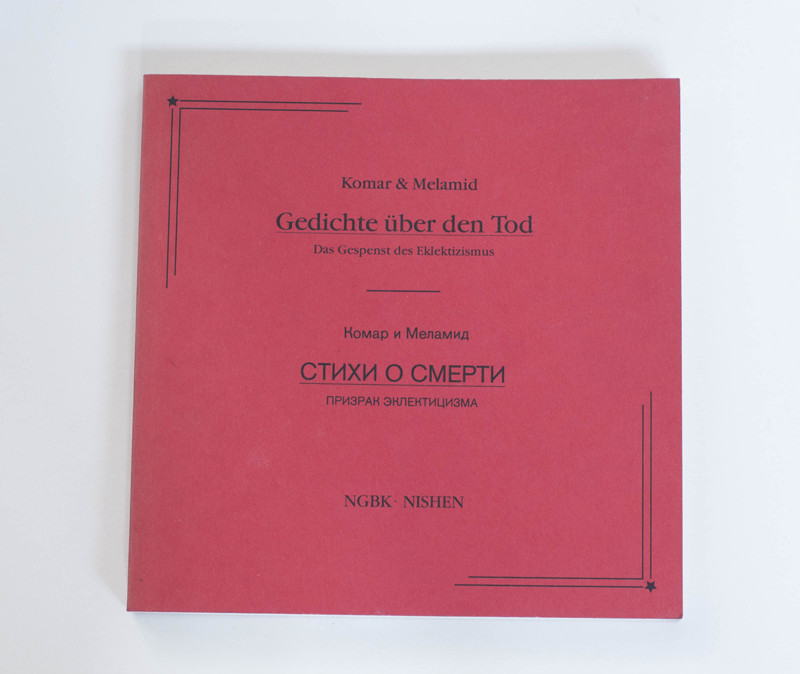
gedichte ueber dne tod, komar memamid,
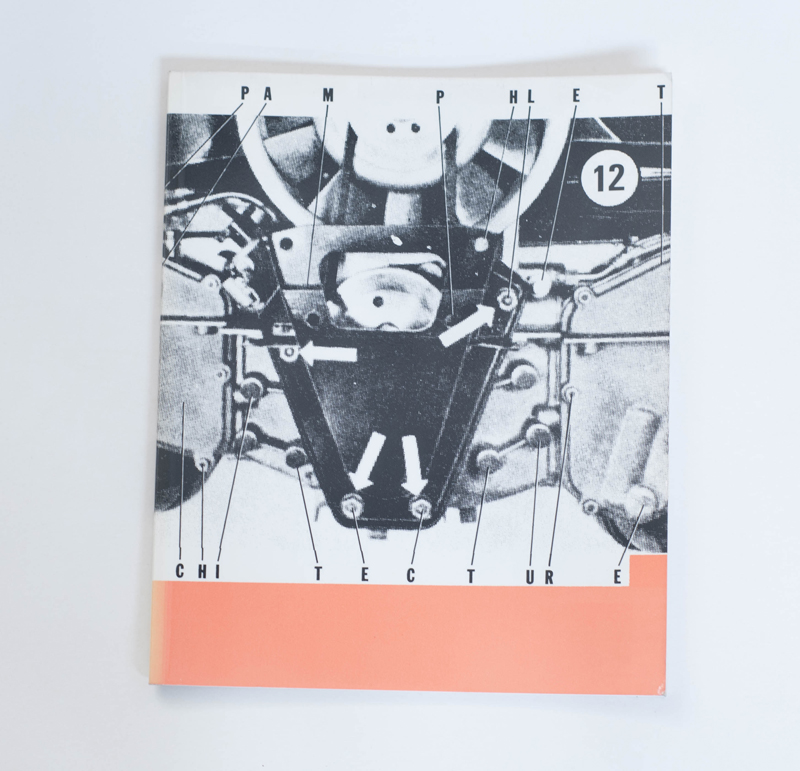
pamphlet
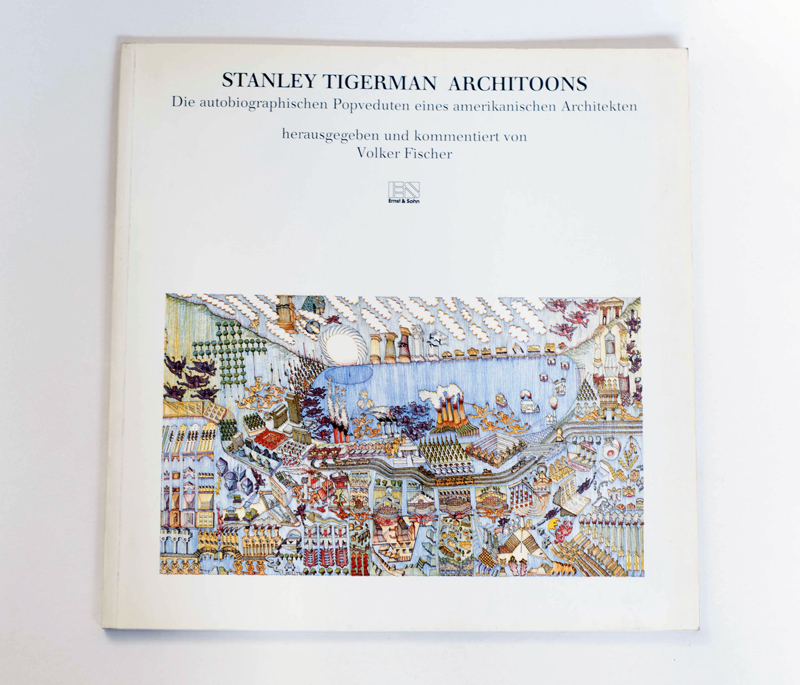
Tigerman, architoons,
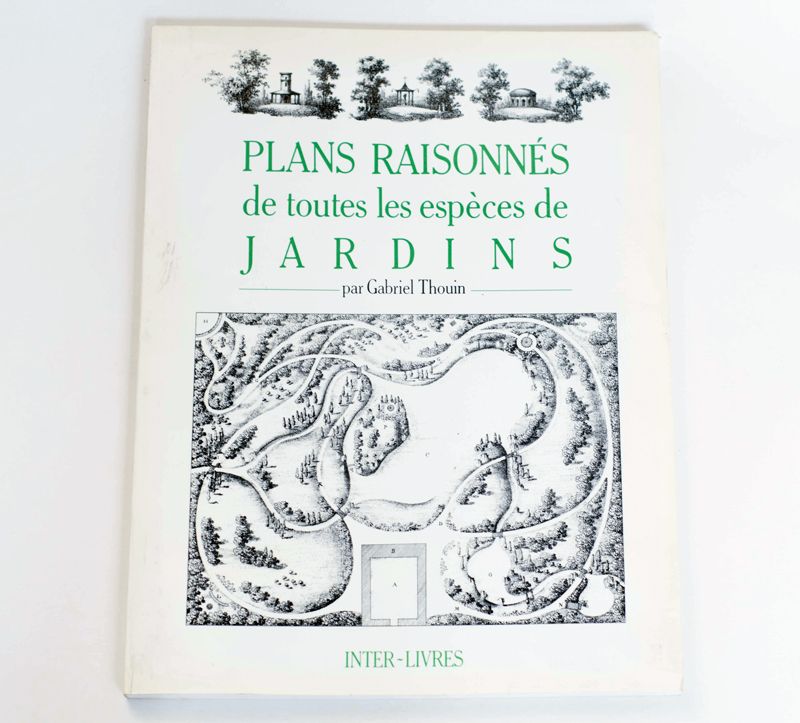
plans raisonnes, jardins...
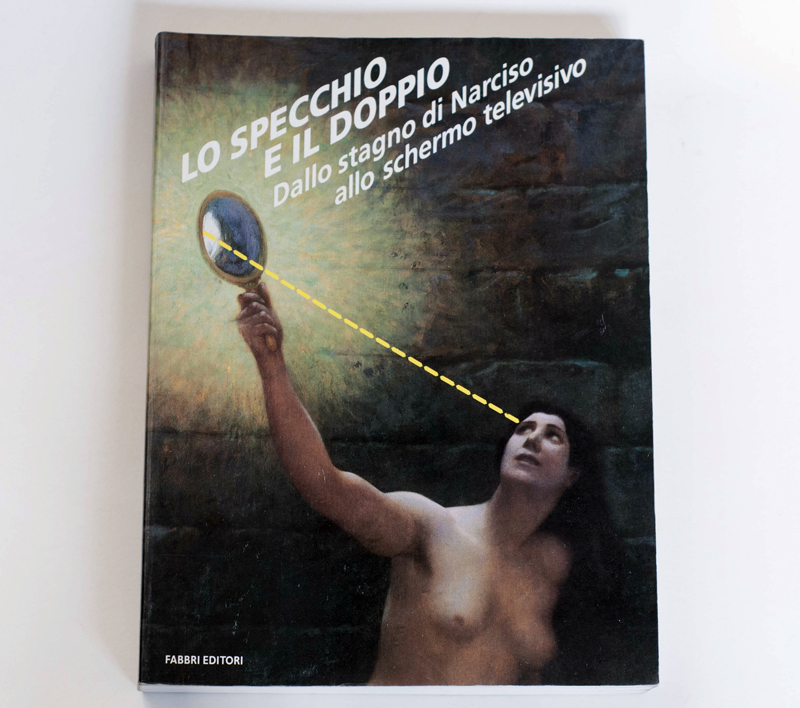
LO spcecchio ,
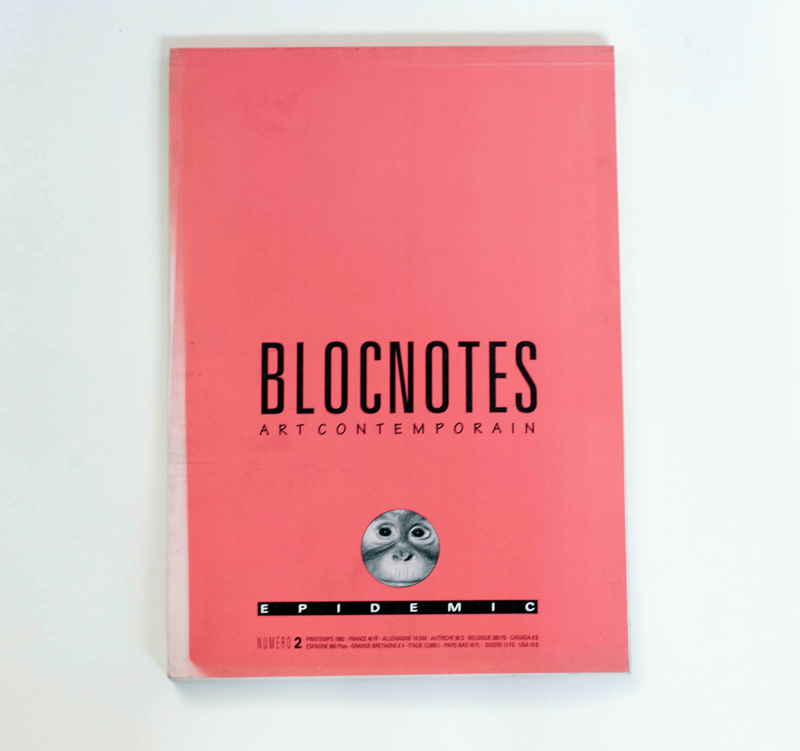
Blocnotes,
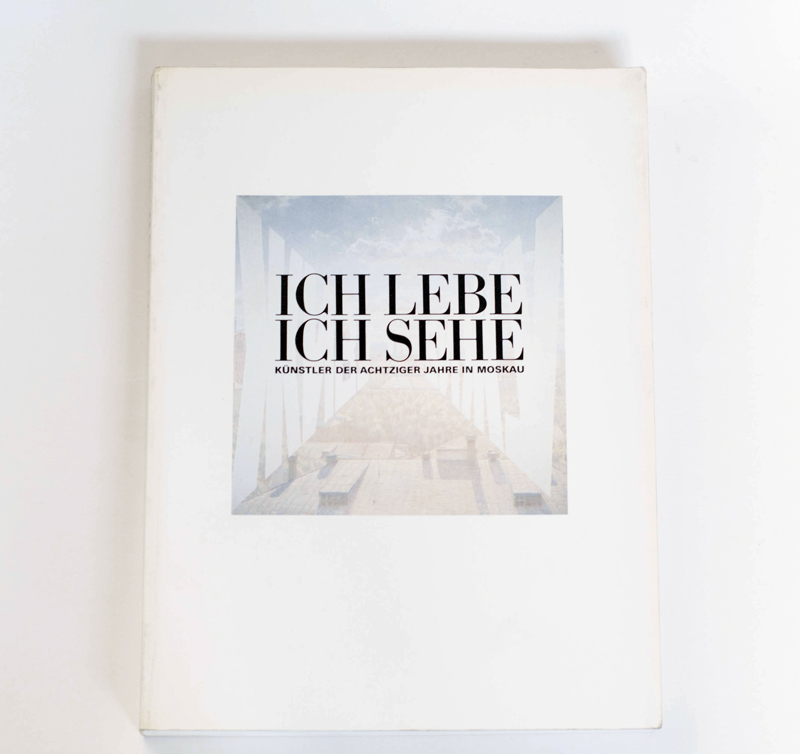
ich lebe, ich sehe, kuenstler der 80 jahre in moskau,
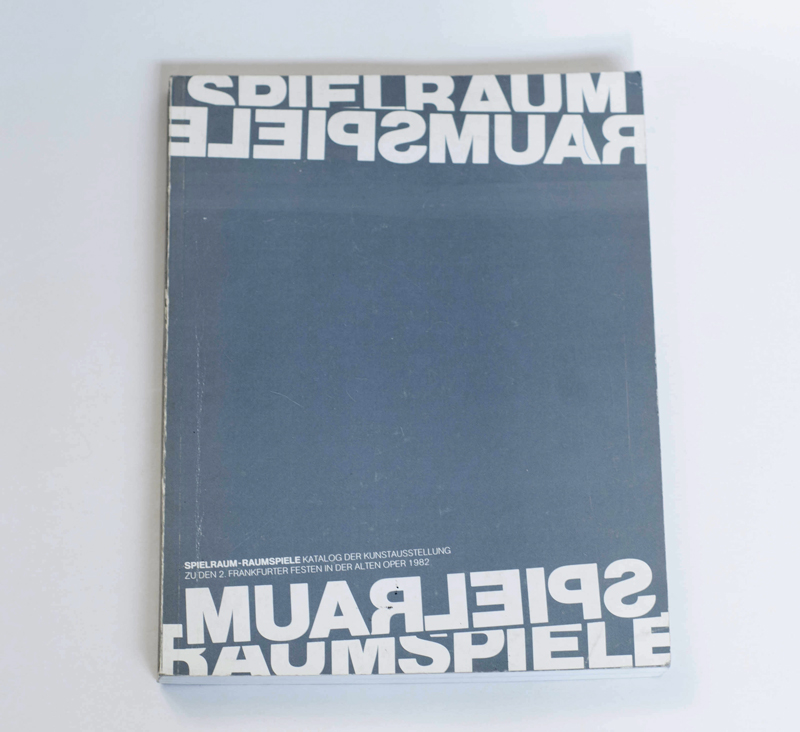
Spielraum, Baumspiele, 1982, Euro
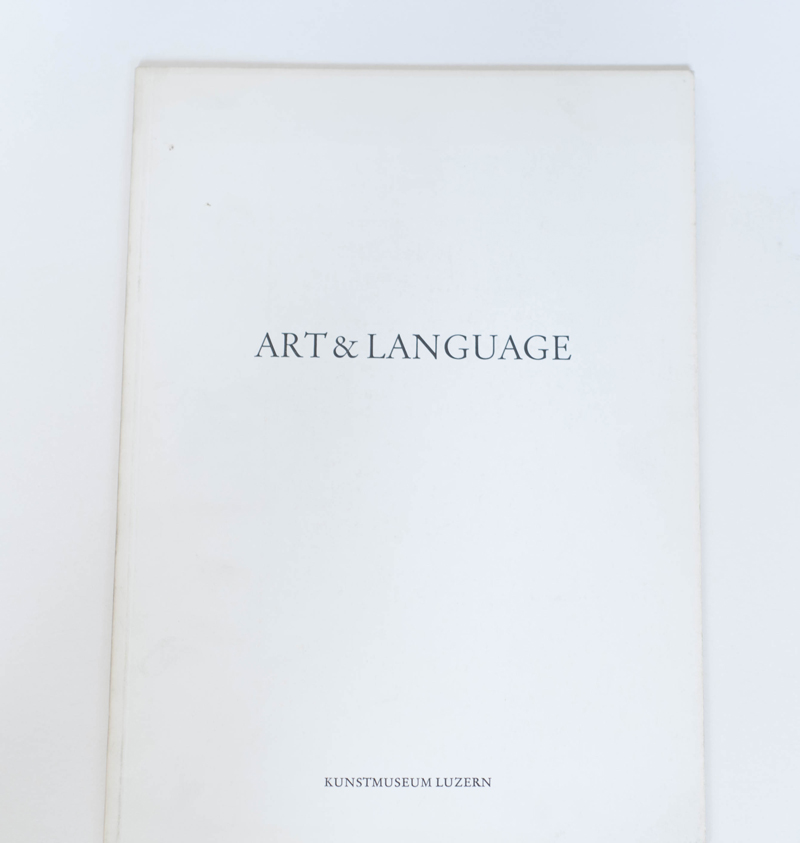
sorry sold
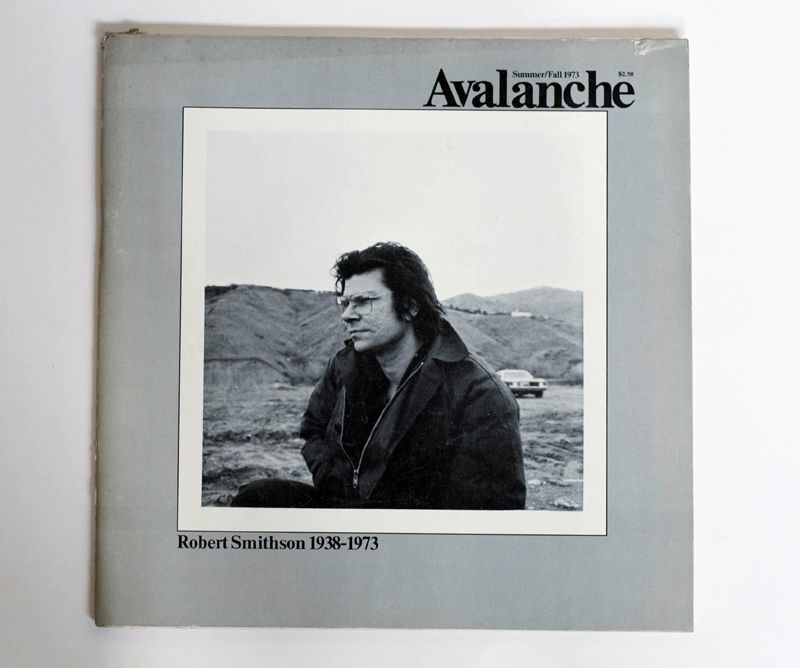
sorry sold
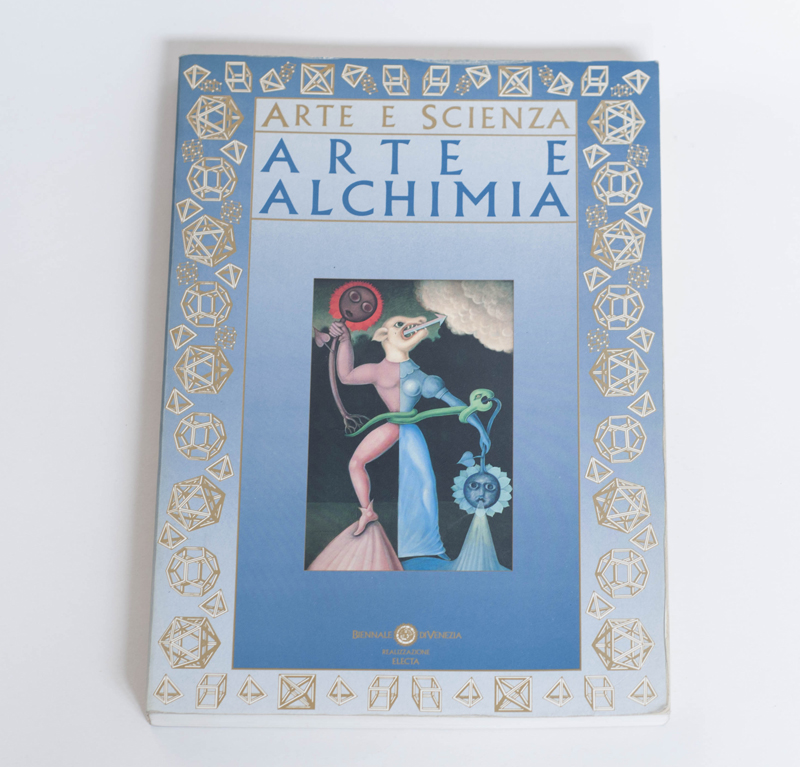
arte e alchemia..
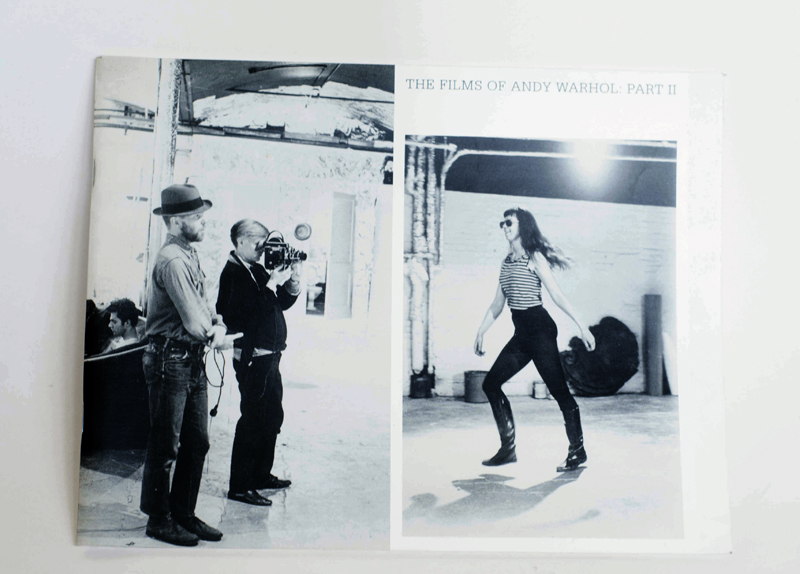
sorry sold
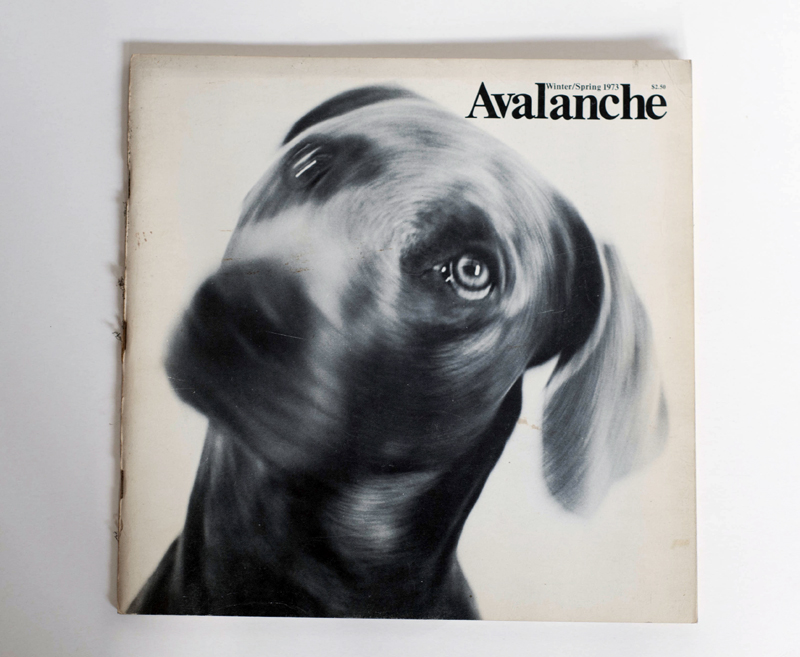
sorry sold
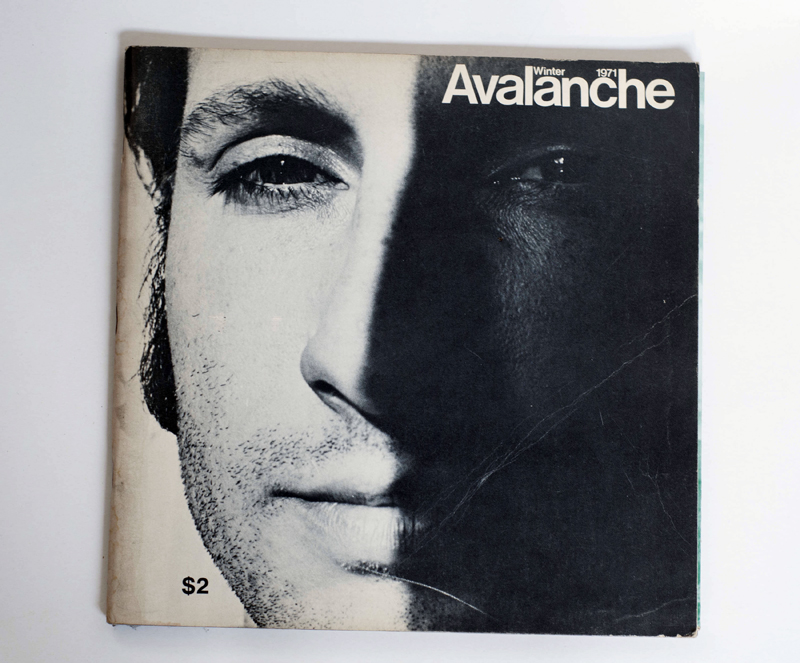
sorry sold = arthur fing
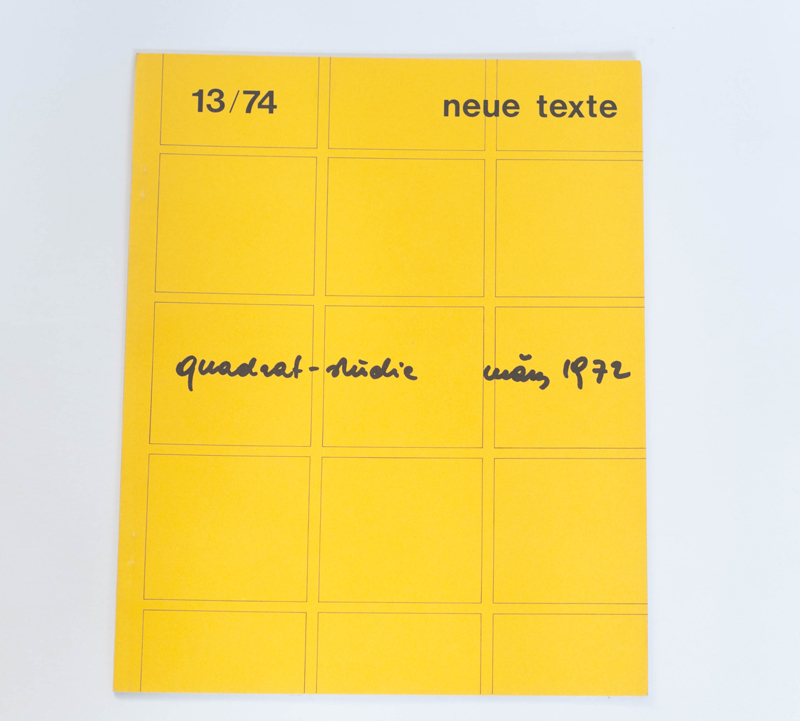
NEUE TEXT , 1972 ..
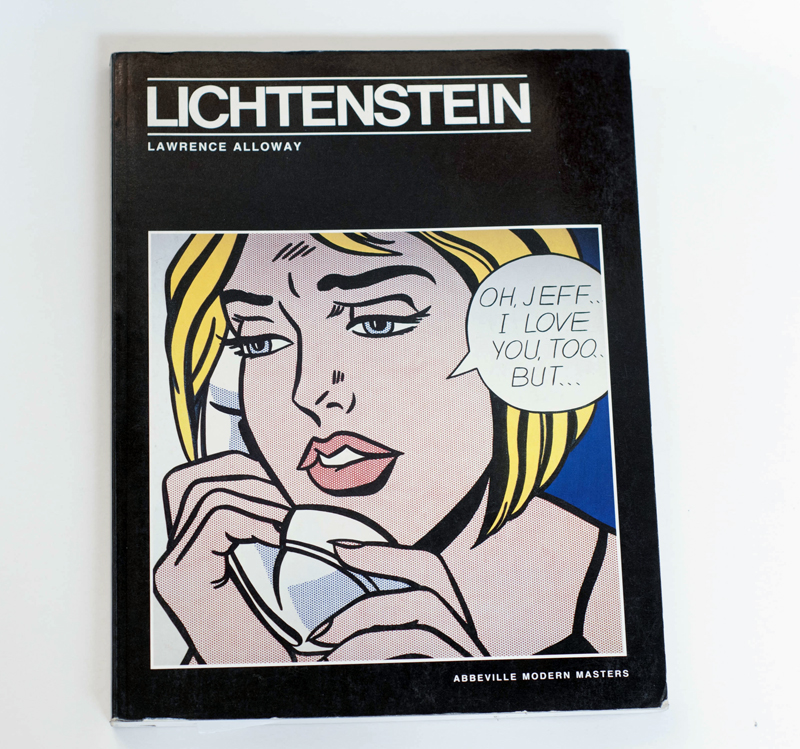
LICTHENSTEIN...
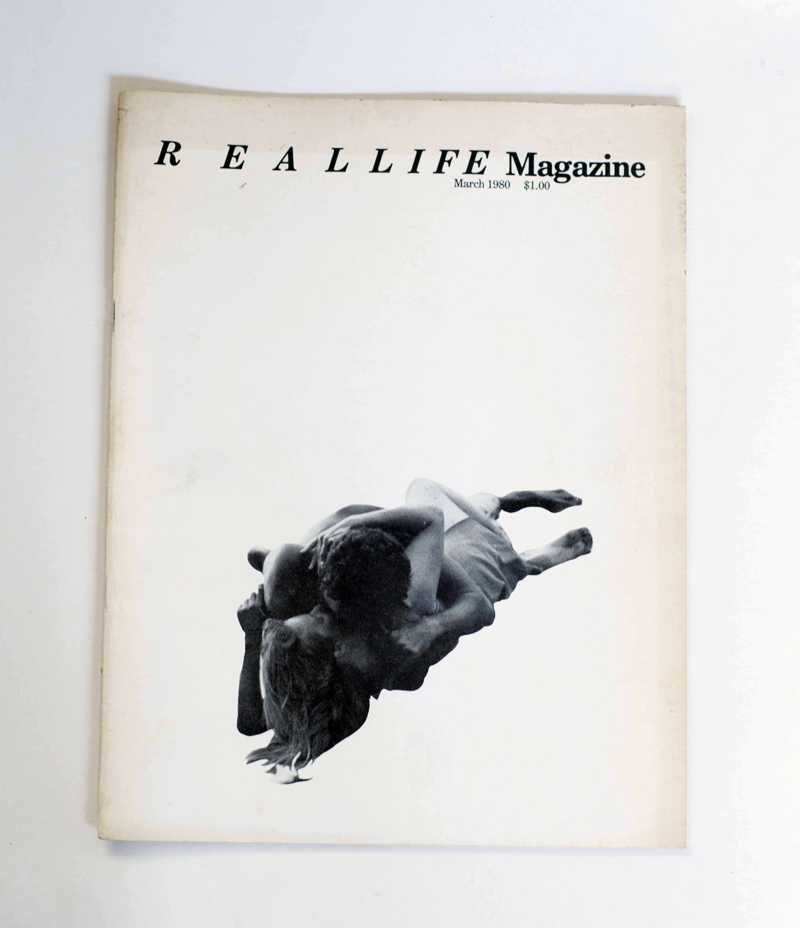
REAL LIFE MAGAINZE, 1980 sold - Daniel Herleth
Books offered at Palermo Stuttgart, 2015
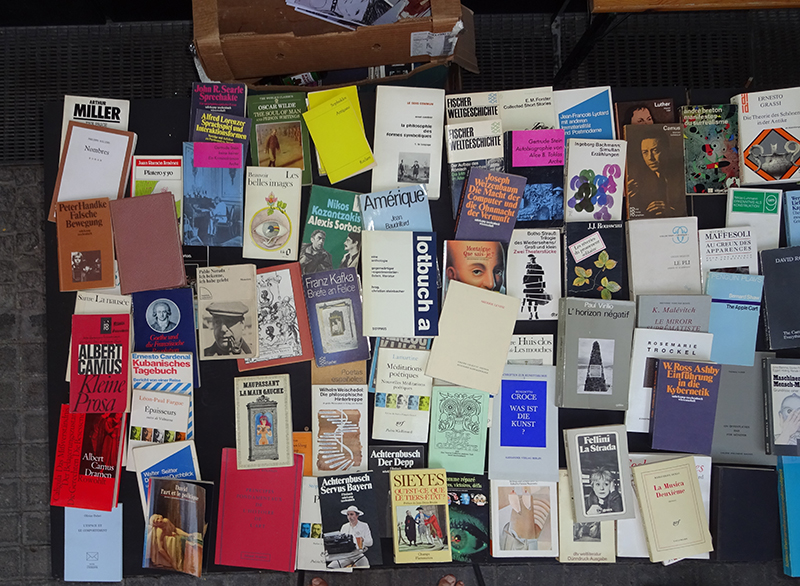
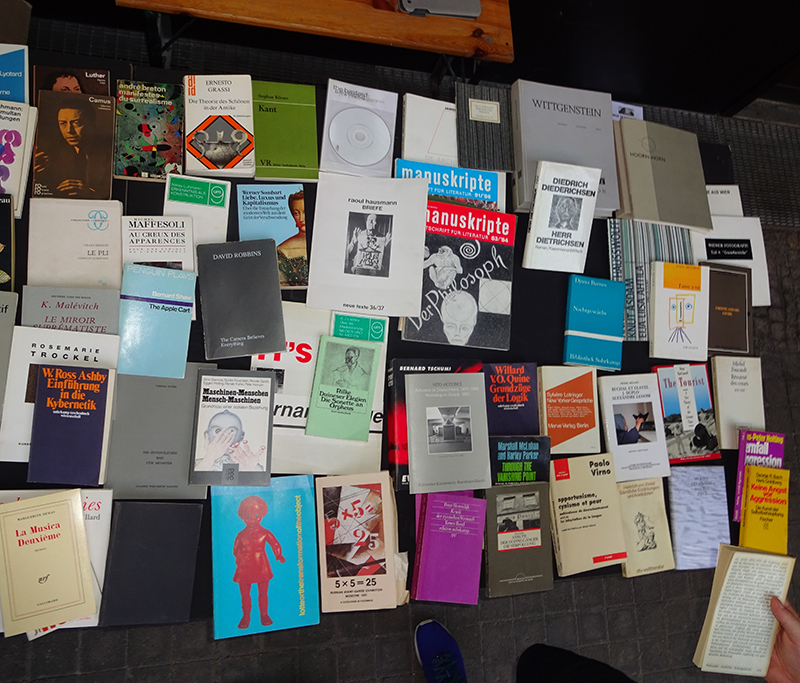
books sold at Kunsthalle Baden, Baden-Baden, 2015
